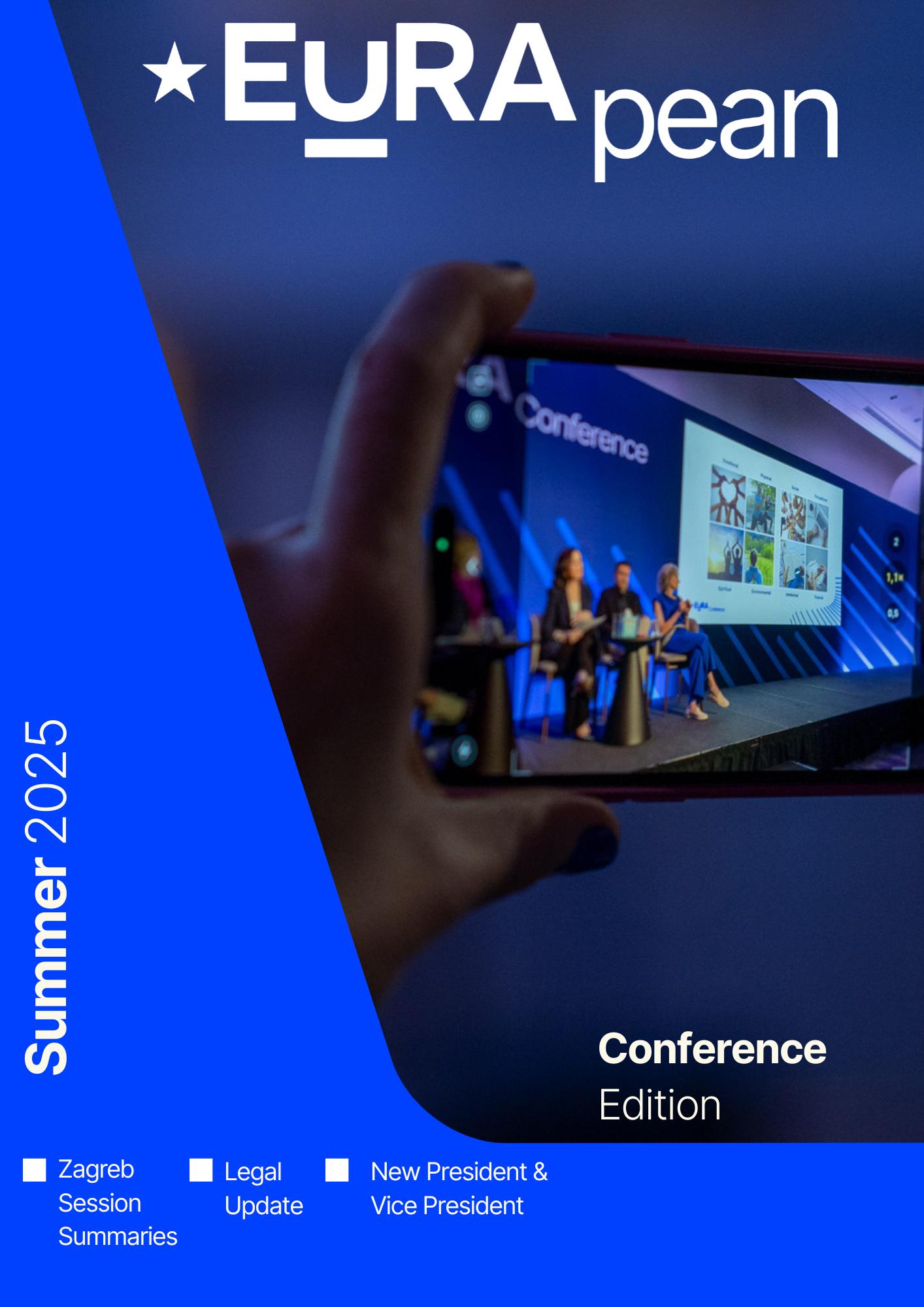
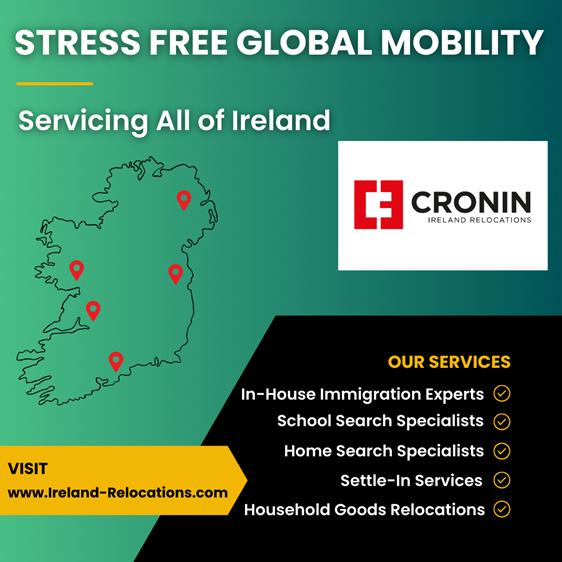



Wattisfield
IP22
+44 1379
www.eura-relocation.com
Contributions on all aspects of mobility are welcomed for publication in the EuRApean. If you are a member of EuRA and would like to contribute news about your company please get in touch. Please contact Dominic Tidey, Managing Editor dominic@eurarelocation.com or Maria Manly, Editorial Consultant maria@eura-relocation.com
Disclaimer:
Opinions expressed in the EuRApean are not necessarily those of the publisher unless otherwise stated.
I love being at the EuRA Conference! Seeing so many old friends and meeting so many new ones is always one of the highlights of my year, but I was never more glad for a conference theme focussed on well-being. I missed Frances a lot this year, she is a rock and a rockstar but thanks to Ben Jones’ excellent, moving and heartfelt opening, the theme for the conference was set. I too am a catastrophiser of European Championship levels. We arrived in Zagreb straight from the Fidi Conference in Dubrovnik. Fidi has a very similar feel to EuRA. It too is a huge family and the atmosphere is one of camaraderie and friendship. Held in a beautiful seaside location, in a huge hotel with sunshine, arriving in rainy Zagreb to a much smaller venue? Well I lost a lot of sleep those first few days of prep.
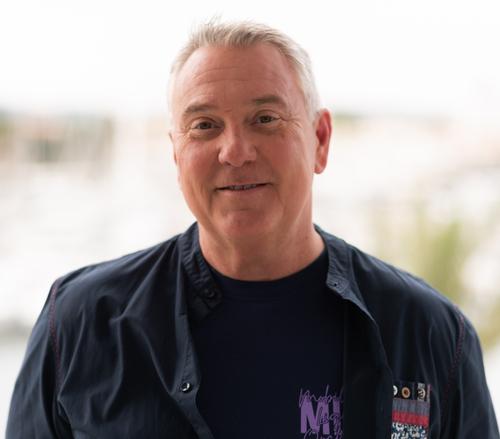
But our members are amazing and had read about the change of venue, the smaller than optimal hotel and were as resilient as always. There were a lot of standing meetings! Had there been a chiropodist locally I am sue they would have had a lot of work!
Our venue coped admirably and the kindness shown by the team was wonderful. One of delegates had a fall and the conference organiser drove her to the local clinic where she had an MRI within 30 minutes of arriving.
Small things that happen behind the scenes. Some of them we can control, some of them we cannot. A delegate I know well was not happy about the lunch on day one and we asked the F&B manager if changes could be made for the following day and it was done. Our delegate was very happy and that was not an inconsequential change to make!

So now we gat back to normal work until we start the prep for Malta 2026. For those of you who were not with us at the Malta Hilton in 2016, we arrived during the last 5 days of a total renovation of the property which had been closed for 6 months. Every member of the team was lifting new furniture, cleaning, dusting, prepping, arranging. We saw the amount of work that takes place behind the scenes first hand. 24 hours before we started to welcome guests, the hotel opened on time, in front of the national press and TV and our first guest, Bob Rosing of our very loyal sponsors Dwellworks was not able to check in as everyone was outside for a photo call! The work that goes into an event of this scale is unrelenting and even though I’m tired after the week, I think of how the team feel and relax a bit!
Dom Tidey Managing Editor

Another EuRA Conference has come and gone and I hope that our delegates got a lot from the event. We try our very best to deliver a conference that meets delegates needs across a huge spectrum of diversity among the members. The results of the survey are in and you can read some of the good, the bad and the constructive things delegates told us later in this edition. What is fascinating every year to myself the team and the Executive Group is how opinions can differ! We received an excellent overall score which means that since we started measuring it, we have again hit our KPI for overall satisfaction so thank you to everyone who took the time to fill out the questionnaire.
It was a challenging conference to host this year for all the reasons you all know about; the smaller venue, the last minute change, the weather! But the team and I were so pleased to see so many people attending sessions in record numbers. This tells us two things. Firstly the theme and conference sessions hit the right mark this year and we had many comments about how apposite a conference based around well being was at this strange time.
Secondly it tells us how successful the submissions that were chosen were and thank you to everyone who put their names forward to work on panels and especially our moderators and speakers who delivered a great programme.
I also wonder if a smaller venue makes its easier for people to connect more quickly and therefore maybe delegates have more time, or if we have all learned that burn out is real and that taking time from an insane agenda of back to back meetings helps us to get more out of doing less.
As a case in point, Dom and I recently attended the International Meetings Expo (Imex) in Frankfurt. We’ve not been since 2019 and were
invited this year to attend as “hosted buyer” as we have organised a big event or two. Being a hosted buyer at Imex means the organisers pay for accommodation and flights to the show. But the price to be paid is to schedule a minimum of 8-10 meetings a day across three days and attend evening events and receptions. In theory this all sounds great but as the meeting invites start to come in it becomes apparent that the relevant of 80% of the meetings is highly questionable. Do we need to see a presentation on the new JW Marriott in Abu Dhabi when we will never use it? So instead, we stay just one night in an AirBnB, fly with Ryanair and target exactly who we need to see. In that one day we found six new excellent potential hotels in Europe, three great event venues, a DMC in India and strengthened existing relationships. And didn’t come back broken!
So now we look at the work to be done for the next 12 months. First on the agenda for the last Executive Group (EG) meeting in Malta was to examine the feed back from Zagreb. Second was the programme for the 2026 conference which is coming together nicely.
Deadline: 22nd September - The bookings will open, sponsor opportunities will be released and the call for speakers will go out! Premium Members will have the opportunity to book from September 8th. Please book early! The Zagreb conference was sold out by midOctober. However we have a much larger venue so we only to cap to the same numbers as Vilamoura which is 800 delegates. However Vilamoura was fully sold by the start of November so please check with you fellow colleagues whether they have booked!
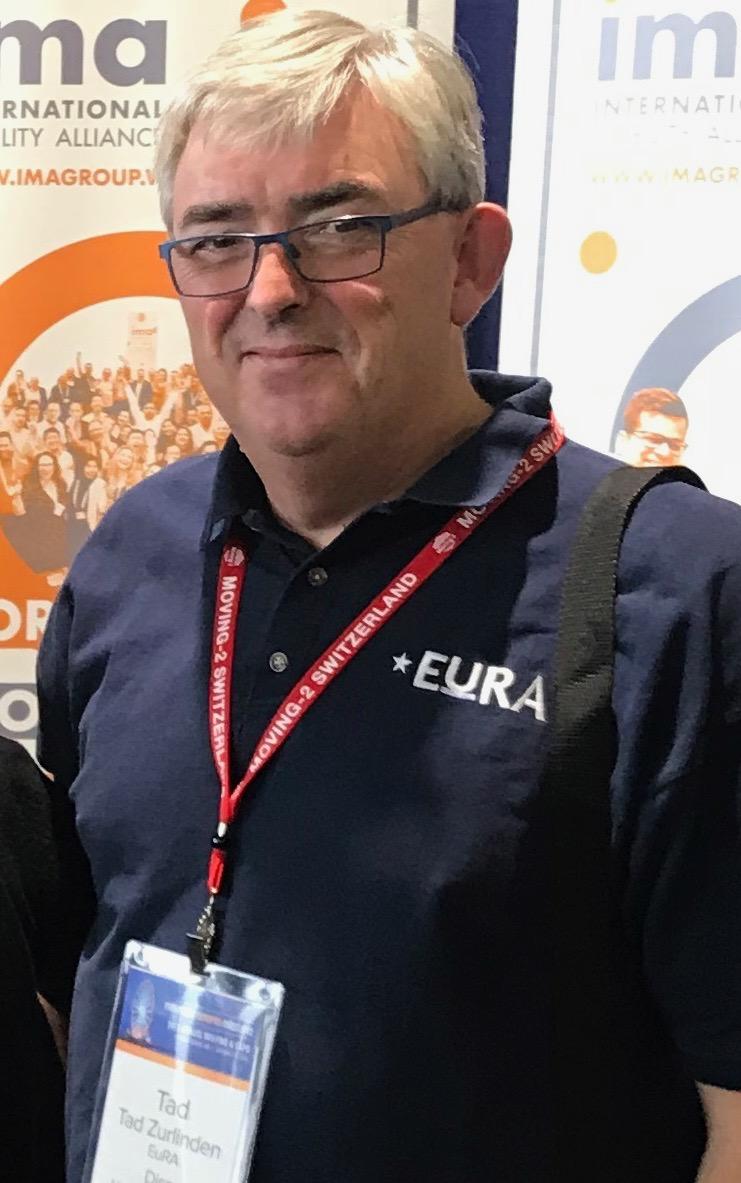

At our last EG meeting we said some hellos and goodbyes. We welcomed our two new EG Members Dana Pick of Eres and Ivona Demackova of Pro Relocation. Thank you for standing and for the contributions you will bring.
We also said a very fond farewell to past President Sophie Rehberg. Sophie has brought so much to the work of the EG with her creativity. She has also developed a road map for how meetings should be most successfully run so we get the most from the time we have. Thank you Sophie for all you have done for EuRA and you will be very much missed.
We also bid farewell to Isabelle Premont who ended her term in office. Isabelle has been a creative powerhouse within the board moving EuRA forward with her extensive mobility knowledge an skills. We will all miss her very much.
Over the next year I am looking forward to many new projects but I am passionate about collaboration within our wider industry for the good of all providers. The Association for Collaboration in Global Mobility goes from strength to strength and I will keep you up to date with our work!
As you all know we have a zero tolerance approach to non-registered delegates being in the conference spaces. The zero tolerance approach becomes even more strict if we identify unregistered non-members in conference sessions as we did very regrettably did in Zagreb. Please check the app before taking a meeting with someone. If they are not listed, they are not registered. If they are not registered they have not paid. You have. In money and time.



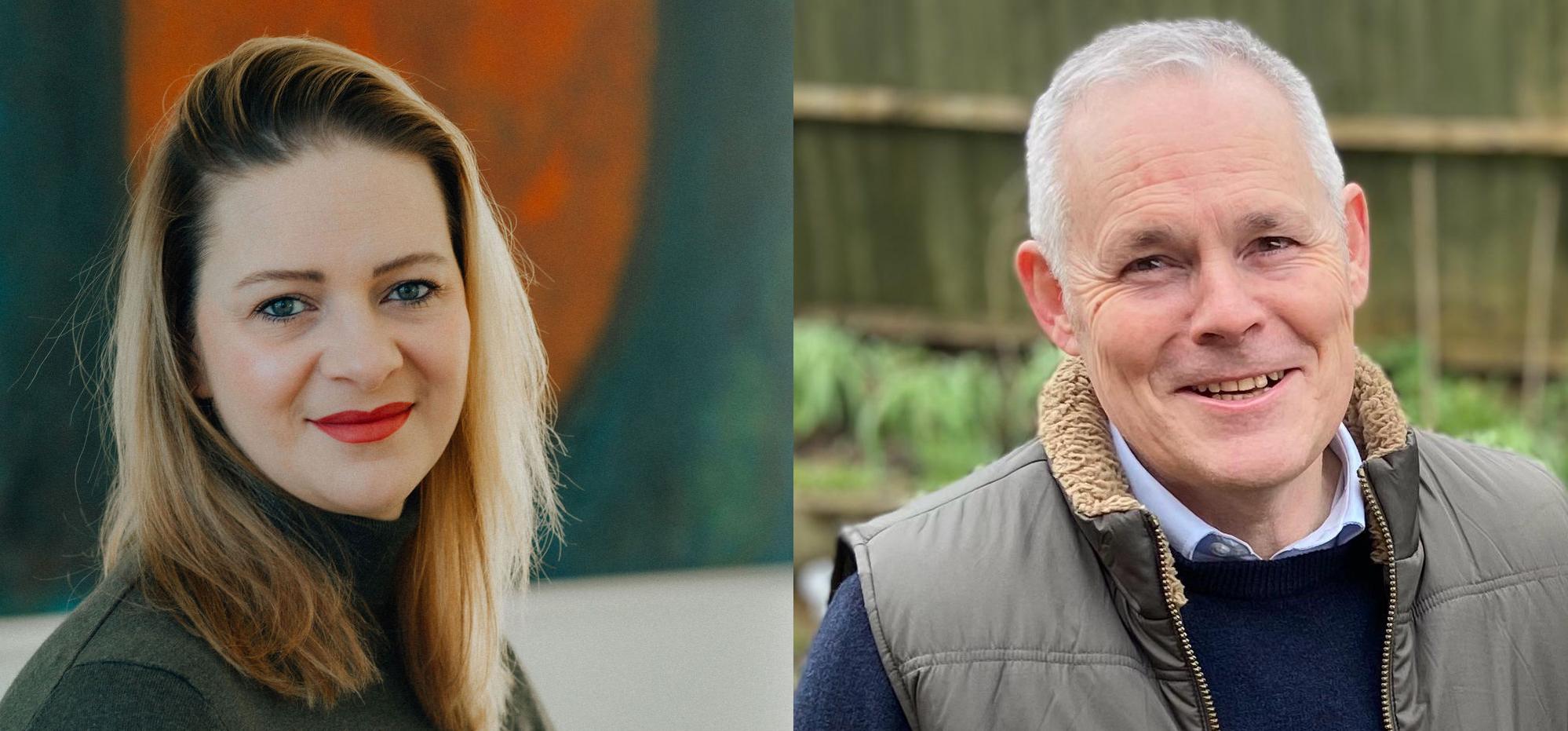
Thank You, Zagreb – Hello, Malta!
To all our incredible EuRA members,
From the bottom of our hearts, thank you for joining us in Zagreb for this year’s conference. As always, you are the ones who create the unique, magical atmosphere that sets EuRA apart — something that simply can’t be replicated at any other event in our industry. The warmth, openness, and energy you bring make this community so special, and we are truly grateful. One of the highlights of this year’s event was the focus on mental health. As service-minded professionals, we’re often the ones who take care of everyone else — clients, colleagues, teams — and we
Johanna Lennartson - Managing Director Nimmersion AB
Simon Robins - Business Development Director TTH Curzon
do so with pride. But it’s just as important to remember to take care of ourselves. The support available in Zagreb, and the conversations it sparked, reminded us that we are not alone in the challenges we face. That’s the kind of strength we want to continue fostering within EuRA.
We are both incredibly honoured to serve as your President and Vice President for the coming year. Our journey has already begun — we have just been in Malta, hard at work preparing for next year’s conference. The location is stunning, and we can’t wait to welcome you all again, this time surrounded by the Mediterranean spirit of connection and renewal. We're both very keen to incorporate as many of your
suggestions as possible for the conference in Malta. Your feedback reflects where our industry stands today, especially with the ongoing geopolitical and economic pressures. These insights are vital as we plan relevant, forward-thinking sessions. We warmly encourage you to reach out with additional topic ideas, and we invite you to apply as a speaker or moderator once the call for participation opens. Your voices shape the conference and the future of our industry.
Here’s to a year of collaboration, community, and continued growth — both professionally and personally.
With warmest regards, Simon Robins & Johanna Lennartson


Our brilliant mentors will help you to schedule your timeline. Help you to start, set deadlines for completion of the chapters of your Quality Manual.
When broken into sections, and supported by the mentors, it’s not nearly as daunting as it may seem! And don’t forget 80+ EuRA Members have done it!
There is no charge!





Martina Scharwey our Strategic Consultant and Project Manager has developed a step by step training programme.
Follow her training and your Quality Manual writes itself! Well not entirely you still have to make sure it’s accurate to your business!
There is no charge!

Members with the Seal work preferentially with other Seal holders when giving outbound work. They know they can reassure their clients of an independently verified benchmark of service delivery.
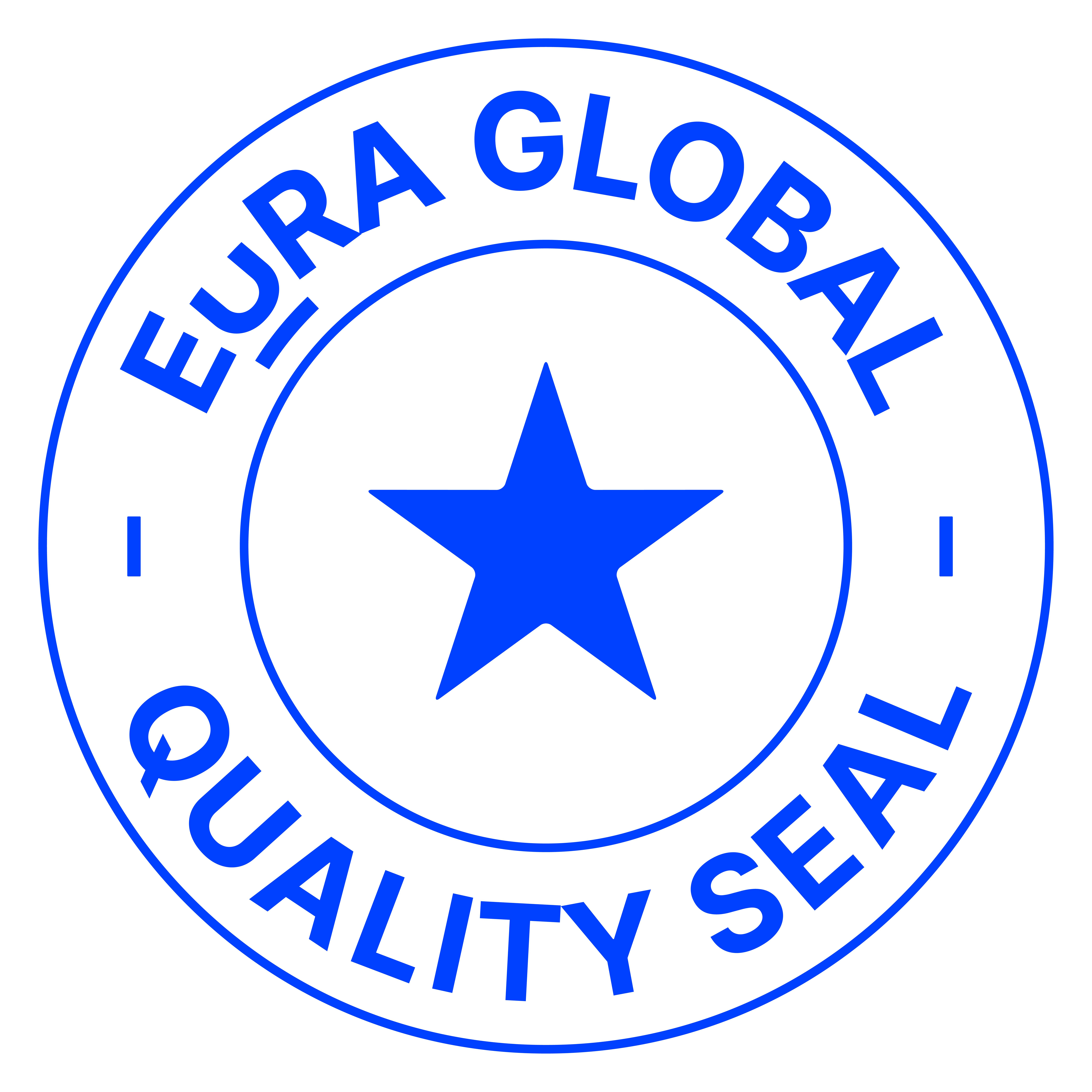



All EuRA Members holding the Seal become Premium Members.
This gives access to highly discounted training licences, early booking for events and specific events for Premium Members only.
We are also looking at delivering extra conference sessions just for Premium Members.



Over and again successfully qualified members have told us what a difference the Seal makes to the whole team. Everyone knows what their doing and what their benchmarks are for successfully delivering the best services.



At any time during the certification or recertification process, you can rely on the EuRA team for support.
Contact Dom Tidey if you have any questions, if he doesn’t know the answer he will reach out to Martina and our auditors to make sure you have the support that you need.
There is no charge!
Congratulations to our newly certified and re-certified EuRA Global Quality Seal Members
Newly Certified
r2n - Relocate to Norway - Apr-25
Newly Recertified
Relocation Services Strohmayer - Apr-25
Inter Relocation Group - May-25
Eurohome Relocation Services - May-25
Professional Organizing - Mar-25
There is a full module in the EuRA Academy
Free to all members. This module of five components covers everything you need to know about setting up a process management system. You'll learn how to build your Quality Manual and how to implement all the required policies to ensure you're completely compliant for the future. Following these three (free to EuRA Members) modules will simplify the process, led by a true expert in quality management.
When we asked members earlier this year, 65% said they wanted to undertake the process but 70% said the main barrier to undergoing certification was lack of internal resources and time. We have just implemented a Mentoring programme to help members get started and stay on track. In 2025 we will be developing live clinics with certified members and our SC

Martina Scharwey as well as peer to peer help on LinkedIn. If you haver an idea that would help you to get started please let us know, we want to give members as much assistance as possible to join the ranks of our Premium Members.
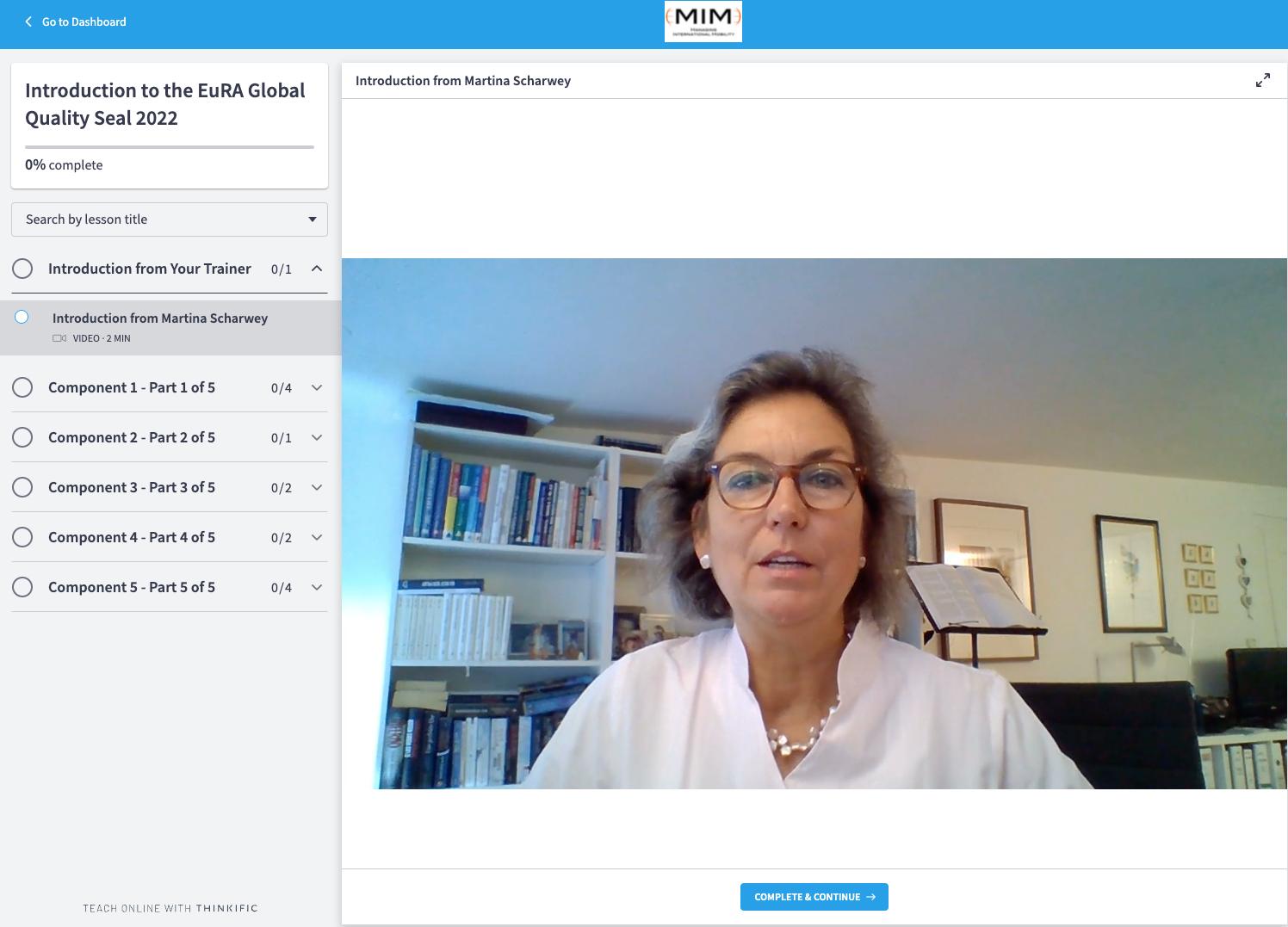
To access the full training module, click here.
To learn more about becoming a Premium Member and our Mentoring programme, click here.
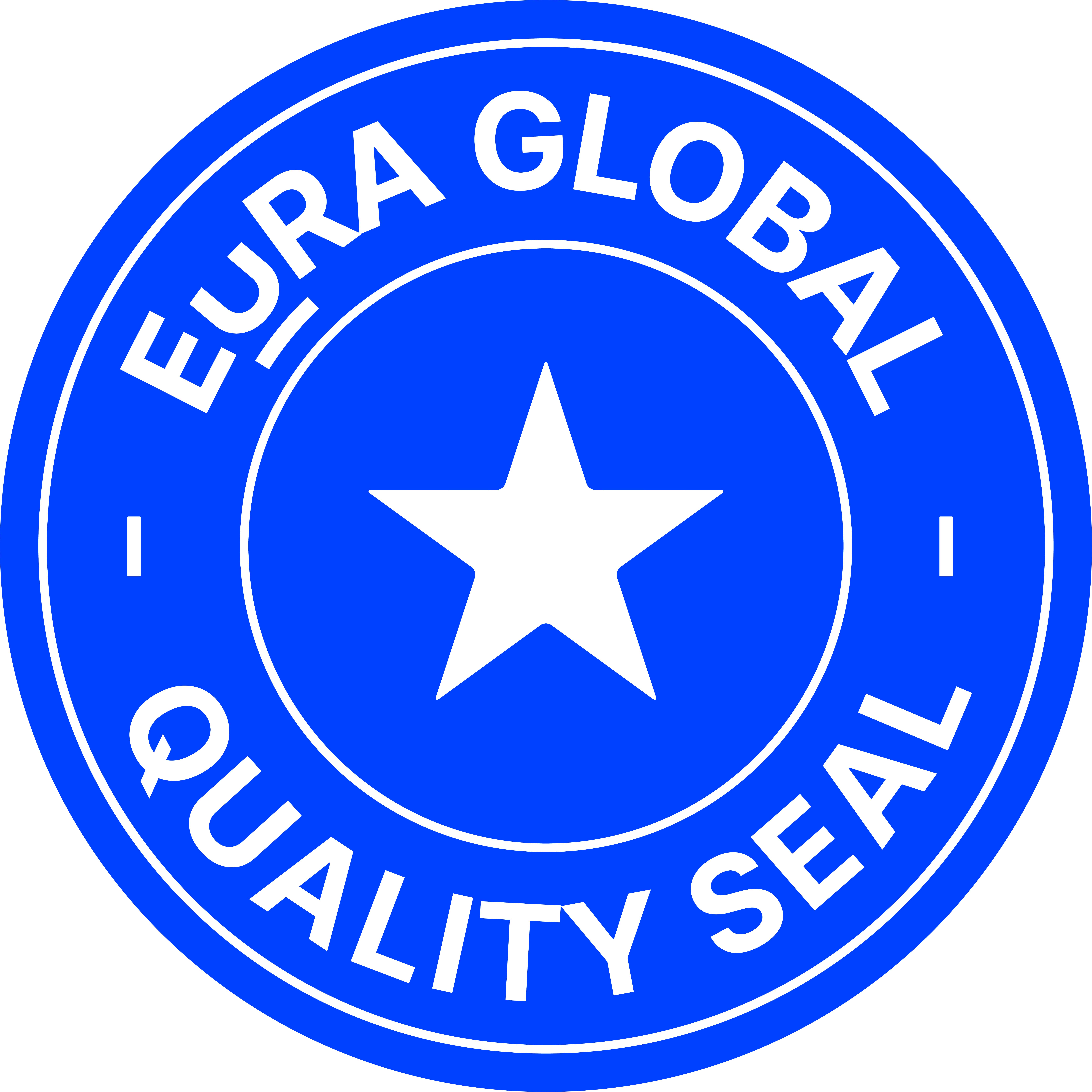

“Because looking after our mental health, just like our physical health is a work in progress. We can’t spend a year in the gym, eating well, and think we will stay in the same shape for the next 10 years right?
Shortly after I got back from last year’s conference, I was thrown another challenge in my personal life that I would have to navigate, not just for myself, but for my children as well. It was time for me to practice what I preach. Easy right? Or did I find myself slipping back into my old ways? I was reverting to type, I was ‘getting on with it’ I was ‘OK’ again.
Sometimes it is easier to encourage others to do something rather than doing it ourselves, how often have you heard someone say they have been feeling unwell, and we immediately encourage them to see a doctor, and how often do we feel unwell and convince ourselves that there is no doctor required?!
Then somebody who is in this room now, said to me, when I told him I was ok, recognised that I wasn’t and said… “Ben, you need to start taking your own advice” he was right, and I did.”
Ben Jones, Opening Address Vilamoura 2024
Our 2025 conference was devoted to well-being and Ben summed things up so brilliantly in his opening remarks. As Frances Edmonds also said in hers, physical illness is tangible. It is diagnosed, accepted and we talk about it. Our mental
well-being is a very different subject. Yes over the past years the stigma around mental health has been greatly reduced, but because of its intangible nature, it’s more difficult to both acknowledge and confront.
The themes of well-being that were discussed throughout the conference brought some very positive feedback. It’s always difficult to choose a conference theme and when the board and team sat together to discuss the theme for Zagreb times were quite different. There was much more positivity in the air, we had no concerns about tariffs and changes to global trade and stability.
By the time we got to Zagreb things were very different for our industry and a lot of the feedback that we got referenced how good it was to have sessions based on us as people rather than as representatives of the global mobility industry. However we did get some feedback that the event should be focussed around industry issues and one of the conversations we had at our last board meeting in Malta was how to keep the programme more relevant when change is happening so rapidly.
Our moderators and speakers did a great job and we got very positive feedback on the sessions. The workshop format went down very well and we will be keeping that for Malta 2026. Having the Corporate Housing Day was much appreciated by that sector and we are doing more to provide more sessions that represent our wider global mobility industry but the main theme and focus for next year will be on the mobility supply chain and resilience
in time of global and political uncertainty.
We were incredibly happy to receive such positive comments about our venue the Sheraton Zagreb. We did as much a possible to alleviate the issues we faced by using a smaller venue and quite a few responses mentioned how much easier it was to meet people. However we have taken a decision to source venues that can comfortable accommodate our very big group but at the same time capping the numbers at the level they were in Vilamoura which was 800. Finding such venues in Europe is a huge challenge but we are working on it.
Quiet a few people noted that the App was down quite frequently and we have addressed this with our supplier who had network issues and have offered a discount for next year.
Our external venues did a great job with our big group but it’s so interesting that every year we get a split between people who loved the party and gala and those who did not. One decision we have made is that the Gala will be a Gala Dinner, more formal and we are seeking venues that reflect this. Our Malta venue is outstanding and it will be a black tie event. The party night will remain just that, a casual dinner and disco.
Thanks to everyone who joined us in Zagreb and everyone who took the time to fill out the survey. We had a response rate of 35% which is actually very good for a survey and gives us very usable data for planning your future EuRA Conferences.


We will be holding a “Zagreb Feedback and Get Ready for Malta 2026” Briefing on 2nd September


Thank you to the 700 members and friends who joined us in Zagreb for this year’s conference. Looking forward to Malta 2026!


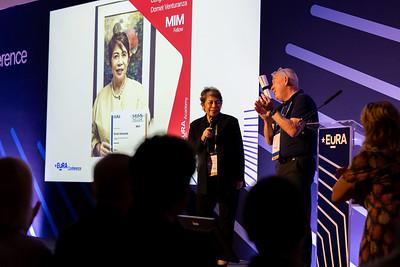
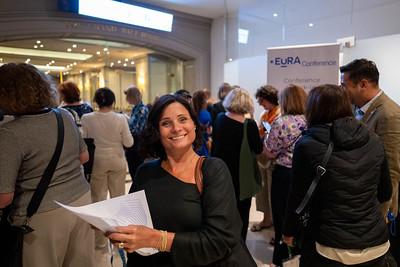
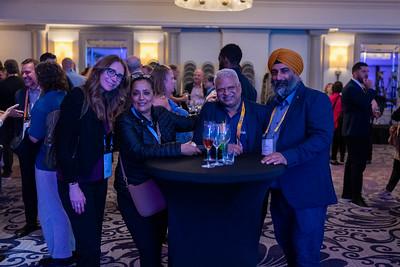
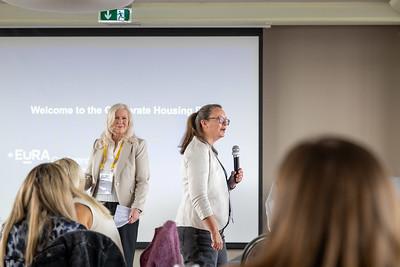
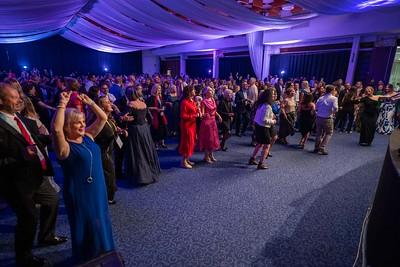



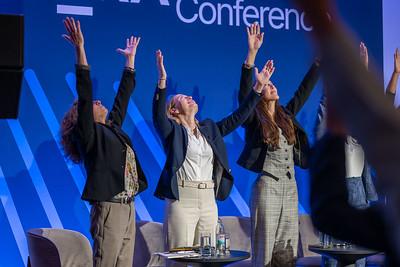
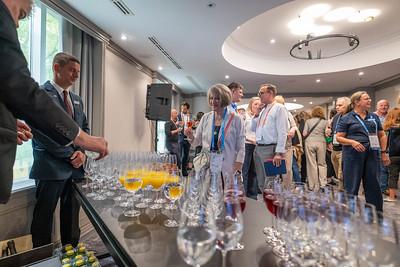

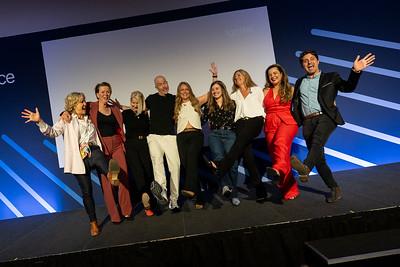
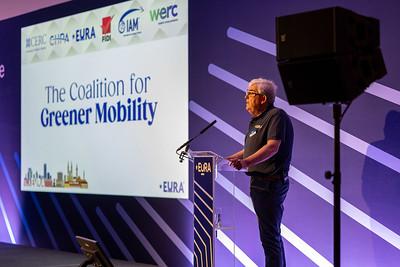

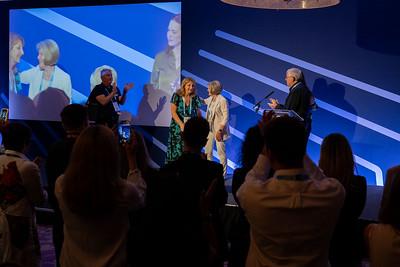

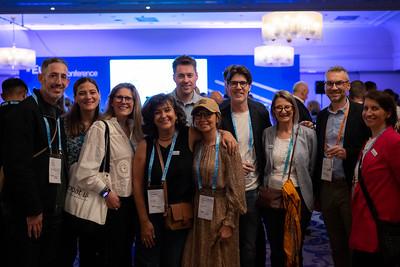





By Manon Dumas ARIANNE Relocation Canada, Dana Pick Eres Relocation, Tracy Stuart Kautzmann IMPACT Group, Daniel Drenger Ocean Group
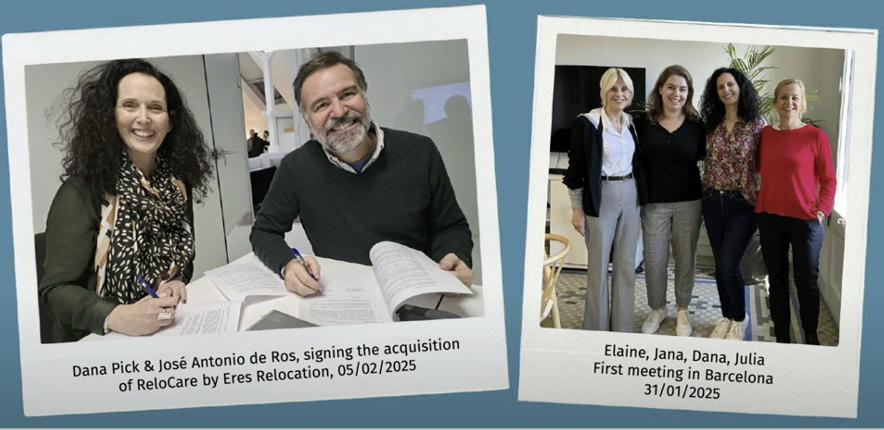

At a recent panel on Dealing with Adversity, four relocation industry leaders shared deeply personal stories of crisis and recovery. Their experiences, ranging from betrayal and injury to national trauma and bureaucratic injustice, offered rare insight into the human side of leadership, and the quiet power of resilience.
heard just weeks before the accident helped reframe her experience: “We are a house with many rooms. And this accident—it’s now one room of my life.” At first, she found herself sitting in that room often. But over time, she noticed she could walk past it, glance in, and keep going. “It’s always part of the house, but it’s not the whole house,” she explained.


For Daniel Drenger, VP at Ocean Group, adversity came on October 7, 2023, with the violent attacks in Israel. Personal safety, professional responsibility, and national trauma collided. “We had no time to pause,” he said. Clients fled, chaos reigned, and his team was forced to act with no playbook. Through fear, they led with empathy, supporting expatriates who had lost everything. “We acted through fear, not by ignoring it,” he explained, noting that trauma still lingers. But he chose to lead anyway.
Moderator Dana Pick, Country Managing Partner at Eres Relocation Czech Republic, opened the session with a story of betrayal. In 2022, two trusted managers left her company and, for two years, actively worked to destroy everything they could from the outside. “I didn’t get the knife in my back. I got it in my heart - with a twist,” she shared. The emotional toll nearly ended her business. But with support from those closest to her, she renewed her trust in herself and chose to rise up and rebuild. Two years later, her success led Eres Relocation to acquire her company, ReloCare. “Vulnerability became my strength,” she said.
Panelist Tracy Stuart Kautzmann, Director at IMPACT Group, recounted the trauma of being struck by a competitor during an Ironman triathlon. The impact ended her race and upended her life. Confined to a couch for eight weeks, she was forced to surrender control and lean on others. “There’s theory, and then there’s the reality of grief,” she said. A metaphor she’d
Manon Dumas, founder of ARIANNE Relocation Canada, shared the toll of a prolonged, aggressive tax audit. What began as routine spiraled into intimidation, unjustified demands, and eventually a $400,000 tax bill. The stress triggered a panic attack and threatened her wellbeing. Ultimately, she chose to stop fighting, not out of defeat, but in protection of her health, family, and future. “We decided to cut our losses,” she said. Her story underscored the courage it takes to walk away from injustice in order to preserve what truly matters.
These stories weren’t about relocation logistics, but they revealed something more important: the human reality behind every business decision. In an industry built around transition, these leaders reminded us that resilience isn’t about being unbreakable, it’s about choosing to keep going, even when broken.
Adversity is part of life. But in how we meet it, with honesty, strength, and empathy, we define who we are. And in doing so, we deepen our capacity to serve others with compassion and authenticity.
Links to the YouTube uploads of all recorded sessions are on P28


The Immigration workshop in Zagreb started with a panel titled "Navigating Change in Immigration", moderated by Ben Sookia of Centuro Global. The session brought together experts from across the globe to share insights on how immigration laws and policies are evolving in response to political, economic, and demographic pressures.
The conversation began with Bobbie Bartle from Aires, who shared a timely update on the U.S. immigration landscape following the introduction of the new U.S. administration in January 2025. While initial government efforts have largely focused on controlling unlawful immigration and tightening border security, Bobbie noted that there are already crossover effects impacting corporate mobility. These include increased scrutiny at consular interviews and ports of entry, as well as longer wait times overall. Additionally, the administration’s evolving stance on trade and tariffs could have indirect consequences on visa processing in the months to come.
From Eastern Europe, Natasa Tasic of Intermark relocation provided an overview of positive reforms in countries like Serbia and Croatia, where immigration systems are being streamlined to support workforce mobility. She highlighted the increasing impact of digitization and regional agreements such as the Open Balkan initiative, which aim to make immigration procedures more flexible and business-friendly. These changes reflect a broader shift in the region toward pragmatic policies that address labor shortages and economic development.
Turning to Germany, Ben Gebel from visumPOINT acknowledged that while the new government has not introduced major changes to skilled migration policies, the focus has clearly shifted toward tighter control of irregular migration. He emphasized that although digitalization of immigration processes is underway, progress remains slow and inconsistent. Meanwhile, bilateral agreements with countries like Brazil and India— intended to attract more foreign talent—have yet to yield the expected results, underlining the need for a stronger policy turnaround to meet the growing talent gap.
By Johanna Lennartson Nimmersion AB
Mahrukh Umrigar from Consortia Legal offered a rich update on developments in India, describing the country as being in a “boom phase” when it comes to immigration. India is actively seeking to attract foreign nationals through tourism, business, and skilled visa routes, supported by a growing number of e-visa options. She highlighted the recent passing of the Immigration and Foreigners Act, 2025, which introduces new national security measures, stricter penalties, and clearer visa regulations. India also continues to sign bilateral migration and mobility agreements with countries like the UK, Germany, Italy, and Australia, aiming to facilitate legitimate migration while jointly combating illegal immigration.
Across all regions represented, several common threads emerged: the increasing use of digital tools, the political drivers shaping immigration policy, and the urgent need to balance security with business needs. While each country faces unique challenges, the global direction seems clear—immigration systems are becoming more complex, but also more strategically significant for economic growth.
Following the panel, the conversation continued in a workshop session, where attendees discussed recent immigration changes in their own countries and exchanged experiences on shared trends and challenges in an evolving global landscape.
Links to the YouTube uploads of all recorded sessions are on P28
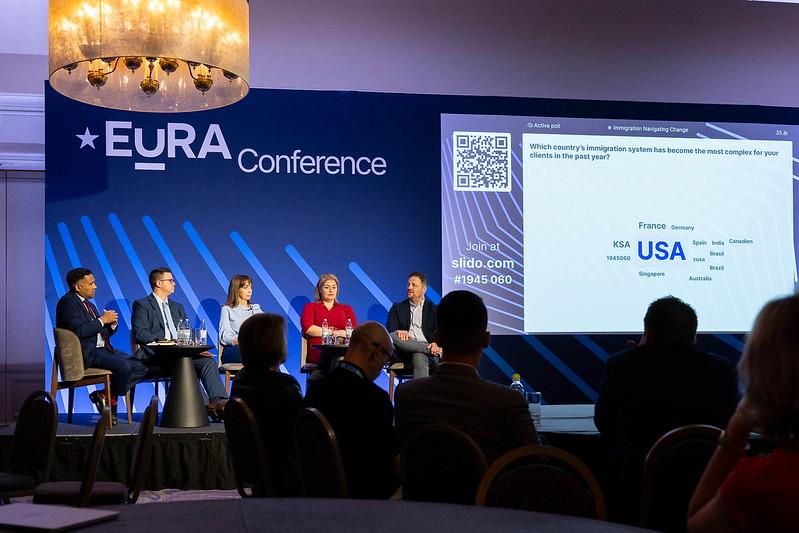


By Dominique Coenen Expat Management Group
The recent EuRA Immigration Workshop in Zagreb hosted a crucial discussion on Immigration Compliance – Why It Matters & The Risks of Falling Short. The panel provided essential insights into the complex realities of compliance, moving beyond theoretical rules to practical challenges and future trends.
Our session began by addressing the often-blurry lines of accountability. While legal responsibility for compliance rests with employers, the expectation often falls upon immigration providers. This disconnect can create significant risk.
Ana Bose from ADBH Advisory Limited (UK) highlighted how thousands of sponsor licenses are revoked due to issues like mishandled right-to-work checks. She emphasized that providers must maintain an advisory, not executive, role. Rahul Batra from Hudson McKenzie (Middle East) detailed a rapidly tightening compliance landscape where enforcement intensifies, often without formal announcements. His firm meticulously documents advice to manage liability. Charina Garcia from WR Global Immigration (US) noted a strong shift towards ongoing compliance driven by increased audits, with clients now seeking strategic guidance, not just visa issuance.

The discussion then moved to the tangible risks and impacts of compliance failures, extending beyond fines to reputational damage and operational disruption. Rahul illustrated the unpredictability in the Gulf, where sudden bans and restrictions emerge without notice, leading to high work permit refusal rates and limited appeals. Charina described heightened awareness in the US, where clients' anxiety drives over-preparation. Her firm uses mock audit videos and 24/7 document portals to manage this. Ana reiterated common UK pitfalls, like incorrect assumptions about outsourcing sponsor duties, underscoring that compliance continues long after a visa is issued.
Bringing a crucial European perspective, moderator Dominique Coenen from Expat Management Group shed light on the unique complexities in Western Europe. Issues like fragmented rules, overwhelming regulations, and politically-driven border checks create significant challenges for international employers. We highlighted the

demanding reality for companies navigating a labyrinth of exceptions and limited alignment among EU member states.
The discussion culminated in an exploration of technology's transformative role in compliance. Governments globally are increasingly adopting digital systems, AI-driven enforcement, and sophisticated crossborder data sharing, promising faster processes but leaving less room for error.
In the UK, Ana explained how immigration systems are rapidly digitizing, shifting towards digital permits. While clients anticipate simplicity, underlying complexity and growing interagency data-sharing pose risks. Charina showcased how her US firm leverages in-house technology, AI, and biometric scans for proactive, datadriven strategic advice. In the UAE and Saudi Arabia, Rahul highlighted advancements in digital infrastructure. Yet, with limited transparency, past compliance issues are increasingly traceable across borders.
Dominique Coenen further elaborated on the Western European technology landscape, noting that while major EU projects face delays, real-time enforcement is escalating at borders. Companies grapple with complex national and EU obligations under a self-regulatory model, but as digital
systems become more trackable and interconnected, grey areas are disappearing, demanding new preparedness.
The overarching takeaway was clear: compliance is no longer a mere administrative task. As governments shift more responsibility to employers without clarifying regulations, the risk of non-compliance extends to operational and reputational damage.
The panel concurred that the value of immigration providers is fundamentally shifting. If technology automates basic permit issuance, our true expertise lies in perspective and strategic guidance. This involves proactively identifying compliance risks, assisting clients in navigating increasingly fragmented and automated systems, and connecting critical information—especially when regulations are intricate or unwritten. Our role is evolving from process enablers to indispensable strategic partners, empowering clients to achieve clarity and accountability in an everchanging global mobility landscape.
Links to the YouTube uploads of all recorded sessions are on P28

By Jo Layton CEO CAP Worldwide
Creating the opportunity for the global corporate housing community to come together for a powerful and thoughtprovoking Corporate Housing Day, held under the theme ‘What Unites Us’ became a reality at this year’s conference.
A huge thank you goes to Tad, Dom, Briony, and the entire EuRA team for providing this platform and recognising the value of shared learning and open dialogue. We also thank them for allowing us to buck the normal panel discussions, and drive the interactive sessions right through to the final session, where the association leaders closed the discussions with a leadership panel.
The goal was achieved in bringing together professionals from across the sector for a full day of education, discussion, and collaboration, focused on the most pressing and targeted topics in our industry. Our goal was always to create an interactive and inclusive experience, and with over 22 hosts leading and driving sessions throughout the day, we succeeded in making space for every voice. From relocation experts to housing providers, agents to association

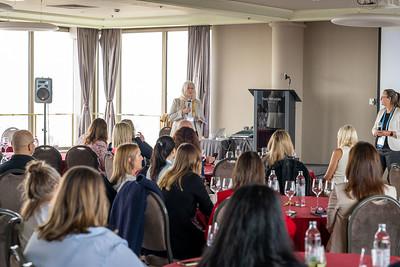

leaders, we ensured that the conversation reflected a truly global and diverse industry perspective.
The day was carefully designed and curated around a “golden thread”—a thematic flow that connected each session in a purposeful way. The audience became the panel as the hosts invited engagement from the room on where the industry is today, which led naturally into our Risk Management session. Together – the room created a SWOT of our industry, where we identified our strengths and opportunities whilst highlighting the future threats for the industry to face and solve. The day included a fun Sustainability session, which led to the coming together of workgroups focusing on Social and Governance. This



structure allowed each topic to build upon the last, creating a continuous, positive and meaningful journey.
Housing Day Highlights
• Engagement – making everyone welcome
“An interactive temperature-check of our industry in a fast-moving geopolitical landscape.”
This session set the tone for the day, inviting open discussion and participation from across the room.
• Risk Management
“Operators, agents, RMCs and third parties – discussing and debating how to prepare for potential challenges and current risks in a VUCA world.” Together, we examined industry vulnerabilities and shared strategies to build greater resilience in a volatile environment.
• ESG (Environmental, Social & Governance)
“With a focus on Social and Governance, a lively, inclusive and interesting POV discussion on our common goals of cooperation, teamwork and collaboration.”
The session emphasised sustainability and accountability, spotlighting
collective responsibility and actionable steps forward.
• Associations Fireside Chat
“Setting agendas for the global stage –an insight into how association leaders are working to educate and shape a healthy future for the corporate housing industry.”
This final conversation brought the day full circle, exploring leadership, advocacy, and the shared goals that unite us.
We achieved genuine cross-sector engagement, linking key themes and encouraging honest conversations. Attendees left with fresh insights, actionable takeaways, and a renewed commitment to collaboration. The structure of the day allowed us to move fluidly from challenges to solutions, ending with a powerful reminder of our shared mission.
The final “What Unites Us” session wrapped up with optimism and unity. By weaving together risk, sustainability, governance, and leadership, we built not only a cohesive agenda—but a connected community. The day reaffirmed that while our roles may vary, our purpose is shared: to support a thriving, ethical, and forward-looking corporate housing industry.

By Manpreet Dhami-Magne Synergy Global Housing
In a pair of thought-provoking sessions— Blueprint for Supplier Success and Maintaining Success as a Global Mobility Supplier—a dynamic group of global mobility professionals came together to explore what it truly takes for suppliers to not only enter the mobility ecosystem, but to grow, evolve, and sustain longterm success.
We began with a look at the current landscape. Sean Collazos (Relolink) painted a vivid picture of the forces shaping global mobility today—rising cost pressures, accelerating digital transformation, shifting workforce expectations, and an ever-stronger call for compliance and sustainability. It’s clear that the path forward demands more agility than ever before, without

compromising on the assignee experience.
Becky Woods (ADP) offered a corporate lens on these changes, affirming their relevance to ADP’s global programme. She highlighted the increasing importance of suppliers aligning services to business objectives, driving operational efficiencies, and remaining agile in the face of ongoing change. Attention then turned to the surge in RFIs and RFPs—a reality familiar to many. Susan Farrell (RelocateU) spoke candidly about the sheer volume, time, and cost involved in participating, reminding us that responding effectively means being highly strategic and crystal clear in our propositions. Simon Scott (Altair Global) echoed this sentiment, sharing how critical innovation and transparency are to standing out—not only in documentation, but in genuine partnership intent.


But success isn’t won on procurement paperwork alone. Marie O’Neill (EER Middle East) shifted the focus to presence: how a supplier shows up through marketing, networking, and relationshipbuilding. The takeaway was

clear—your service may open the door, but your story and how you tell it is what builds trust. Rene Webster (Relocation Africa) further stressed the power of adaptability and authenticity, especially in competitive or evolving markets. The spotlight then turned back to supplier differentiation. Becky reflected on what truly makes a supplier partner-worthy in ADP’s eyes—reliability, flexibility, and the ability to elevate the mobility experience. Janice Trinidad (EER Middle East) added to this, sharing how EER builds client loyalty through service consistency and operational precision.
As we moved into the second half of the workshop, the tone shifted from entering the market to staying the course. Rene emphasised that success doesn’t end at contract signing—it begins with smooth onboarding and a commitment to continuous improvement. Janice and Susan discussed the role of open, two-way communication in sustaining supplier relationships, from regular feedback cycles to active service reviews.
accountability versus responsibility, reinforcing the idea that excellence is a shared goal—and a shared obligation. Sean wrapped up with a call for proactive service, delivery excellence, and mutual understanding.
What emerged from these sessions wasn’t just insight—it was a shared commitment to raising the bar. In an increasingly crowded marketplace, those suppliers who prioritise collaboration, innovation, and long-term thinking will be the ones who stay relevant and deliver lasting value.
Links to the YouTube uploads of all recorded sessions are on P28
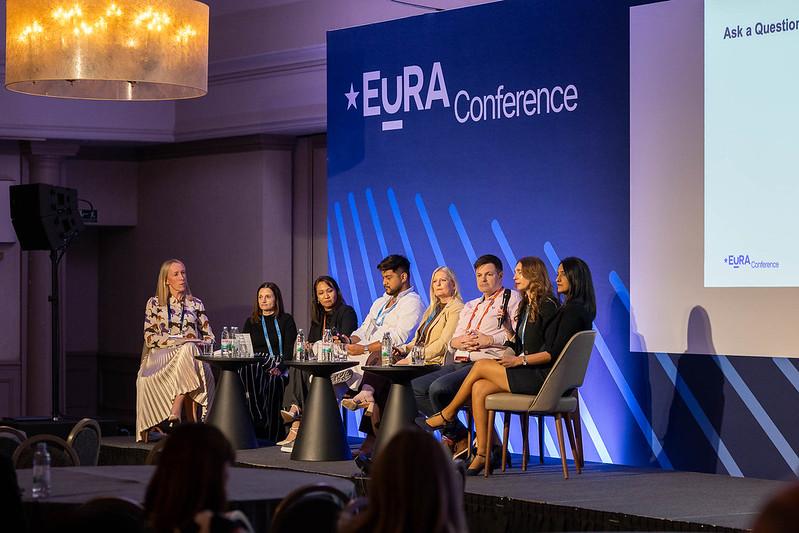
Simon reminded us of the bigger picture: the assignment lifecycle. He encouraged suppliers to think beyond their own touchpoints and collaborate across the supply chain to improve the entire relocation journey. Becky then tackled the nuanced topic of


By Ben Jones Client Success Director Simply London
With the theme of this year’s conference being wellbeing, amidst a dynamic program focused on global mobility and relocation best practices, I had the privilege of hosting a workshop that shifted the spotlight inward, to our personal wellbeing, with the help of my four excellent speakers, Jane, Rhea, Freddy and Jens.
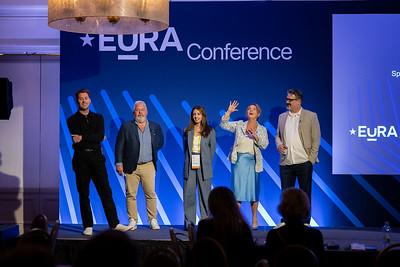

“Put Your Mask on First: A Workshop on Wellbeing,” the session invited delegates from around the world to pause, reflect, and prioritise their own mental health. In an industry built around supporting others, families navigating international transitions, employees adjusting to new roles abroad—our own needs are often sidelined. This session aimed to rebalance that equation!
The theme of wellbeing is not new, yet in the wake of recent global shifts and ongoing remote work realities, it has taken on new urgency. The workshop brought together my fabulous team of industry leaders, participants from diverse backgrounds in an interactive, supportive environment. Rather than a lecture, this was a conversation, a
space where lived experiences and practical tools were shared freely. We opened by addressing how much time we dedicate to our own wellbeing, and more importantly what stops us from dedicating the time in the first place, whether it be not knowing where to start, or a feeling of guilt that we are prioritising ourselves over others!
One of the most engaging segments, led by Jane Riley focused on rewiring the mind through the lens of NLP (Natural Language Processing). Jane introduced the power of anchors, tools and habits that help us ground ourselves in moments of stress. From sensory cues to simple routines, attendees were encouraged to identify their own positive anchors and

consider how these could be integrated into their daily lives.
Another highlight was the discussion that Rhea Narula raised around emotional wellbeing and the importance of recognising all emotions, especially the difficult ones. Rather than suppressing discomfort, we explored ways to respond to it with curiosity and care. This segued naturally into a reflection on movement and what the simple act of walking, particularly during the isolation of the pandemic, taught us about resilience, presence, and recovery.
Jens Petersen shared his own heartfelt journey about his own mental wellbeing, and how the power of movement helped shape his mind for the better, when he embarked on the Camino de Santiago. Jens delivered a vulnerable and brave account of his journey, literally and figuratively, that left everyone inspired.
Lastly, the age-old topic of ‘remote work’! Freddy Paxton shared his own insights in how he manages the wellbeing of his employees as they continue to work both from home and in the office, Freddy invited the audience to share what they did to help their wellbeing at home, and one highlight for me was how much dressing for the office helped focus the mind at home!
Perhaps the most enriching moments came when participants shared their own wellbeing tips, practices developed over the past year that helped them stay grounded, connected, and hopeful. This exchange of ideas brought authenticity and relatability to the room, reminding us that small, consistent actions often make the biggest difference.
The energy in the room was uplifting, and the feedback was overwhelmingly positive. Many left the session not only with practical techniques but with a renewed sense of commitment to their own wellbeing.
In an industry dedicated to helping others thrive during major life transitions, it’s time we honour the same commitment to ourselves, remembering that we cannot pour from an empty cup!
Links to the YouTube uploads of all recorded sessions are on P28



By Susan R. Ginsberg - TIRA Partner and Founder, SRG ADVISORY


The International Relocation Associates (TIRA) was honoured to speak at EuRA 2025 and contribute to the overall wellness conference theme. Our session highlighted the importance of developing mental health and wellness solutions worldwide. It served multiple purposes, from raising awareness and education to elevating employee engagement, sparking innovation, optimising the talent mobility experience, and promoting cultural exchange. We were pleased to learn that delegates gained insights from our provocative discussion, as it was geared towards individuals, managers, and business leaders who support colleagues, clients, friends, loved ones, and themselves. The goal of the session was to focus on OUR humanism.
Panelists included:
• Sylvie Schmit-Verbrugghen, Managing Director at European Relocation Services
• Diwakar Gupta, Co-Founder and Jt. Managing Director at IKAN Talent Mobility
• Irina Yakimenko, Managing Partner and Co-Owner at Intermark Relocation
• Brenda Levis, President at NYC and New England Navigator
• Susan Ginsberg, Founder at SRG ADVISORY (moderator)
Delegates heard from business leaders who exchanged their perspectives, challenges, and solutions for addressing wellness. Additionally, we shared recent wellness data and trends, including the 8 Dimensions of Wellbeing.
It is a balance of wellness dimensions that provides holistic harmony to one’s wellbeing, like a balanced diet is needed for healthy nutrition. Balanced wellness engages the body and mind, and spirit. This multidimensional wellness approach emphasises the importance of positivity and

eternal motivation to promote healthy habits to elevate one’s quality of life.
1. Emotional: contributes to overall health and wellness. It encompasses the knowledge and skills to identify personal feelings and the ability to manage those emotions. NIH describes emotional wellness as “the ability to successfully manage life’s stresses and adapt to change and difficult times.”
2. Physical dimension: all areas of health that relate to physical aspects of the body, including nutrition, exercise, weight management, ergonomics, tobacco use, and disease prevention.
3. Occupational: all aspects of personal satisfaction in your job/career.
4. Social: aspects of wellbeing, including social connections, relationships, and personal expression.
5. Spiritual: search for purpose and meaning in life. This may include believing in a higher power, but spiritual wellness does not have to be aligned with a religion.
6. Intellectual: all brain health and growth aspects via thoughtprovoking mental activities.
7. Environmental: all areas of health that relate to the environment, and how the environment can impact human health. All ecofriendly considerations, active participation in recycling and proper disposal of recyclables,
water conservation, and use of sustainable products.
8. Financial: all aspects of well-being in finances, including knowledge/skills of financial planning and managing expenses.
Thank you to our incredible TIRA member panelists who selflessly shared their time and firsthand experiences. Special thanks to Brenda Levis for courageously speaking about her very personal and painful story.
We also extend appreciation to our experts, Chamin Ajjan, Mindy Veissid, and Eric Jeffries, who shared their wisdom via pre-recorded videos, and our talented videographer, Adolfo Mena Cejas.
Scan the QR code for TIRA-curated wellness resources, APPs, and books.
To learn more about TIRA and consider membership, contact us at https:// tiranetwork.com
Links to the YouTube uploads of all recorded sessions are on P28
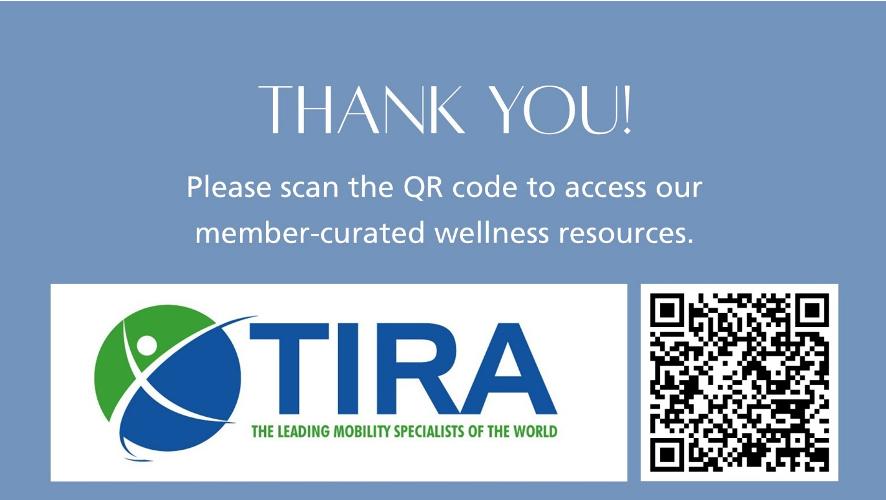


By Laura Levenson Practice Leader Weichert
In the ever-evolving global mobility landscape, this EuRA session provided a wealth of insights and practical strategies for industry professionals. The session kicked off with compelling stories from panelists, highlighting the current challenges and innovative solutions in the field. Simie shared experiences dealing with regulatory changes, property shortages, and school admission waitlists in the Kingdom of Saudi Arabia (KSA). "Challenges that we face are regulatory changes in work permits, shortage of property availability and school admission waitlist in KSA," Simie explained.
Fahra discussed the unique aspects of life in Jakarta, from early morning calls to prayer to the infamous traffic, and the importance of preparing expats for local traditions. Referring to Jakarta as the city with 1000 Mosques, she shared that "call of prayers is at 4:30 in the morning daily; adjust or invest in good earplugs!"
Rene led a discussion on evolving assignment types and the skills required for international assignees and permanent transfers in today’s landscape. The traditional global mobility model involved long-term



expats on 3–5 year assignments, supported by generous packages. This model held firm for many years; however, in the last five years, everything has shifted dramatically.
“The landscape is now much more dynamic, with varied assignment types that can change overnight. There’s been a huge increase in self-initiated moves where employees drive the relocation, and companies support them differently,” Rene describes. Hybrid, remote, and nomadic work models have also emerged, forcing companies to adapt quickly and rethink their policies. Factors driving these changes include tightening visa regulations, budget pressures, employee preferences, and the impact of COVID-19, which normalized these “non-traditional” working conditions.

Sustainability -- encompassing both environmental programs and practices promoting equity and diversity -- also plays a significant role, with companies re-evaluating mobility on a grand scale. These forward-thinking companies are actively reducing their carbon footprints and supporting wider, more diverse talent.
Our panel noted that as a corollary to the changes in talent mobility demographics, the role of Destination Service Providers (DSPs) has shifted from order takers to consultative partners
"DSPs now play a consultative role, engaging clients on broader service needs and adapting to bespoke programs, requiring a shift from operations to sales," Rene noted. Ivona added insights on the expanding and shrinking move types, while Simi and Fahra provided a detailed look at the industries with the highest volumes of mobile talent, including renewable energy, healthcare, and manufacturing.
The combination of all these emerging and dynamic changes reflects the need for DSPs to provide flexible and tailored solutions in response. Acknowledging the heavy lift involved, Fahra and Simie also underscored the pressure to balance all these rapid response needs with pressure to contain costs. They noted that attracting and retaining local talent pools and employing technology
have become ever more critical solutions to manage expenses. Ivona and Diego shared their experiences using technology to streamline operations and enhance efficiency. "We leverage technology in every possible aspect to streamline operations and enhance efficiency," Ivona shared.
As the discussion wrapped up, we all recognized as providers, RMCS and supplier partners alike, the criticality of our role in guiding corporate clients to perceive the value of their investment vs. the cost burden.
The EuRA session provided valuable insights into the current trends of global mobility and a unique look at the dominant trends from the perspective of mobility players across the EMEA region. The discussions underscored the importance of collaboration and adaptability to navigate the industry's complexities. As the global landscape continues to evolve, these insights will be crucial for professionals looking to stay ahead of the curve and ensure their businesses stay resilient amid any tides of change.
Links to the YouTube uploads of all recorded sessions are on P28

By Michèle Bramstoft Independent Consultant
The EuRA Zagreb stage was once again alight—truly ignited!
Our seven intrepid Ignite presenters took us on an emotional journey, touching on stress, menopause, joy, death, divorce, adoption, and neurodiversity. Each story was unique and deeply personal, yet all were connected by a powerful red thread: wellbeing, this year’s conference theme.
Since 2016, Igniters have woven their tales around the conference theme. This tradition continues in Malta, where we’ll celebrate 10 years of Ignite at EuRA!
Highlights from Ignite Zagreb 2025
• Stress Management
Irene Bunt, MD of Anwyr in The Netherlands, kicked off Ignite with practical strategies for managing stress. Her top three “mind-clearing” hacks:
1. Set priorities and plan well— organize tasks and address issues at a specific time.
2. Take regular breaks—step away periodically to refresh your focus.
3. Recharge consciously—make the most of your downtime to truly reset.
Irene challenged us all to try at least one tip. Did you let her know how it worked for you?
• Menopause: Breaking the Silence
Beth Hotze, VP of Sales and Marketing at CWS Corporate Housing, bravely tackled the often-taboo topic of menopause. Her session, “Let’s Talk


Menopause!” aimed to educate and support, highlighting how menopause remains underfunded and underdiagnosed. If you meet Beth, ask her about it—she’s always ready to talk!
• Chasing Joy
Adam McWhirter, CEO of Maxxelli Consulting, inspired us to seek out moments of joy, sharing his personal experiences and encouraging everyone to find joy in their own lives. When you look for joy, you find it!
• Resilience Through Challenge
Lucy Foster, Global Account Manager at The Impact Group, shared her emotionally charged expat journey in Dubai. Her story reminded us how empathy, care, and support from our industry can make all the difference during tough times.
• Adventure and Adaptation
Christina Miller, Senior Manager of Global Client Solutions at IOR Global Services, explored her “Evolution of Adventure.” She shared how preparation, finding joy in the journey,

and embracing unexpected changes have shaped her outlook.
• The Art of Saying No
Rossana Veglia, Chief Mobility Officer at Global International Relocation, Portugal, highlighted the empowerment that comes from confidently saying “no.” Her journey of self-discovery showed us the value of setting boundaries.
• Harnessing Your Superpower
Jo Webb, Head of OrbiRelo UK, helped us discover our hidden strengths. Her message: everyone has a superpower— it’s just a matter of tapping into it.
Did you get a taste of what our seven Igniters uncovered?
Want to dive deeper into their stories of stress, menopause, joy, death, divorce, adoption, and neurodiversity? Watch the 2025 Ignite presentations on the EuRA YouTube channel! They’re well worth a watch—or a rewatch!
Ready to Ignite in Malta 2026?
Do you want to grow your confidence, expand your comfort zone, and make a positive impact?
Take the Ignite Challenge at EuRA Malta 2026!
It will be the 10th anniversary of Ignite at EuRA. Submission forms will be emailed to members at the end of September. Start thinking now:
• What topic inspires you?
• What touches your soul?
• What story showcases your vulnerability?
When the Malta conference theme is announced this summer, tie it to your topic and submit your idea!
The EuRA Executive Group will review submissions in November.
Be part of the brave, the bold—the Intrepid Ignite Group of 2026!
Michèle Bramstoft, Public Speaking Coach, Toastmaster, and Ignite enthusiast, will support you throughout your Ignite journey.
“How do you eat an elephant? One bite at a time.”
The process begins in December with a TEAMS call. Michèle looks forward to working with you!
- “The editing helped me frame my message and the timelines kept me on track.”
- “I was prepared from the start. Nothing was left to the last minute.”
- “Editing for pauses and making the story about everyone in the room transformed my speech from a personal monologue into a shared experience.”
Discover their bravery for yourself. And maybe next year, it will be your story that ignites the stage!
Links to the YouTube uploads of all recorded sessions are on P28

We have so much great content on our YouTube channel.
For the past decade all the conference sessions that took place in the main plenary theatres have been recorded and uploaded. All of our incredibly popular Ignite sessions are also online.
We have dozens of Briefings going back years covering multiple topics from Legal Guides, Contracts, Mergers & Acquisitions Duty of Care, Sustainability and more.
We also have local guides to our conference locations, some beautiful conference launch films, interviews with members all over the world and a huge memoir of those Covid days when we could only communicate via Zoom!
Please subscribe to our channel. Every subscriber helps to increase global relocation recognition!


Conference Opening
EuRA - A Year in Focus
Dealing with Adversity
Addressing Mental Health and Wellness
Immigration Workshop Part 1
Immigration Workshop Part 2
Supply Chain Workshop
Wellbeing Workshop
State of the Industry
AI Won't Replace Humans... Ignite
Conference Closing and Reveal

We are delighted to release the results of the 2025 Global Employee Mobility Survey which undertook in partnership with the team at the Canadian Employee Relocation Council. Steve Cryne, the President and CEO of CERC commissioned the 4th edition of the report with their research partner Ipsos Global Public Affairs. They interviewed 10,500 working women and men in 19 countries to assess their attitudes towards international relocation for employment.
With businesses globally facing shortages of skilled workers that stifle economic growth, the mobility of talent emerges as a key solution. However, the global economy is facing enormous pressure from protectionism and a realignment of economic integration. This project seeks to
answer crucial questions, especially in the post-pandemic era and a new, economically aligned world: How do we get people to where the jobs are? Will people move for employment reasons in the changed landscape?
Key Findings;
• Employee willingness to relocate abroad has grown since 2017.
• Willingness to relocate for employment is about more assurances than it is about risk.
• When considering a new job opportunity abroad, helping to facilitate a connection to home is essential.
• Relocation incentives and benefits matter, most notably providing housing assistance and covering travel costs to visit family.
• Flexible work options are essential for employees looking to relocate.
• Emphasising quality of life benefits of relocating to a new country can effectively help inspire employees to consider overseas assignments.
• Highlighting career growth is also appealing to those willing to relocate for employment.
• Country-specific economic and political climates play an important role in shaping employees’ relocation preferences. The report is available at discounted costs for EuRA Members.
The discount code and link to the report are on the EuRA Website.
You must be logged in to get the discount code


The four modules in the Fixed Syllabus Programme are now updated and re-branded and back live in the Academy.

For the rest of the summer members can access the Coaching Approaches in Mobility (CAM) Programme A, free of charge. There are three components in Programme A which is one of four parts of the course, A,B,C & D all of which are available in the EuRA Academy. The three components are;
• The GROW Model
• Questioning and Listening Skills
• Transactional Analysis Part One
The coupon codes for free access are on the website. Remember you need to be logged in to access that page. The Programme is worth 50 credits towards you MIM certifications at all levels.
Working in the Supply Chain is in development and will tie in with our Supply Chain workshop in Zagreb. We will be launching that live and free to access from September.
We will also be looking at developing training to help members use our Carbon Calculator which we hope to launch with the Coalition for Greener Mobility Partners later this year.
From 2023, we have been charging a nominal amount to access the Modules themselves. Access to each module now costs €50. Access to the
quiz also costs €50 so each module will cost a total of €100 to qualify.
However we are developing a licence scheme for members to access the Academy which will reduce those costs, so if you have several team members that you would like to put through the programme, please just contact us and we can work out a year long licence at a discounted rate. Full details to follow
So if you are planning to put your team through MIM and or MIM+ and CAM Certifications, contact us so we can create a licence for you to enable your teams to participate at lower costs.
Martina Scharwey our Consultant for Quality has updated the “Introduction to the EuRA Global Quality Seal” which is 100% free for all members to certify and gain 50 credits towards MIM and MIM+ certification.
All the amazing content in the Academy is accessible for just €50 for modules and €50 for Quizzes. Nonmembers pay €250 to access a Module and a Quiz.
Our current MIM+ Programme consists of:
• Legal Compliance in Mobility
• Achieving Business Growth
• You are Your Brand
• Collaboration in the Next Normal
• Coaching Approaches in Mobility, four modules
• Sustainability in Mobility
• Sustainability; A Company Wide Approach
• Introduction to the EGQS
• Anti-Money Laundering
• Duty of Care
This unique training course looks at the application of coaching skills
when working with people with a particular emphasis on working across cultures. It is an invaluable tool for all of us who work across the spectrum of mobility. The course consists of; Programme A
• The Grow Model
• Questioning and Listening Skills
• Transactional Analysis P1 Programme B
• Roles and Responsibilities
• Giving Feed and Challenging Supportively
• Learning Styles Programme C
• Handling Change
• Emotional Intelligence
• Positive Focus Programme D
• Transactional Analysis P2
• How Not to Start an Argument
• Cultural Competences and Personal Development Programme A is free to all members until August 31st.
Coming soon;
• Working in the Supply Chain
The Maddalena Michieli Scholarship Fund
In 2022 we launched the Maddalena Michieli Scholarship Fund to help individuals to join the industry. Throughout her professional life Maddalena placed a great emphasis on the enabling her teams through training and we are delighted that we have had ten people successfully graduate from the Academy thanks to the programme. Full details are on the Education Page of the website.
Don’t forget you can mix and match modules to suit your learning needs and gain your credits to get your qualifications.
Below are downloadable guides with everything you need to know;
• Guide to Qualifying with EuRA
• Routes to Qualifying Explained

r2n Relocate to Norway, developed out of a wish to deliver relocation services differently with the emphasis on the uniqueness of each employee. With lots of enthusiasm and determination, Ann Kristin Winje and Carol Akporiaye launched the company in October 2018.
With over 20 years of relocation experience between us, we were certainly not new to the industry but had to work hard to find our space in a continually growing business area in Norway. It has been an exciting journey so far….
The choice of company name was in fact a gift from a very dear friend and earlier giant in the relocation industry.
After retiring, Astrid Roheim gave permission to take over the company name, r2n Relocate to Norway, which already had a solid reputation. We are always mindful about treating it with the respect and success it deserves.
The arrival of covid challenged r2n as it did the relocation industry worldwide. We believed in what we were doing and had customers who believed in us throughout the tough times and this got us through.

also lighten the mood in the office with a song now and then.
And throughout the winter she can be found in the mountains skiing at every opportunity she gets. Carol moved to Norway over 30 years ago and adopted Oslo as her home. Her background in HR and Global Mobility was the perfect springboard into relocation. Her personal experience as an expatriate spouse is the basis for her special interest in Partner Support.


We are so fortunate to have a team that brings so much experience, personally and professionally, to the r2n table.
Ann Kristin lived in Germany for 10 years and knows first-hand the issues that can arise when moving to a new country. While being born and raised in Oslo, she provides a lot of context and background information about the city to enlighten us and our customers. As a member of her local choir, she will
For relaxation a good swim is top of the list followed by a visit to the cinema and a good meal out.
Henriette joined the team in August 2023 and what a wonderful addition she is. With her background/education in HR she has been a boost in our strategic planning. Her talent for social media has also magnified the r2n profile across many platforms. In her spare time, (with two small children!!) she likes to keep healthy with regular training and good walks in the forest. And to relax, an exciting series on the TV does the trick.
We are a small, but formidable team! Just ask our customers, clients and partners.
Our core values drive our ambitions and are the foundation for how we work. Being curious about what our customer or employee requires. Listening and seeing. Providing the trust and reliability necessary to execute and complete the task in hand. Caring about the people we work with.
https://www.relocate2norway.no/

Valentino Coletto is the founder and CEO of REFRAMED S.r.l., an ISO 9001:2015 certified company specializing in Relocation Concierge services for high-net-worth entrepreneurs and retirees. He is an official Supplier Member of EuRA - The European Relocation Association and member of IMC - Investment Migration Council. He has managed the relocation of over 1,000 families all over the world so far.
What is Relocation Concierge?
REFRAMED S.r.l. aims to give you a new perspective on life, supporting and accompanying clients step by step, from the choice of location and property for rent/ purchase, up to assistance in the procedures necessary to reside in a new foreign country. The result is a person, a couple, a business that is reframed in a new life context.
REFRAMED S.r.l. offers Relocation Concierge services for a tailored experience that includes:
• Personally curated real estate search, with privileged access to exclusive properties not available on the market
• Management of bureaucratic procedures (visa, temporary or permanent residence, tax residence, citizenship)
• Orientation, setting up services, getting acquainted with the neighbourhood (the nearest office, grocery store, doctor, restaurants)
• Arranging childcare and school enrollment
• Register with local healthcare providers such as doctors and dentists
• Coordinating pet transport and care
• Finding local pet services (veterinarians, groomers, etc.)
• Connection with local services (banks, insurance, utilities)
• Coordination with moving and transportation companies
• Assistance with cultural and social integration
• Language support and document translation
• Dedicated multilingual team
• Comprehensive financial consulting, including:
- International asset transfers
- Strategic tax planning
- Asset protection
- Wealth management
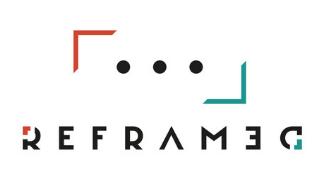
• Absolute confidentiality is the company's highest priority
• All specialists undergo rigorous security clearance
• Proactive safety measures throughout your relocation
An example of one of its tailor-made services?
REFRAMED S.r.l. has created a trip so that clients can experience daily life abroad before relocation!
The program includes true immersion in the authentic local culture, familiarizing with the cost of living and getting to know other foreigners who have already moved and who can tell clients about their experience. During the trip clients can also go to viewings of rental houses selected according to their needs and proceed directly with the signing of a long-term rental contract and start the paperwork to become a resident.
What does the REFRAMED trip include?
1. Get to know the foreign community
• Professionals and entrepreneurs who work in various industries
• Foreign families integrated into the social fabric
• Resident retirees from Europe
Through this program, clients will enjoy experiences designed to facilitate the integration of newcomers, including: cultural gatherings, recreational activities, sports and guided tours to sites of historical, natural and cultural interest.
These opportunities to socialize are crucial to understanding what relocation entails through direct contact with those who have already embarked on this journey.
2. Discover local historical and cultural heritage
The carefully curated cultural immersion includes guided visits to historical landmarks, museums, and architectural sites that tell the story of the chosen destination. Clients will explore ancient traditions, local customs, and contemporary cultural expressions through exclusive access to cultural events, art exhibitions, and traditional festivals.
3. The economic aspects of living abroad
Destinations usually have an interesting dual nature, juxtaposing the touristy area with residential neighborhoods. Organized trips to local markets, everyday places of interest and city shops will let clients:

• Get a better sense of prices of basic necessities
• Acquire practical skills for daily life
• Meet local suppliers of fresh food
This particular trip is designed to help clients experience these practical aspects too, which are fundamental to a realistic assessment of the cost of living.
4. Local culture and the language
The program includes an introduction to the local language that focuses on practical language skills, with an emphasis on simple everyday phrases, business terminology and useful expressions for socializing.
5. Find a rental house
Personalized itineraries where REFRAMED S.r.l. is at clients’ complete disposal: the company organizes and accompanies clients on private real estate viewings and provide assistance with visits and the signing of a longterm rental contract.
All individuals have their own needs and tastes when it comes to choosing a home to live in for at least six months and 1 day per year. That's why REFRAMED S.r.l. accompanies clients in person during the search for their dream home and then start the application process and paperwork for relocation.
REFRAMED S.r.l. will be there with clients throughout the trip: from the moment they step off the plane to the moment they return home, the company’s staff will always be by the client’s side.
REFRAMED key points
ISO 9001:2015 certified company
REFRAMED, after a rigorous inspection, has demonstrated that it meets international requirements in terms of Quality Policy and has obtained the ISO 9001:2015 Certification.
ISO 9001:2015 is an international standard that every certified company must apply to guarantee reliability, continuous improvement and client satisfaction. The company's objective is to apply all those tools that allow it to control the processes and different activities. Here you can read more about that: https://reframed.it/en/ why-rely-on-a-company-with-iso-90012015certification/
Authorized travel agency
REFRAMED has the authorization granted by the Office of Tourism of the Province of Padova to operate as a travel agency in compliance with the mandatory requirements and legal obligations.
Insurance policies to protect the client
REFRAMED meets the mandatory requirements in the insurance sector to protect the client's investment thanks to the stipulation of specific policies as a travel agency.
RBI and CBI programs
REFRAMED deals with RBI programs (Residency by Investment) and CBI programs (Citizenship by Investment) in several countries.
In our team, you can find certified expertise and professionals who are members of the Investment Migration Council (IMC), an international organization based in Geneva, Switzerland. The IMC primarily focuses on issues related to citizenship and residence programs for investors, promoting ethical practices, professional standards, and research in the investment migration sector.
Contracts in accordance with the European and Italian laws
REFRAMED operates according to commitments defined by specific contracts to protect the Parties, valid under European and Italian laws.
Real-time monitoring
REFRAMED provides a tool that lets its clients monitor their relocation project in real time. The client can check each activity on the entire supply chain (tax advisor, business consultant, real estate broker, etc.) at any time. Each task has its own deadline and is assigned to a manager who communicates progress and provides updates through notifications to the client. The client can also interact, commenting within the platform and uploading documents to an orderly and efficient dashboard where everything is in its proper place.
International Tax and Wealth Planning for pensioners and entrepreneurs
We help reduce the tax burden by providing you a new tax residency. We specialize in International Tax and Wealth Planning for pensioners and entrepreneurs.
For example our retired clients can enjoy zero or nearzero taxation in several countries in EU or outside EU.


By Valentino Coletto

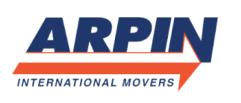
Arpin International Group’s GSA Division is pleased to announce the promotions of team members Ronald Blanchard, Nathalie Dillon, Sarah Iannelli, Chrissy Shadwell, Elizabeth Turco, and Jay Newton.
“The six individuals promoted have demonstrated a commitment to providing outstanding customer service to internal and external customers and accounts. They have each been instrumental in shaping Arpin’s GSA division into what it is today. Their expertise, persistence, and dedication will continue to drive our GSA program forward,” said Vice President of GSA Services, Matthew Somweber.
Ronald Blanchard has taken on a key leadership role as director of operations, GSA division. Blanchard is a relocation professional who began his career in international household goods removals with Arpin International Group in 2014. As director of operations, he is responsible for daily operations, global supply chain management, and securing moving and relocation services for federal employees and agencies, ensuring efficient, cost-effective moves in compliance with federal regulations, and overseeing the company’s service teams managing the customer experience. Blanchard also serves as a member of LACMA, FIDI39, and IAM Young Professionals’ clubs.
Nathalie Dillon has stepped into a new leadership position as director of freight forwarding, GSA division. Dillion will ensure process development and operational efficiency across air and ocean freight operations. As an escalation point for freight booking issues, the director collaborates closely with leadership to refine best costing, practices, oversee shipment assignments, and maintain compliance with U.S. Flag Cargo Preference and Fly America Act regulations. With a strong emphasis on collaboration, compliance, and continuous improvement, Dillion helps shape the strategic direction of the Freight Team while maintaining high service standards as Arpin grows with our own IAC Independent Air Carrier offering internal booking of our outbound airfreight. Nathalie will also help develop and build a team within GSA that will look to start a new Arpin adventure into general cargo a cultural departure from Arpin’s Household Goods legacy.
To read more click here
IN A SPECIAL OPERATION AT THE CENTRAL BANK OF BRAZIL

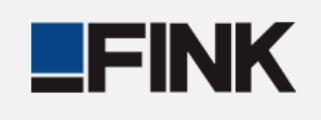
In October 2016, the Central Bank of Brazil carried out a highly complex logistical operation to relocate The Discovery of Brazil panel by Candido Portinari—one of the most iconic and valuable artworks in its collection. FINK Mobility was proud to be part of this meticulous operation.
The move became necessary due to the renovation of the Noble Meeting Room on the 8th floor of the Bank’s Headquarters in Brasília, where the panel had been on display.
Standing at an impressive 4.92 meters tall, 3.93 meters wide, and weighing around 350 kilograms, the panel required detailed technical planning. The operation involved multiple departments within the Central Bank as well as specialized companies in art handling, transport, and fine art insurance.
The project was a joint effort involving the Financial Education Department, the Infrastructure and Asset Management Department, and FINK Mobility—renowned for handling works of significant historical and artistic value.
Due to the scale and fragility of the piece, specific equipment was used to ensure stability and safety throughout the move. This included scaffolding, reinforced supports, vibration-dampening systems, and humidity and temperature control.
Our specialized team was present at every stage, from the removal to the repositioning of the artwork.
This was not the first time the panel had been moved. In 2000, it was temporarily relocated during another renovation, when it also underwent cleaning. Over the years, it has been part of conservation initiatives that underline the importance of not only preserving the work itself but also maintaining the technical expertise needed for its care.
This operation was more than a simple relocation-it was a demonstration of FINK Mobility continued commitment and ability to carry out high-precision logistics with safety and excellence.
FINK: 100 Years of Mastery in the Art of Moving.
To read more click here

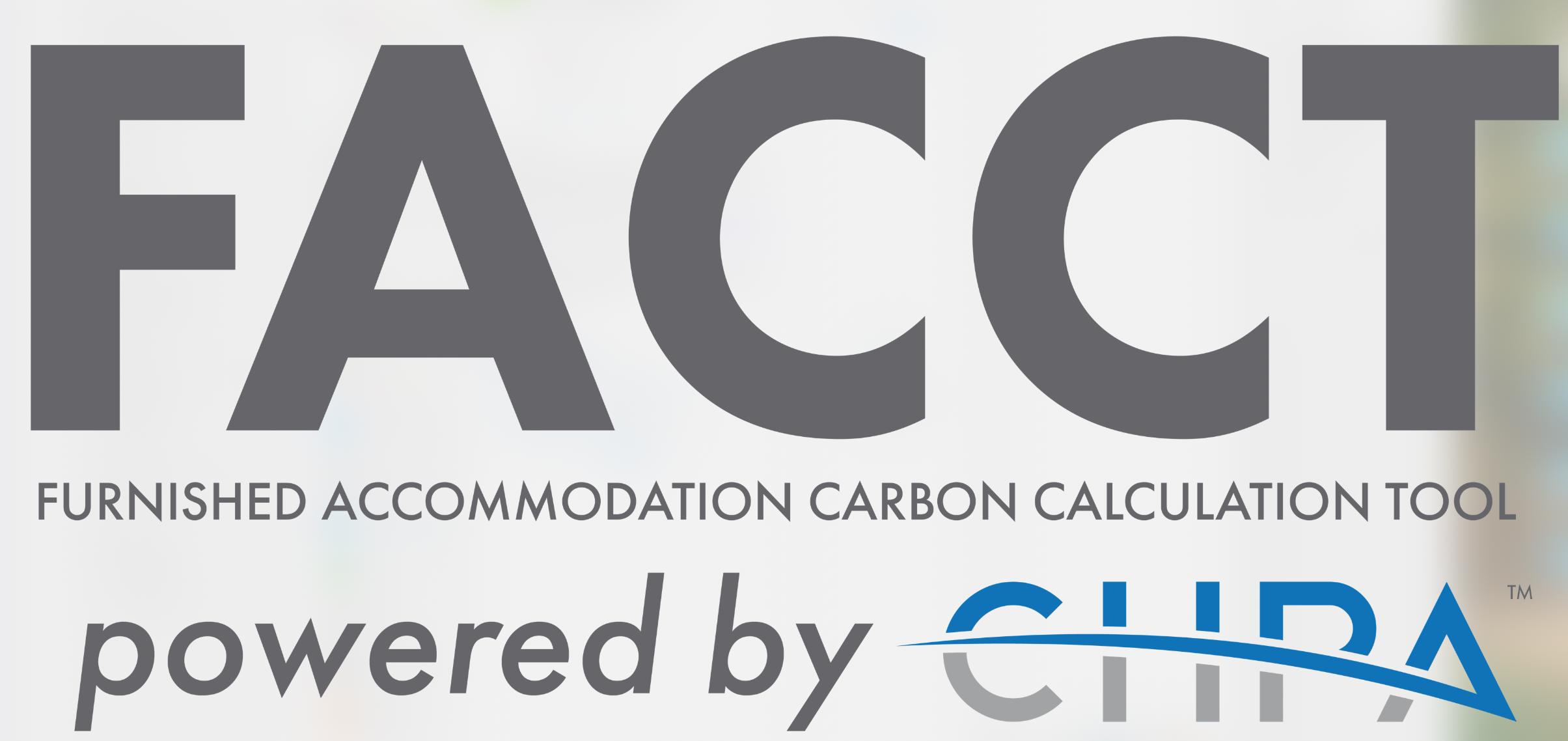

CHPA launches agnostic, unified, industry-wide carbon calculator (FACCT)
The Corporate Housing Providers Association (CHPA) has launched the Furnished Accommodations Carbon Calculation Tool (FACCT), a powerful new resource designed to help corporate housing and serviced accommodation providers accurately measure the carbon footprint of individual units. This initiative represents a significant advancement in sustainability efforts within the corporate housing profession, equipping providers and agencies alike with the data they need to drive informed decision-making and meet client sustainability expectations.
FACCT offers a standardized methodology for assessing emissions. By utilizing the tool, providers and agencies can track emissions tied to their accommodations and establish a baseline for sustainable decision-making in their units.
"The launch of the Furnished Accommodations Carbon Calculation Tool is a game-changer for our profession," said CHPA CEO Nick Estrada, CAE, CMP. "By providing an agnostic, unified, data-driven approach to emissions measurement, it gives providers and agencies a tool they may not have been able to build on their own to help them succeed.”
Attendees at CHPA’s signature event, Connect, received the first phase of implementation. To further support users in understanding and utilizing FACCT, CHPA will host a free informational webinar on April 29 at 10 a.m. ET. This session is open to anyone, regardless of CHPA membership status, and will provide an overview of the tool's features, guidance on its application and insights into how it can help meet client sustainability expectations. Registration is available at chpaonline.org/FACCTwebinar.
Developed through a collaborative effort led by CHPA’s Sustainability Workgroup, FACCT integrates insights from industry leaders and sustainability experts to ensure accuracy and relevance. It is the only calculation tool on the market using methodology backed by Greenview, a leader in hospitality carbon measurement and the creator of the hotel industry’s…
To read more click here
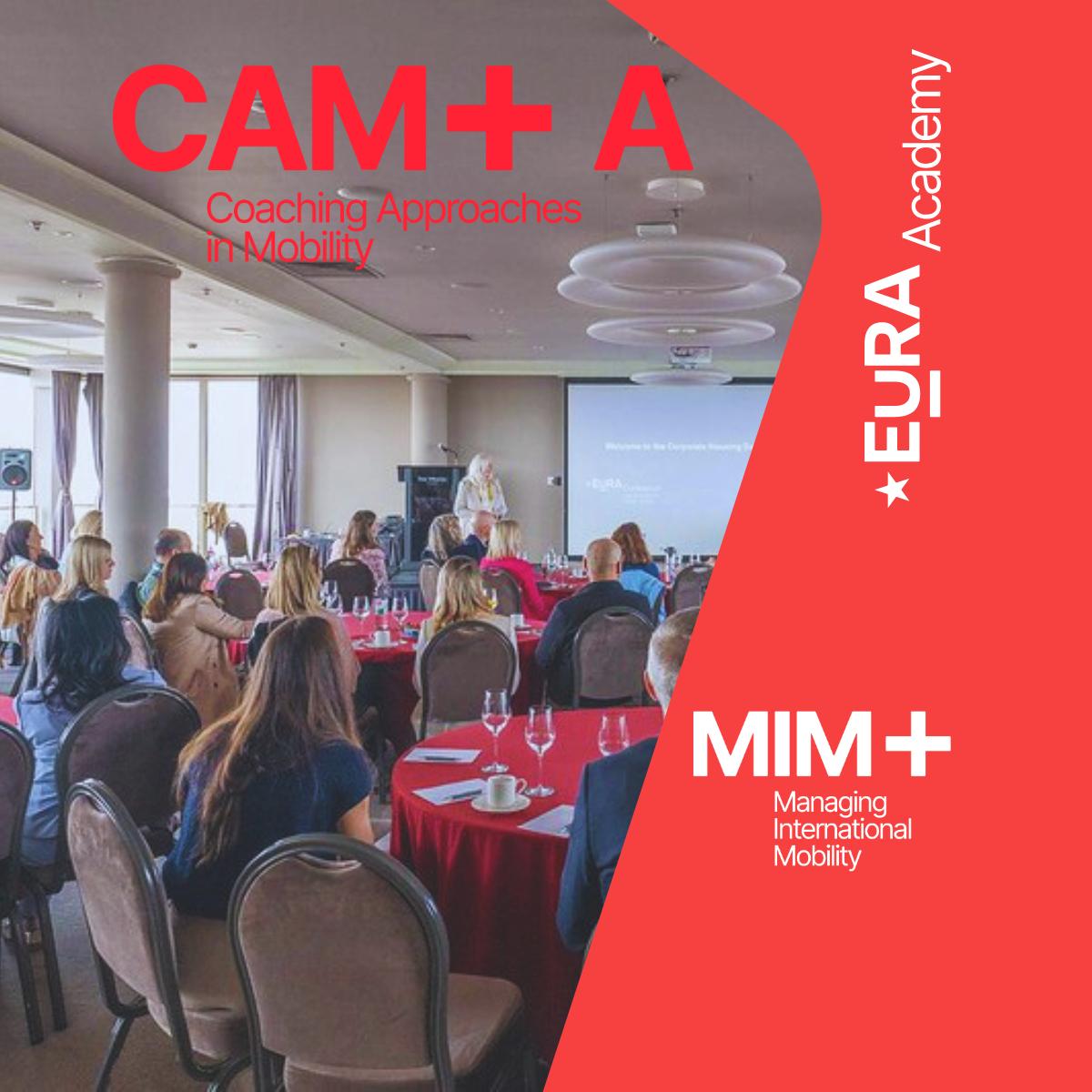

“Moving
We are living in times of uncertainty and constant change. Our team consistently reflects on what it means to be part of the journey - as individuals - as Global HR and Mobility professionals. Staying true to our values as people. Staying true to our values and operating principles as IKAN.
Moving forward is a journey; it is rarely a straight line. Sometimes, the paths we choose can seem winding and difficult. Here at Ikan, we assist our clients in making significant decisions about the right path to take, helping them settle in a way that works. For the individuals and families we support, this journey is personal, emotional, and often transformative. Whether crossing borders or embracing new opportunities, every step forward is layered with complexity and growth. We understand the new workforce is evolving. As such, overcoming mobility challenges is our driving force.
We understand the significance of these decisions and the importance of providing an exceptional mobility experience that helps them weather risks and navigate obstacles in a manner that makes their journey enjoyable and fulfilling.
We do this with an approach that combines efficiency and care. For efficient services, we do things right using three decades of mobility expertise, industry knowledge, and rigorous processes with proven quality

standards. We go beyond efficiency with care by doing the right thing and empowering our team to exceed individual needs through empathy.
At Ikan, we embrace the challenge of change, carving out an exceptional path for our clients, our transferees, our partners, and our team. This path is where expertise meets empathy We are proud to share our values:
• Efficiency: Leveraging our wealth of experience, our highly responsive team provides the most result-driven solutions that tackle even the most complex challenges, aligning with the exact nature of your journey.
• Collaboration: We collaborate with vetted partners in India and across the globe, using our vast network to co-create customised and innovative solutions.
• Care: We are truly empathetic towards clients and internal teams, fostering an environment in which we always put our best foot forward to ensure you are cared for. This sense of care also extends to developing a sustainable future for our planet.
• Resourcefulness: We stop at nothing to find creative yet workable solutions to address complex challenges and drive successful outcomes, employing every tool and resource possible for your comfort.

• Boldness: We go above and beyond in our commitment to providing a smooth journey, even if that means taking strategic risks on your behalf. Backed by years of expertise, we are not afraid to respectfully steer you away from decisions that do not work in your favour.
Our values guide individuals and organizations through the complexities of relocation, career transitions, and personal growth. Here is how each value aligns with the concept of a journey:
The journey is personal. Relocation and career change involve emotional shifts, cultural adaptation, and family transitions. IKAN approaches each move with empathy— acknowledging the stress, excitement, and uncertainty individuals feel along the way. This value ensures people are not just moved but understood.
Trust is the compass. A journey filled with unknowns demands transparency and reliability. IKAN builds trust through ethical practices, clear communication, and consistent support. Integrity ensures that each step forward is guided by honesty and respect. Excellence. Every detail shapes the experience. The journey is about more than the destination—it is about how you get there. IKAN delivers excellence by meticulously managing logistics, compliance, and cultural integration, ensuring clients feel confident and cared for throughout the transition.
Innovation. Navigating change requires new maps. No two journeys are alike. IKAN embraces innovation to create flexible, techenabled, and forward-thinking solutions. Whether it is a family relocating across continents or an executive preparing for a new assignment, IKAN adapts with agility.
Collaboration. You don’t walk alone. Moving forward is easier when you walk with partners. IKAN fosters collaboration—not just internally but also with clients, vendors, and global networks—ensuring the journey is cohesive, supportive, and unified.
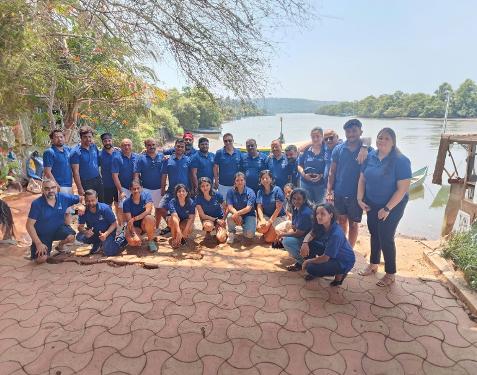

In every transition, Ikan is there—not merely to move people, but to support their journey with purpose, care, and clarity. For us, moving forward signifies more than just movement—it represents a transformative journey.
Please get in touch with us at https:// ikan.com

By Tad Zurlinden and Briony Horwood, EuRA
On the 27th April in Dubrovnik in Croatia, the Coalition for Associations in Global Mobility (CAGM) was launched, this represents the evolution of the Coalition for Greener Mobility and of course incorporates all the work that has taken place over the last few of years.
The Coalition is made up of six global mobility and relocation associations Canadian Employee Relocation Council (CERC), Corporate Housing Providers Association (CHPA), European Relocation Association (EuRA), FIDI Global Alliance, International Association of Movers (IAM), and Worldwide ERC (WERC)and is to facilitate further collaboration and engagement around major issues impacting employment-based global mobility and relocation.
The Coalition for Associations in Global Mobility is registered as a private company in the United Kingdom, and its objectives are:
• To harness the collective power of its member associations to address and seek to solve the challenges facing the global mobility and relocation industry
• To provide a structured forum for dialogue, cooperation, and collaboration on issues to amplify the individual efforts of its member associations; and
• To provide leadership and tools to its member associations in areas of mutual
interest, such as research, education, and advocacy
In addition to the six founding member organizations, the Coalition for Associations in Global Mobility will provide additional not-for-profit associations the opportunity to join as Members. Additional information on the new membership levels and how to become members will be available shortly.
The inaugural members of the CAMG Board are the CEOs of the six Association Founders.
In 2024 while still trading as the Coalition for Greener Mobility a report was commissioned with the sustainability consultancy JustOne. This is to be released shortly under the title ‘Bridging the Gap’. It will provide a practical blueprint to help the global mobility companies embed sustainability into all aspects of business to future-proof the industry.
Based on nearly 400 real-world sustainability-related RFP questions, the report offers the first-of-its-kind analysis and solutions set to help businesses move from confusion to clarity and from fragmentation to collaboration with corporate clients. The research highlights where the sector lags behind many others in progress towards sustainability, but that there is potential to quickly improve.

The research indicates a shift in 2025 from ESG as a reporting framework to sustainability as a core business strategy. As financial risks and opportunities linked to environmental and social issues become clearer, companies are moving beyond brand reputation to focus on value creation, resilience, and long-term success, despite political pushback in some regions. The report includes business predictions for the mobility sector.
“Sustainability isn’t dead—it’s evolving,” said Dave Carlos, Managing Director at JustOne. “Social and environmental issues are business issues, and the companies that embed sustainability, rather than bolt it on, are the ones best positioned for many benefits like long-term growth, resilience, and talent attraction—regardless of political or economic shifts. The industry now has the tools to move beyond complexity and make real progress that benefits people, planet, and profit.”
With practical tools including simplified RFP questions, examples of good and best practice, and guidance on how to embed sustainability without overburdening teams, the report empowers businesses of all sizes, particularly small and mid-sized suppliers, to act with confidence.
Key insights from the report:
• Suppliers face inconsistent and burdensome RFP requests
• A growing desire for impact
• Corporate demand is growing – but varies widely
• Supplier readiness is mixed
• The industry needs standardisation and support
The report also includes:
• 16 categories of RFP sustainability questions, with DEI, Energy & Carbon, and ESG Strategy Development asked most frequently
• Examples of minimum, best, and exemplar practice across ESG themes
• Engagement & Insights from 21 companies around the globe including RMCs, housing providers, and global clients
• Predictions for the future of mobility and sustainability—including the rise of valuebased sustainability strategies and the risks of ESG backtracking
The report reflects a growing industry consensus: tackling sustainability challenges is no longer about individual company performance, it’s about collective transformation.
• A shared challenge, a shared opportunity: The report outlines how suppliers, clients, and industry bodies can come together to understand challenges, streamline processes, and enable meaningful action at scale.



Gordon Kerr
EuRA Strategic Consultant Legal gordonkerr@gklegal.co.uk
In addition to running two legal workshops in Zagreb, I had the pleasure of moderating a lively session on “managing risk” at the Corporate Housing Day. The main points arising from each of these three sessions are summarised below.
I also highlight below a proposed simplification of the GDPR and fines issued for appointing “inappropriate” Data Protection Officers.
If there is a particular legal topic that you would like me to cover in a future edition of The EuRApean, please let me know.
1. Risk management (in corporate housing services)
We kicked off the session by asking the question: “What are the risks to your business that are most likely to keep you awake at night"?
Unsurprisingly, the overwhelming response from attendees was “cyberattacks”!
We then discussed the main legal aspects of risk management, including:
- A personal data disaster (accidental or criminal)
- Your supplier pays a bribe (have you taken active steps to minimise the risk of bribes being paid on your behalf?)
- Lunch with a competitor (how a friendly discussion can translate into a heavy fine under competition law!)
- Bad contract terms – avoiding obligations which could make a contract unprofitable
- The bad payer – avoiding the client/ contract that devours your cashflow
- Protecting your business from “poaching” of your key clients or your key employees
There followed a wide-ranging discussion on some of the other risk

factors encountered by our panel including:
• Coping with different national legal/ practical requirements
• Insurance on each property – extent of coverage and ensuring that policy is renewed
• Personal injury risks
• Relevant certifications
• Compliance with national/local legislation restricting short-term rentals
We ended with the following “cyber risk” case study:
“At the EuRA conference, you hear from several contacts that at least two corporate housing firms have been targeted by cyber criminals. These appear to have been well-organised ransomware attacks, with six-figure sums being demanded from the targeted firms in order to recover access to their personal data – and with the threat of personal data being published on the dark web.
You contact your office to warn them of the risk.
a. What should your firm be doing to minimise the risk of a successful cyber-attack?
• Do you hold only customer contact details or is more sensitive data held in your system, e.g. health information, bank account details etc?
• How often do you delete personal data from your system?
• How well protected is the sensitive personal data of your own employees and contractors (e.g. use of passwords, encryption and multifactor authentication)?
• Do your employees receiving regular training on data security risks (e.g. how to spot a phishing attack)?
b. If your firm was the victim of a ransomware attack, how damaging would this be to your business?
• Do you have a business continuity plan, including daily back-up of all data in your IT system?


• Do you have cyber insurance in place? Do you know what it covers?
• How much would you be prepared to pay – if anything – in order to recover your data?
• How would a ransomware attack affect your relationships with your largest clients?”

My sincere thanks to our terrific panellists (Andrew Hopgood, Raman Narula, Alex Neale and Michelle White) for their insightful contributions to this session.
a) Complying with the GDPR
Our focus was on how a relocation business can go about conducting an audit on its GDPR compliance. The starting point is to have a detailed understanding of how personal data flows in, out and within your organisation. To do this, you need to ask:
• Whose data do we process?
• What types of data?
• Any “sensitive” data?
• Where and how do we collect data?
• How do we use data?
• Why do we collect this data?
• Where do we store data? – and for how long?
• Who do we share data with? – any data sharing outside EU/UK?
• Are we clear when we are acting as Controller or as Processor?
Based on this review of your dataflows, you then check your GDPR compliance by assessing:
1. Are we meeting our legal obligations as set out in the 6 GDPR “Principles”?
2. In particular are we satisfied with the range of data security measures which we currently have in place?
3. Do our current documents (e.g. Privacy Notices, supplier contract terms, etc) meet all GDPR requirements?
Your audit is then completed by 1) identifying any compliance gaps which are revealed by the audit and 2) implementing (and documenting) the necessary changes.
We completed the session with a discussion about EuRA’s new GDPR Compliance Certificate. This is a 4step assessment carried out by EuRA:
1. The member firm completes a questionnaire which provides a complete description of all personal data which the firm collects and processes.
2. The firm provides the assessor with copies of its GDPR documents (e.g. privacy notices, data protection policy, etc) and an overview of its data security measures.
3. The firm’s compliance is measured against the 6 GDPR Principles.
4. A report is issued to the firm, identifying any compliance gaps and how to remedy these. Subject to completing any required remedial actions, the firm is issued with EuRA’s GDPR Compliance Certificate.

For more information on this new EuRA certification or on GDPR audits generally, you can contact me at the email address below.
As always, when contracts are discussed, there was an emphasis on the financial terms. The main points discussed were:
• How to achieve fair invoice payment terms
• Interest on late payments
• Can you comply easily with the client's invoicing process?
• Third party costs – who is funding?
• Pro-rata payment for any work which is cancelled
• Can client refuse payment for "late" invoices?
• Are there any penalty (or bonus) terms - e.g. a fee reduction (or addition) based on quality scores?
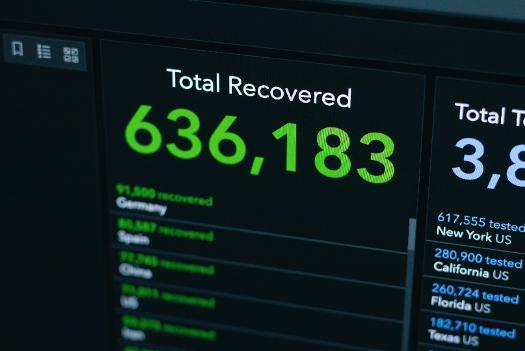

• Is the client entitled to a discount based on volume of cases?
• Protection against currency fluctuations
Once again, I would thank everyone for their active participation in these sessions and for sharing their practical experiences.
In May, the European Commission published a proposal to simplify the GDPR. The changes include a few articles, including Article 30 relating to compulsory record keeping.
Currently, under Article 30, controllers and processors must maintain a Record of Processing Activities. There is an exemption for organisations with fewer than 250 employees. However, this only applies under strict conditions, namely, that the processing is occasional, involves no sensitive data, and poses no risk to individuals. As a result, many relocation companies have to comply with the full recordkeeping requirement.
The new proposal aims to simplify GDPR compliance by making record-keeping mandatory only when the processing is likely to result in a “high risk to data subjects’ rights and freedoms”. The scope of the exemption is also being extended to cover organisations with fewer than 750 employees.

The change has not yet come into force, but this will shortly be an exemption which will be helpful to many companies.
4. Your Data Protection Officer (DPO) should not be your CEO!
Most relocation companies are not legally obliged to appoint a DPO, but


if this is a legal requirement for your organisation you need to be aware of some recent prosecutions, in several European countries, relating to “conflict of interest”.
In the latest case, Austria’s Data Protection Authority (DSB) imposed a €5,000 fine on a company for appointing its managing director as its DPO. The DSB found that the dual role created a clear risk of a conflict of interest, as there were “insufficient safeguards to ensure the DPO’s independence in fulfilling their duties”.
The company in question had provided no dedicated working hours, no separate budget and no direct reporting line to the
supervisory board – measures the authority considered essential to ensuring the DPO’s independence. This appointment was deemed a violation of Article 38 of the GDPR, which explicitly requires that the DPO’s other tasks and duties do not result in a conflict of interest.
Organisations should carefully assess whether their appointed DPO, especially those in executive or ownership roles, can truly act independently. Failure to ensure this requirement may lead to similar penalties.
If you need advice on these or any other legal issues affecting your business, please feel free to contact me.
“All Things Legal” is produced for The EuRApean by Gordon Kerr, EuRA’s Strategic Consultant -
Legal Services. Gordon can be contacted at gordonkerr@gklegal.co.uk.

By Dave Carlos JustOne.uk
The Global Mobility industry is undergoing a major transformation. Sustainability is no longer a tickbox exercise but an essential part of doing business. When fully integrated, it becomes a powerful driver of financial success.
Adapting to risks and opportunities isn’t just smart; it’s critical for businesses that want to thrive, not just survive.
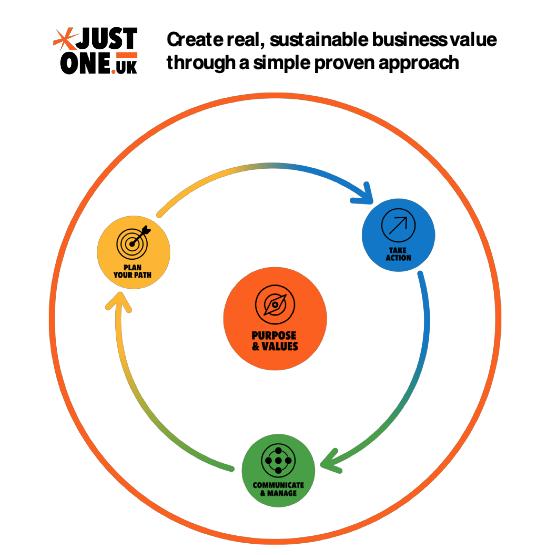
Change is constant. Recent events like pandemics, conflicts, extreme weather, and social movements, have shown how quickly prices can shift, supply chains can break, and priorities evolve.
Businesses that ride these waves of change best are those with a clear purpose and long-term, strategic goals.
Trends:
Pressure from clients, employees, and regulators is growing alongside rising business risks. Companies making real social and environmental progress are pulling ahead.
· As politics and legislation shift, businesses are moving away from bold claims and focusing on embedding sustainability into their operations and services.
It’s no longer just about meeting expectations, but building real, lasting value that future-proofs businesses. An Industry Report: Bridging the Gap, produced by the Coalition for Associations in Global Mobility and JustOne, provides a ‘state of the industry’ and a practical guide for action.
ESG demands in 2025 are increasing across the supply chain, but many suppliers face inconsistent expectations and little clarity on what good looks like. While some companies lead the way, many particularly smaller ones, are just starting out, often without the time, skills, or tools to respond effectively.
So, how does your business integrate sustainable thinking?
Plan. Take Action. Communicate. To remain competitive, win work, and cut costs, companies can follow the detailed guidance in the report.
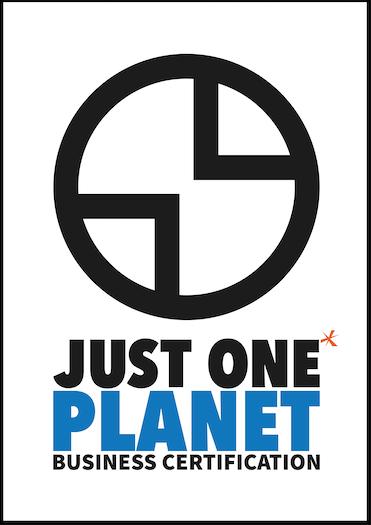
1. Know what ESG issues to tackle; don’t guess: every business is different. Start with a simple materiality assessment.
2. Build a business-wide strategy: Make sustainability a long-term plan, not a side project. Embed it into daily operations.
3. Resource your goals properly: Begin with low-cost, high-impact actions, but plan resources in advance to stay ahead of the curve.
4. Track and share progress honestly: Review annually and communicate what’s working, what’s not, and what’s next.
5. Live your purpose and values: Go beyond words. Work with others who share your beliefs and values. This is all easier than you think, and you don’t have to do it alone.
As sustainability experts in Global Mobility, JustOne has supported household goods movers, destination service providers, and RMCs including Bristol Global Mobility and Sirva; all tailored to their operational realities, market needs, and ambitions.
JustOne exists to spark positive change by making sustainability simple, strategic, and scalable:
• Supporting is more important than selling, so oneon-one advice is free along with many resources
• Services are charged in fee tiers to support small to large businesses with special rates for EuRA members.
• For businesses just starting out, there is the JustOne Planet Business Certification and Sustainability Starter Kit; an affordable, low-barrier way to take action, demonstrate progress, and begin responding to client demands with confidence.
Sustainability shouldn’t be an added burden, but the way you do business. When integrated into everything you do it can be a differentiator, a driver of growth, and a way to build stronger, fairer systems across the global mobility sector. And you don’t have to tackle it alone. Say hello to Managing Director at Dave.Carlos@JustOne.UK and see the full range of affordable support at www.justone.uk.

By Jon Harman IN8WORK
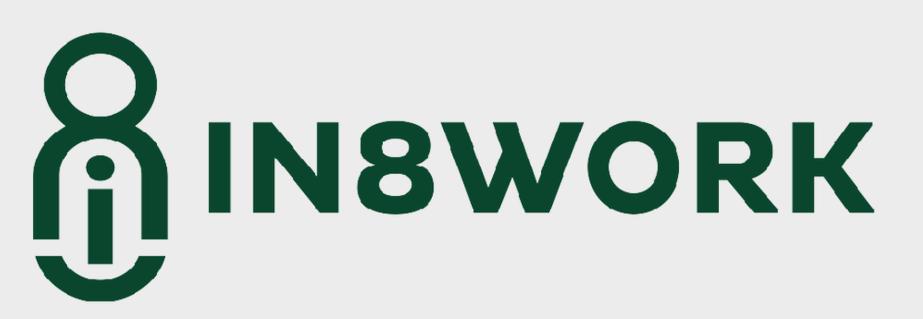
Once a fixture in the management toolbox, the annual performance review is coming under increased scrutiny. In addition to questions about the effectiveness of the practice, some leaders are concerned about its potential to damage workplace culture. My experience with reviews as both a manager and an employee has me standing firmly on the side of companies like Apple, Microsoft, GE, Netflix and Adobe, which have made the decision to move away from the practice.
GE’s presence on this is astounding. For years GE was known for a forced employee ranking system which required managers to divide their team into three categories: the top 20%, the middle 70%, and the bottom 10%. Those in the bottom group were perpetually subject to termination. The system came to be known as “rank and yank.”
GE made the shift away from reviews in 2016 because, in the words of then-CEO Jeff Immelt, they “...wanted to make the feedback process more like how we give each other advice in the real world.”
Apple’s past Chief Talent Officer, Daniel Walker, was less delicate, calling formal performance reviews “the stupidest thing American companies do.” Clearly, change is in the air.
Those advocating for performance reviews often refer to them as a “necessary evil” I find that naming things properly helps with clarity, so for clarity’s sake, definitions:
necessary (adjective) nec·es·sar·y
• required to be done, achieved, or present; needed; essential.
evil (noun) e·vil
• something that is very bad and harmful. By definition, a leader who argues that performance reviews are a necessary evil is saying, “It is essential that, at least once a year, my employees participate in a practice that is very bad and harmful.” It’s worth noting that “something that is very bad and harmful” was the most generous definition of evil that I could find. Viewed in this light, the annual review looks suspiciously like a “we’ve always done it this way” or an “everybody else is doing it so it must be good” sort of activity; one that, at the very least, merits closer examination rather than mindless continuation.
In his SCARF™ Model, David Rock uses brain research to make the case that humans are particularly attuned to potential threats in five key areas of experience: Status, Certainty, Autonomy, Relatedness and Fairness (SCARF). The key thing to know about a brain in a state of threat, be that threat real or perceived, is that cognitive resources otherwise used for creative thinking, problem solving, and social engagement are hijacked by the demands of threatening emotions. Threat inhibits performance.
Measured against the SCARF model, the standard performance review is fraught with potential sources of threat for both the employee and the manager. Being evaluated (judged) by a “superior” inherently threatens one’s Status and Autonomy. It has the potential to damage Relatedness between the reviewer

and the reviewee. It can create unCertainty in the days, or even weeks, from the time the review is scheduled until it takes place, and afterwards if the review was not a positive experience. And all of this can feel unFair to an employee who, from her perspective, shows up every day and does her level best to work toward the company’s objectives. That’s all five elements of SCARF in a cursory analysis. Not good.
Reviews can be a distracting source of threat for managers as well. Even for managers who are great communicators, the formal structure of the review, especially if it is based on a form that requires them to have the conversation according to a predetermined structure, is likely to feel forced and awkward. By its very nature, a performance review creates an unnatural interaction between a manager and a team member. It’s not hard to imagine conscientious managers, those sensitive to the pitfalls of the review process, undermining the entire exercise by starting the meeting with, “Don’t be nervous. This is just something they make me do.”
One might argue that a good manager is adept at having such difficult conversations. That’s a valid point, and it highlights the fact that a good manager would be having such conversations in real time, as issues arise, rather than waiting for a structured review setting to do so. When leaders force managers to have a performance conversation on the company’s terms, they fail to trust the manager to do his job and in doing so, undermine his Autonomy and damage his Relatedness to team members. If, on the other hand, a manager struggles with difficult conversations, then they are likely to be even more uncomfortable conducting reviews which is likely to make
the experience less productive and more painful for all involved.
A manager who needs to get better at providing feedback would be better off were they to practice doing so frequently, rather than waiting for review time to give it a try. It would also be best for them to practice offering feedback in their own voice, rather than that of the performance review form and format. Authenticity trumps formality. This kind of assertive communication is a skill, and one that can be learned and improved upon with deliberate practice.
If, as you read, you find yourself thinking that your reviews aren’t threatening because they are generally positive and encouraging, then you may want to consider if it is worth making your managers spend time on them in the first place.
The predominant argument used in favor of the performance review is that it is necessary in order to “hold people accountable” or to “drive results.” The underlying assumption is that employees, or most employees, cannot be trusted to do their best work without being compelled to do so. And yet, research shows that a lack of trust is antithetical to the types of creative, collaborative work environments that most leaders hope to foster. When I think of workers being compelled, it’s not Einstein or Edison that come to mind, but rather prisoners collecting trash at the side of the highway or teens completing their homework with a parent standing over their shoulder.
Trust is defined as a firm belief in the reliability, truth, ability, or strength of someone or something. As a leader, can you say with ready ease that you hold a firm belief in the reliability, ability, and strength of your team? A leader unable to answer with a quick

and confident “yes” would do well to pause and look inward rather than endeavoring to explain the shortcomings of her team. Imagine coaching a basketball team but all the while not believing in your players. How effective would you be as a coach? Being aware of a team member’s weaknesses, or areas for improvement, is vastly different than not believing in them. If we trust those on our team, and if we are committed to their professional development, then a structured performance review is bound to feel unnatural and foreign to the way we typically relate to them.
Operating from a lack of trust, or belief, can be costly in ways that are less obvious, but more insidious. In a series of articles and talks, the technology consultant Jerry Michalski makes a powerful case for starting from a position of trust. He points out that we tend to design systems (procedures, processes, and products, for example) with bad actors in mind, and in doing so we build in protections that make those systems less convenient and less efficient for everyone.
The rub is that there just aren’t that many bad actors. And so, Michalski argues, in our effort to protect ourselves from the very few, we end up making things harder for the many. Starting from trust frees us to consider approaches that are more efficient and user-friendly. We can then deal with bad actors when, or if, they appear. Trust is the grease that keeps the gears of a business turning smoothly. When we operate without it, things bog down.
In starting with trust, a manager operates from the foundational belief that her team members are well-intentioned and teachable. Her role, then, is to consistently engage with them, offering feedback and encouragement in real time. She can deal with those who don’t fit as the exceptions they are, rather than requiring
the entire team to participate in the “necessary evil” of the performance review, which, cast in the light Michalski’s argument, starts to look like a costly form of insurance against hiring the wrong guy.
In addition to eroding trust and engagement, performance reviews come with built in productivity costs. Consider all of the work hours spent in preparing, scheduling, conducting, and filing the reviews. Even more time can be lost when managers, leaders or HR engage in debates about an employee’s review ratings as in, “What evidence can you offer in defense of giving Hakim a four for ‘taking initiative’?” That variety of conversation feels more akin to rating livestock at the county fair than to supporting the development of a valued team member. It is unproductive at best, and dispiriting at worst.
If you rely on reviews as a basis for merit increases, ask yourself: Are my best employees working hard for a merit increase or because it is in their nature? Pay people fairly and when the business has a great year, reward them with a bonus meant to thank them rather than to motivate them. You’ll save a lot of time on bonus and merit calculations while also enhancing the sense of fairness around the place. If you rely on reviews as documentation for terminations, certainly there is a way to document the failures of the few without needing to subject the many to a performance review.
Ending a long-standing business practice is bound to trigger some resistance, even if that resistance is only of the “we’ve always done it this way” variety. Ideally, a leader would have a better reason than tradition for keeping his company’s review practices in place. Still not sure? Maybe start with a review of your reviews.
Calculate how much time is spent in the process of preparing, scheduling, conducting,

reviewing, and storing the reviews. What is the cost of that time and what returns does the business gain for that expenditure? Consider the costs of ineffective or poorly conducted reviews against whatever benefits you believe they offer. Survey your team, ideally anonymously, and find out how they feel about reviews. Do reviews motivate them? The research on that topic is damning. Survey your managers as well. Think about the culture you are hoping to create and then ask yourself if annual performance reviews are improving it. If you decide to continue the practice, this analysis should help you to articulate the benefits of formal performance reviews to your business. If the ideas outlined here confirm an intuition that was already nagging at you, shutting down the formal review process can be liberating for you and your team. If you are looking for alternative approaches, many companies have this transition before you. Do a bit of research. Ideas for alternatives are not hard to find. Most importantly, trust your intuition and choose an approach that best aligns with your organizational values.
One of my heroes is Carl Rogers, the famed humanist psychologist. His work, while largely geared toward clinicians in his field, is rich with insights for leaders. Tens of thousands of hours of face-to-face interactions with clients led Rogers to believe that each of us has a built-in “actualizing tendency”--an innate, inborn drive to grow, learn, and make a contribution. My experience as a leader confirms Rogers’ assertion.
Thanks to LinkedIn, I can see, over and over again, where people I once had the pleasure to lead have gone on to do remarkable things. I can tell you for certain that the seeds of their future accomplishment were not planted in any
performance review. No one, especially not me, “drove” them to their achievements. When an employee’s “actualizing tendency” is met with a work environment that is supportive, encouraging and challenging, growth and development occur inherently. It’s a simple formula, but like many simple things, getting the mix right requires consistent attention and effort. The question is, do formal performance reviews add to the mix, or do they mess it up?
A 20-year industry veteran, Jon Harman is the founder of IN8WORK, a human-skills focused learning and development platform launching in 2025.
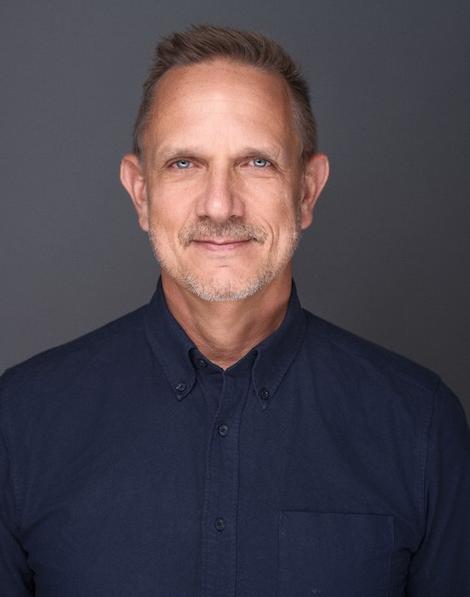


By Valentino Coletto REFRAMED
Many European retirees dream of a peaceful retirement in a country where their pension can enjoy greater purchasing power thanks to a more advantageous tax regime. The idea of "0% taxation" on private pensions is a dream for many, but it's essential to understand how this mechanism really works and which countries allow it.
The first step is to establish your tax residency in the new country. This doesn't just mean moving physically, but also fulfilling all the bureaucratic formalities to be recognized as a tax resident by the authorities of the host country and, at the same time, canceling your tax residency in the country where your pension was being taxed. The key to avoiding double taxation on your pension is the existence of a Double Taxation Convention between the country where your pension was being taxed and the country you wish to move to. These conventions are international agreements aimed at preventing the same income from being taxed twice.
For private pensions (those paid by former private employers, private pension funds, etc.), the general rule provides that they are taxable only in the state where the pensioner is tax resident.
Most public pensions, however, continue to be taxed in the state of origin, except for rare exceptions to be verified based on the Conventions between states.
Moving abroad as a retiree is an exciting project that goes well beyond just seeking advantageous pension taxation. While tax benefits are a key factor, a conscious choice requires considering several practical and personal elements that will profoundly affect your quality of life.
Here are the fundamental aspects to carefully evaluate before taking the big step:
AA lower tax rate can be nullified by a high cost of living. It's essential to analyze in detail:


• Rent or real estate purchase: How much does it cost to rent or buy a house in areas of interest to you? Prices vary enormously even within the same country. Keep in mind that to obtain tax residency in a foreign state you will necessarily have to sign a long-term rental contract or purchase a property
• Daily expenses: Evaluate the cost of groceries, public transport or fuel, utilities (electricity, water, gas, internet), clothing and consumer products
• Services: Consider the costs of hairdressers, restaurants, recreational activities, etc.
This is a fundamental point, get informed about:
• Local healthcare system: Is it public, private or mixed? How does access to care and medicines work for foreign residents?
• Costs: How much does health insurance cost?
• Quality and accessibility: Check the quality of hospital facilities, the presence of specialist doctors and the ease of reaching healthcare facilities, especially in rural areas
• Conventions: If your country of origin is EU/EEA/ Switzerland, and you move to another EU/EEA/ Switzerland country, the European Health Insurance Card (EHIC) guarantees necessary care temporarily, but for residency you will have to register with the local system. If you move outside the EU, find out about bilateral conventions or the need for private insurance

Climate can significantly influence your well-being and daily activities:
• Temperature and seasonality: Do you prefer heat all year round, a mild climate or four seasons?
• Extreme weather events: Some areas are more subject to hurricanes, earthquakes or other natural disasters
• Air and water quality: Also consider these aspects for your health
Living peacefully means feeling safe:
• Crime rate: Research reliable statistics on micro and macro-crime in areas that interest you
• Political stability: A politically stable country offers greater long-term peace of mind
• Rules and Laws: Find out about local laws, especially those relating to foreign residents
Quality of life also depends on the services you have access to:
• Distance from family and friends: Consider how important it is for you to maintain frequent contact and how easy it is to travel to and from your country of origin
Every country has its procedures:
• Residency requirements: What are the requirements to obtain a retirement or residency visa? Are there minimum income thresholds?
• Bureaucratic processes: How complex and long are the processes to obtain documents, permits, etc.?
• Residency-related constraints: How much time will you actually have to live in the foreign state to maintain tax residency?

• Transport: Evaluate the public transport network, ease of movement (even without a car) and connectivity (airports, stations)
• Internet and telephone connectivity: Essential for staying in touch with loved ones and managing your finances
• Banking services: Ease of opening an account, costs and reliability of the local banking system
• Shops and essential services: Proximity to supermarkets, pharmacies, post offices, etc.
Integration is easier if you overcome language and cultural barriers:
• Language: In most tourist places English is spoken regularly, while in rural areas much less so
• Cultural integration: Are you open to new traditions, foods, lifestyles? Consider the presence of expat communities if you prefer a more gradual integration
•Possible requirements for access to special Status: Some states impose economic requirements for access to a special Status provided by local law, for example a minimum pension income per month
•
Given the high degree of complexity and the potential consequences of a wrong choice, it is essential to consult professionals specialized in international relocation: only they will be able to analyze your specific situation, verify the latest regulations and provide you with a personalized plan for a smooth transfer.
The dream of a valued pension abroad is achievable, but requires careful planning based on correct information. The key is a clear understanding of the tax regime of the destination country and the impact of International Conventions.
Before turning to a specialized company, check what its credentials are and whether these are verifiable: International certifications such as ISO 9001:2015 are an indispensable guarantee for your personal peace of mind.
https://reframed.it

By Ira Elisa Lemmetyinen Openrelo
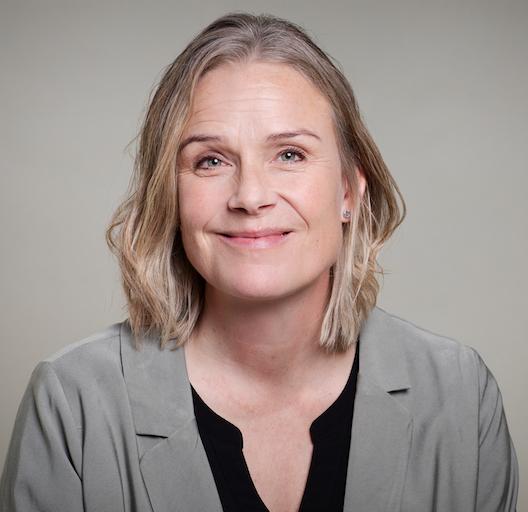

For decades, global mobility was nearly synonymous with corporate relocation. Traditionally, the typical assignee was a senior executive
sent abroad under a clear employer mandate, supported by a structured relocation package and coordinated services. But this is changing. Today, mobility no longer belongs solely to corporations. It is increasingly driven by individuals: skilled professionals, entrepreneurs, post-graduate students, and digital nomads choosing to move countries in search of opportunity, lifestyle, or both.
This shift brings new expectations, new behaviors, and ultimately, new needs. And few countries illustrate this transition better than Spain.
Spain has long been a favorite for its quality of life, climate, and culture. But in recent years, it has also emerged as a powerful talent magnet. From fast-growing tech companies attracting skilled professionals from all corners of the world to the surge in non-EU students pursuing postgraduate education, to the growing stream of location-independent professionals leveraging digital nomad pathways, the Spanish ecosystem is becoming a hub for global talent. Crucially, this influx isn’t only corporate sponsored. Increasingly, people
relocate without traditional expat packages, but with high expectations for support, integration, and belonging.
For our industry, this evolution represents both a challenge and an opportunity.
These new profiles may not have a corporate HR team guiding them, but their need for clarity, guidance and local knowledge remains high. Their journeys are often more autonomous, but also more vulnerable to friction. As providers of relocation and destination services, we are uniquely positioned to ease this path. But it will require adaptation: service models that are more modular, digitally supported, and inclusive of new mobility drivers. This new generation of mobile talent brings with it a consumer mindset — expecting flexibility, transparency, and personalized support.

In Spain, we see this shift playing out daily. As a relocation destination, it is no longer defined solely by corporate assignments. The future is more fragmented, more diverse—and potentially, more scalable. Embracing this new landscape allows us not only to meet the evolving needs of clients, but to reimagine the value we can offer as partners in the human journey of relocation.
Mobility is evolving fast, and our industry must evolve with it. Spain might just be one of the places where this new chapter begins. Are you seeing the shift in your market too?

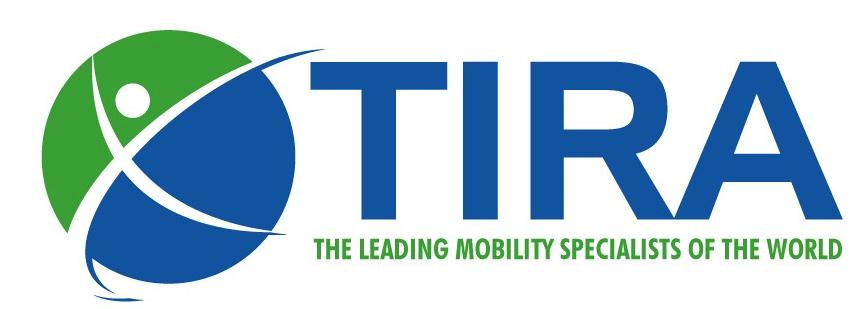
By Susan Ginsberg TIRA Partner & Founder, SRG Advisory
As is the annual tradition, The International Relocation Associates (TIRA) hosted TIRA Day during the EURA Congress in Zagreb. The daylong event included an overview of accomplishments during the past 12 months, as well as the creation of a new Board of Directors. TIRA’s Board of Directors includes:
· Deborah Loones, Chair and Founder/Managing Director of Relocation Belgium
Karen Cygal, Vice Chair and Director of Finance and Sustainability, and CEO/Owner of Global IQ
Brenda Levis, Director of Events and President of NYC and New England Navigator
Sylvie Schmit, Director of Membership and Managing Director of European Relocation Services
· María Paz Cárdenas, Director of Marketing and Partner/CEO of ContactoChile
Christine Martin, Past Chairperson and CEO of EO Mobility Consultancy
· Rohit Kumar, Board Member at Large and CoFounder/Co-Owner of IKAN Talent Mobility
Deborah shared her vision and goals as TIRA Chair. “My focus for the coming year is to grow TIRA by attracting the right members—those outstanding organizations who deliver high-quality services in one or two countries that offer a broad range of support for international transferees.”
She emphasized the importance of adding value to TIRA members so that “despite current global events and nationalism, businesspeople are still able to connect with our valued peers around the world— both personally and professionally - we can understand and trust each other, even though our political leaders do not, at this time. Moreover, we need to demonstrate our agility and can reinvent ourselves and make smart, strategic adjustments to meet the moment.”
As TIRA’s Vice Chair, Karen commented that, “I am honored to serve as Vice Chair and Director of Finance and Sustainability for TIRA. As one of the
first global associates, it is incredibly rewarding to collaborate with and learn from such a dedicated network of partners that deliver meaningful solutions for our clients. I am especially excited to continue advancing our collective sustainability journey alongside our members.”
We were delighted to include Becky Woods, GPHR, SHRM-SCP, Sr. Director at ADP, as our corporate guest speaker. Becky shared useful insights with members from the corporate perspective during these uncertain and challenging times.
She emphasized the importance of service providers leveraging technology and other innovations to enhance cost efficiencies and elevate the transferee experience. This includes creating tiered pricing to meet varied price points and shifting talent mobility priorities.
Furthermore, Becky spoke about aligning with your corporate client: getting to know their company culture, priorities, ESG mission, and communication style.
Becky concluded her discussion, sharing that “Partnerships with the stakeholders in the Global Mobility ecosystem are the key to managing a successful program.”
Deborah is proud to stand on the shoulders of TIRA’s past Chairpersons, Jeremy Berthoux, President of Home Conseil Relocation, Christine Martin, CEO of EO Mobility Consultancy, and Brenda Levis, President of NYC Navigator.
She and the Board of Directors will continue to share valuable market information, foster their partnership and healthy debate, refer business to each other, exchange best practices, and speak openly about challenges.
We are optimistic about the year ahead! To learn more about TIRA and consider membership, please contact us

Convera - Supplier Members UK
Revo Munchen - Supplier Members Germany
Corporate Living - Supplier Members USA
REFRAMED S.r.l - Supplier Members Italy


De Peri Relocation Services - Full Members Switzerland
Residence Relocation Kft. - Full Members Hungary
Mifsud & Mifsud Advocates - Supplier Members Malta
The Relocation Company International - Associate Members France
OpenRelo - Associate Members - Spain
Members Who Have Left
ReloTracker
Dwellers Delight Luxury Stay
Schweizer Relocation GmbH
Amueblarent
Audrey Caroline Chesneau Madrid Expat Service
Swiss Prime International
Livinc
Seven Stars Moving and Relocations




CERC 2025 Annual Conference, Calgary 14-16 September

Asia Talent Alliance Mobility Conference, Singapore 24-25 September
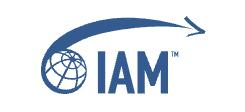
IAM 63rd Annual Meeting & Expo, New York 24-27 October



Global Workforce Symposium, Salt Lake City 28-31 October
USA Reception Wednesday 29 October
ARP Conference & Awards Gala, Southampton 20 November



ARP Christmas Lunch, London 5 December
CHPA Connect26, 16-18 February Austin
International Relocation Congress 2026, 27-30 April
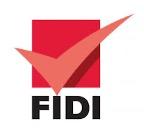
Conference 2026, 10-13 May Osaka
Number of Maltese citizens living in Malta





19 Degrees Average temperature in Malta in April (Chilly in the evening bring a sweater!) 8/9 8th September bookings online for Premium Members
10 & 9
22nd September bookings online 552,747
4
Maximum number of delegates per member company


10th smallest country, 9th most densely populated 22/9




359
Churches in Malta




Wattisfield
IP22
+44 1379
www.eura-relocation.com
Contributions on all aspects of mobility are welcomed for publication in the EuRApean. If you are a member of EuRA and would like to contribute news about your company please get in touch. Please contact Dominic Tidey, Managing Editor dominic@eurarelocation.com or Maria Manly, Editorial Consultant maria@eura-relocation.com
Disclaimer:
Opinions expressed in the EuRApean are not necessarily those of the publisher unless otherwise stated.
I love being at the EuRA Conference! Seeing so many old friends and meeting so many new ones is always one of the highlights of my year, but I was never more glad for a conference theme focussed on well-being. I missed Frances a lot this year, she is a rock and a rockstar but thanks to Ben Jones’ excellent, moving and heartfelt opening, the theme for the conference was set. I too am a catastrophiser of European Championship levels. We arrived in Zagreb straight from the Fidi Conference in Dubrovnik. Fidi has a very similar feel to EuRA. It too is a huge family and the atmosphere is one of camaraderie and friendship. Held in a beautiful seaside location, in a huge hotel with sunshine, arriving in rainy Zagreb to a much smaller venue? Well I lost a lot of sleep those first few days of prep.

But our members are amazing and had read about the change of venue, the smaller than optimal hotel and were as resilient as always. There were a lot of standing meetings! Had there been a chiropodist locally I am sue they would have had a lot of work!
Our venue coped admirably and the kindness shown by the team was wonderful. One of delegates had a fall and the conference organiser drove her to the local clinic where she had an MRI within 30 minutes of arriving.
Small things that happen behind the scenes. Some of them we can control, some of them we cannot. A delegate I know well was not happy about the lunch on day one and we asked the F&B manager if changes could be made for the following day and it was done. Our delegate was very happy and that was not an inconsequential change to make!

So now we gat back to normal work until we start the prep for Malta 2026. For those of you who were not with us at the Malta Hilton in 2016, we arrived during the last 5 days of a total renovation of the property which had been closed for 6 months. Every member of the team was lifting new furniture, cleaning, dusting, prepping, arranging. We saw the amount of work that takes place behind the scenes first hand. 24 hours before we started to welcome guests, the hotel opened on time, in front of the national press and TV and our first guest, Bob Rosing of our very loyal sponsors Dwellworks was not able to check in as everyone was outside for a photo call! The work that goes into an event of this scale is unrelenting and even though I’m tired after the week, I think of how the team feel and relax a bit!
Dom Tidey Managing Editor

Another EuRA Conference has come and gone and I hope that our delegates got a lot from the event. We try our very best to deliver a conference that meets delegates needs across a huge spectrum of diversity among the members. The results of the survey are in and you can read some of the good, the bad and the constructive things delegates told us later in this edition. What is fascinating every year to myself the team and the Executive Group is how opinions can differ! We received an excellent overall score which means that since we started measuring it, we have again hit our KPI for overall satisfaction so thank you to everyone who took the time to fill out the questionnaire.
It was a challenging conference to host this year for all the reasons you all know about; the smaller venue, the last minute change, the weather! But the team and I were so pleased to see so many people attending sessions in record numbers. This tells us two things. Firstly the theme and conference sessions hit the right mark this year and we had many comments about how apposite a conference based around well being was at this strange time.
Secondly it tells us how successful the submissions that were chosen were and thank you to everyone who put their names forward to work on panels and especially our moderators and speakers who delivered a great programme.
I also wonder if a smaller venue makes its easier for people to connect more quickly and therefore maybe delegates have more time, or if we have all learned that burn out is real and that taking time from an insane agenda of back to back meetings helps us to get more out of doing less.
As a case in point, Dom and I recently attended the International Meetings Expo (Imex) in Frankfurt. We’ve not been since 2019 and were
invited this year to attend as “hosted buyer” as we have organised a big event or two. Being a hosted buyer at Imex means the organisers pay for accommodation and flights to the show. But the price to be paid is to schedule a minimum of 8-10 meetings a day across three days and attend evening events and receptions. In theory this all sounds great but as the meeting invites start to come in it becomes apparent that the relevant of 80% of the meetings is highly questionable. Do we need to see a presentation on the new JW Marriott in Abu Dhabi when we will never use it? So instead, we stay just one night in an AirBnB, fly with Ryanair and target exactly who we need to see. In that one day we found six new excellent potential hotels in Europe, three great event venues, a DMC in India and strengthened existing relationships. And didn’t come back broken!
So now we look at the work to be done for the next 12 months. First on the agenda for the last Executive Group (EG) meeting in Malta was to examine the feed back from Zagreb. Second was the programme for the 2026 conference which is coming together nicely.
Deadline: 22nd September - The bookings will open, sponsor opportunities will be released and the call for speakers will go out! Premium Members will have the opportunity to book from September 8th. Please book early! The Zagreb conference was sold out by midOctober. However we have a much larger venue so we only to cap to the same numbers as Vilamoura which is 800 delegates. However Vilamoura was fully sold by the start of November so please check with you fellow colleagues whether they have booked!


At our last EG meeting we said some hellos and goodbyes. We welcomed our two new EG Members Dana Pick of Eres and Ivona Demackova of Pro Relocation. Thank you for standing and for the contributions you will bring.
We also said a very fond farewell to past President Sophie Rehberg. Sophie has brought so much to the work of the EG with her creativity. She has also developed a road map for how meetings should be most successfully run so we get the most from the time we have. Thank you Sophie for all you have done for EuRA and you will be very much missed.
We also bid farewell to Isabelle Premont who ended her term in office. Isabelle has been a creative powerhouse within the board moving EuRA forward with her extensive mobility knowledge an skills. We will all miss her very much.
Over the next year I am looking forward to many new projects but I am passionate about collaboration within our wider industry for the good of all providers. The Association for Collaboration in Global Mobility goes from strength to strength and I will keep you up to date with our work!
As you all know we have a zero tolerance approach to non-registered delegates being in the conference spaces. The zero tolerance approach becomes even more strict if we identify unregistered non-members in conference sessions as we did very regrettably did in Zagreb. Please check the app before taking a meeting with someone. If they are not listed, they are not registered. If they are not registered they have not paid. You have. In money and time.




Thank You, Zagreb – Hello, Malta!
To all our incredible EuRA members,
From the bottom of our hearts, thank you for joining us in Zagreb for this year’s conference. As always, you are the ones who create the unique, magical atmosphere that sets EuRA apart — something that simply can’t be replicated at any other event in our industry. The warmth, openness, and energy you bring make this community so special, and we are truly grateful. One of the highlights of this year’s event was the focus on mental health. As service-minded professionals, we’re often the ones who take care of everyone else — clients, colleagues, teams — and we
Johanna Lennartson - Managing Director Nimmersion AB
Simon Robins - Business Development Director TTH Curzon
do so with pride. But it’s just as important to remember to take care of ourselves. The support available in Zagreb, and the conversations it sparked, reminded us that we are not alone in the challenges we face. That’s the kind of strength we want to continue fostering within EuRA.
We are both incredibly honoured to serve as your President and Vice President for the coming year. Our journey has already begun — we have just been in Malta, hard at work preparing for next year’s conference. The location is stunning, and we can’t wait to welcome you all again, this time surrounded by the Mediterranean spirit of connection and renewal. We're both very keen to incorporate as many of your
suggestions as possible for the conference in Malta. Your feedback reflects where our industry stands today, especially with the ongoing geopolitical and economic pressures. These insights are vital as we plan relevant, forward-thinking sessions. We warmly encourage you to reach out with additional topic ideas, and we invite you to apply as a speaker or moderator once the call for participation opens. Your voices shape the conference and the future of our industry.
Here’s to a year of collaboration, community, and continued growth — both professionally and personally.
With warmest regards, Simon Robins & Johanna Lennartson


Our brilliant mentors will help you to schedule your timeline. Help you to start, set deadlines for completion of the chapters of your Quality Manual.
When broken into sections, and supported by the mentors, it’s not nearly as daunting as it may seem! And don’t forget 80+ EuRA Members have done it!
There is no charge!





Martina Scharwey our Strategic Consultant and Project Manager has developed a step by step training programme.
Follow her training and your Quality Manual writes itself! Well not entirely you still have to make sure it’s accurate to your business!
There is no charge!

Members with the Seal work preferentially with other Seal holders when giving outbound work. They know they can reassure their clients of an independently verified benchmark of service delivery.




All EuRA Members holding the Seal become Premium Members.
This gives access to highly discounted training licences, early booking for events and specific events for Premium Members only.
We are also looking at delivering extra conference sessions just for Premium Members.



Over and again successfully qualified members have told us what a difference the Seal makes to the whole team. Everyone knows what their doing and what their benchmarks are for successfully delivering the best services.



At any time during the certification or recertification process, you can rely on the EuRA team for support.
Contact Dom Tidey if you have any questions, if he doesn’t know the answer he will reach out to Martina and our auditors to make sure you have the support that you need.
There is no charge!
Congratulations to our newly certified and re-certified EuRA Global Quality Seal Members
Newly Certified
r2n - Relocate to Norway - Apr-25
Newly Recertified
Relocation Services Strohmayer - Apr-25
Inter Relocation Group - May-25
Eurohome Relocation Services - May-25
Professional Organizing - Mar-25
There is a full module in the EuRA Academy
Free to all members. This module of five components covers everything you need to know about setting up a process management system. You'll learn how to build your Quality Manual and how to implement all the required policies to ensure you're completely compliant for the future. Following these three (free to EuRA Members) modules will simplify the process, led by a true expert in quality management.
When we asked members earlier this year, 65% said they wanted to undertake the process but 70% said the main barrier to undergoing certification was lack of internal resources and time. We have just implemented a Mentoring programme to help members get started and stay on track. In 2025 we will be developing live clinics with certified members and our SC

Martina Scharwey as well as peer to peer help on LinkedIn. If you haver an idea that would help you to get started please let us know, we want to give members as much assistance as possible to join the ranks of our Premium Members.

To access the full training module, click here.
To learn more about becoming a Premium Member and our Mentoring programme, click here.


“Because looking after our mental health, just like our physical health is a work in progress. We can’t spend a year in the gym, eating well, and think we will stay in the same shape for the next 10 years right?
Shortly after I got back from last year’s conference, I was thrown another challenge in my personal life that I would have to navigate, not just for myself, but for my children as well. It was time for me to practice what I preach. Easy right? Or did I find myself slipping back into my old ways? I was reverting to type, I was ‘getting on with it’ I was ‘OK’ again.
Sometimes it is easier to encourage others to do something rather than doing it ourselves, how often have you heard someone say they have been feeling unwell, and we immediately encourage them to see a doctor, and how often do we feel unwell and convince ourselves that there is no doctor required?!
Then somebody who is in this room now, said to me, when I told him I was ok, recognised that I wasn’t and said… “Ben, you need to start taking your own advice” he was right, and I did.”
Ben Jones, Opening Address Vilamoura 2024
Our 2025 conference was devoted to well-being and Ben summed things up so brilliantly in his opening remarks. As Frances Edmonds also said in hers, physical illness is tangible. It is diagnosed, accepted and we talk about it. Our mental
well-being is a very different subject. Yes over the past years the stigma around mental health has been greatly reduced, but because of its intangible nature, it’s more difficult to both acknowledge and confront.
The themes of well-being that were discussed throughout the conference brought some very positive feedback. It’s always difficult to choose a conference theme and when the board and team sat together to discuss the theme for Zagreb times were quite different. There was much more positivity in the air, we had no concerns about tariffs and changes to global trade and stability.
By the time we got to Zagreb things were very different for our industry and a lot of the feedback that we got referenced how good it was to have sessions based on us as people rather than as representatives of the global mobility industry. However we did get some feedback that the event should be focussed around industry issues and one of the conversations we had at our last board meeting in Malta was how to keep the programme more relevant when change is happening so rapidly.
Our moderators and speakers did a great job and we got very positive feedback on the sessions. The workshop format went down very well and we will be keeping that for Malta 2026. Having the Corporate Housing Day was much appreciated by that sector and we are doing more to provide more sessions that represent our wider global mobility industry but the main theme and focus for next year will be on the mobility supply chain and resilience
in time of global and political uncertainty.
We were incredibly happy to receive such positive comments about our venue the Sheraton Zagreb. We did as much a possible to alleviate the issues we faced by using a smaller venue and quite a few responses mentioned how much easier it was to meet people. However we have taken a decision to source venues that can comfortable accommodate our very big group but at the same time capping the numbers at the level they were in Vilamoura which was 800. Finding such venues in Europe is a huge challenge but we are working on it.
Quiet a few people noted that the App was down quite frequently and we have addressed this with our supplier who had network issues and have offered a discount for next year.
Our external venues did a great job with our big group but it’s so interesting that every year we get a split between people who loved the party and gala and those who did not. One decision we have made is that the Gala will be a Gala Dinner, more formal and we are seeking venues that reflect this. Our Malta venue is outstanding and it will be a black tie event. The party night will remain just that, a casual dinner and disco.
Thanks to everyone who joined us in Zagreb and everyone who took the time to fill out the survey. We had a response rate of 35% which is actually very good for a survey and gives us very usable data for planning your future EuRA Conferences.


We will be holding a “Zagreb Feedback and Get Ready for Malta 2026” Briefing on 2nd September


Thank you to the 700 members and friends who joined us in Zagreb for this year’s conference. Looking forward to Malta 2026!
























By Manon Dumas ARIANNE Relocation Canada, Dana Pick Eres Relocation, Tracy Stuart Kautzmann IMPACT Group, Daniel Drenger Ocean Group


At a recent panel on Dealing with Adversity, four relocation industry leaders shared deeply personal stories of crisis and recovery. Their experiences, ranging from betrayal and injury to national trauma and bureaucratic injustice, offered rare insight into the human side of leadership, and the quiet power of resilience.
heard just weeks before the accident helped reframe her experience: “We are a house with many rooms. And this accident—it’s now one room of my life.” At first, she found herself sitting in that room often. But over time, she noticed she could walk past it, glance in, and keep going. “It’s always part of the house, but it’s not the whole house,” she explained.


For Daniel Drenger, VP at Ocean Group, adversity came on October 7, 2023, with the violent attacks in Israel. Personal safety, professional responsibility, and national trauma collided. “We had no time to pause,” he said. Clients fled, chaos reigned, and his team was forced to act with no playbook. Through fear, they led with empathy, supporting expatriates who had lost everything. “We acted through fear, not by ignoring it,” he explained, noting that trauma still lingers. But he chose to lead anyway.
Moderator Dana Pick, Country Managing Partner at Eres Relocation Czech Republic, opened the session with a story of betrayal. In 2022, two trusted managers left her company and, for two years, actively worked to destroy everything they could from the outside. “I didn’t get the knife in my back. I got it in my heart - with a twist,” she shared. The emotional toll nearly ended her business. But with support from those closest to her, she renewed her trust in herself and chose to rise up and rebuild. Two years later, her success led Eres Relocation to acquire her company, ReloCare. “Vulnerability became my strength,” she said.
Panelist Tracy Stuart Kautzmann, Director at IMPACT Group, recounted the trauma of being struck by a competitor during an Ironman triathlon. The impact ended her race and upended her life. Confined to a couch for eight weeks, she was forced to surrender control and lean on others. “There’s theory, and then there’s the reality of grief,” she said. A metaphor she’d
Manon Dumas, founder of ARIANNE Relocation Canada, shared the toll of a prolonged, aggressive tax audit. What began as routine spiraled into intimidation, unjustified demands, and eventually a $400,000 tax bill. The stress triggered a panic attack and threatened her wellbeing. Ultimately, she chose to stop fighting, not out of defeat, but in protection of her health, family, and future. “We decided to cut our losses,” she said. Her story underscored the courage it takes to walk away from injustice in order to preserve what truly matters.
These stories weren’t about relocation logistics, but they revealed something more important: the human reality behind every business decision. In an industry built around transition, these leaders reminded us that resilience isn’t about being unbreakable, it’s about choosing to keep going, even when broken.
Adversity is part of life. But in how we meet it, with honesty, strength, and empathy, we define who we are. And in doing so, we deepen our capacity to serve others with compassion and authenticity.
Links to the YouTube uploads of all recorded sessions are on P28


The Immigration workshop in Zagreb started with a panel titled "Navigating Change in Immigration", moderated by Ben Sookia of Centuro Global. The session brought together experts from across the globe to share insights on how immigration laws and policies are evolving in response to political, economic, and demographic pressures.
The conversation began with Bobbie Bartle from Aires, who shared a timely update on the U.S. immigration landscape following the introduction of the new U.S. administration in January 2025. While initial government efforts have largely focused on controlling unlawful immigration and tightening border security, Bobbie noted that there are already crossover effects impacting corporate mobility. These include increased scrutiny at consular interviews and ports of entry, as well as longer wait times overall. Additionally, the administration’s evolving stance on trade and tariffs could have indirect consequences on visa processing in the months to come.
From Eastern Europe, Natasa Tasic of Intermark relocation provided an overview of positive reforms in countries like Serbia and Croatia, where immigration systems are being streamlined to support workforce mobility. She highlighted the increasing impact of digitization and regional agreements such as the Open Balkan initiative, which aim to make immigration procedures more flexible and business-friendly. These changes reflect a broader shift in the region toward pragmatic policies that address labor shortages and economic development.
Turning to Germany, Ben Gebel from visumPOINT acknowledged that while the new government has not introduced major changes to skilled migration policies, the focus has clearly shifted toward tighter control of irregular migration. He emphasized that although digitalization of immigration processes is underway, progress remains slow and inconsistent. Meanwhile, bilateral agreements with countries like Brazil and India— intended to attract more foreign talent—have yet to yield the expected results, underlining the need for a stronger policy turnaround to meet the growing talent gap.
By Johanna Lennartson Nimmersion AB
Mahrukh Umrigar from Consortia Legal offered a rich update on developments in India, describing the country as being in a “boom phase” when it comes to immigration. India is actively seeking to attract foreign nationals through tourism, business, and skilled visa routes, supported by a growing number of e-visa options. She highlighted the recent passing of the Immigration and Foreigners Act, 2025, which introduces new national security measures, stricter penalties, and clearer visa regulations. India also continues to sign bilateral migration and mobility agreements with countries like the UK, Germany, Italy, and Australia, aiming to facilitate legitimate migration while jointly combating illegal immigration.
Across all regions represented, several common threads emerged: the increasing use of digital tools, the political drivers shaping immigration policy, and the urgent need to balance security with business needs. While each country faces unique challenges, the global direction seems clear—immigration systems are becoming more complex, but also more strategically significant for economic growth.
Following the panel, the conversation continued in a workshop session, where attendees discussed recent immigration changes in their own countries and exchanged experiences on shared trends and challenges in an evolving global landscape.
Links to the YouTube uploads of all recorded sessions are on P28



By Dominique Coenen Expat Management Group
The recent EuRA Immigration Workshop in Zagreb hosted a crucial discussion on Immigration Compliance – Why It Matters & The Risks of Falling Short. The panel provided essential insights into the complex realities of compliance, moving beyond theoretical rules to practical challenges and future trends.
Our session began by addressing the often-blurry lines of accountability. While legal responsibility for compliance rests with employers, the expectation often falls upon immigration providers. This disconnect can create significant risk.
Ana Bose from ADBH Advisory Limited (UK) highlighted how thousands of sponsor licenses are revoked due to issues like mishandled right-to-work checks. She emphasized that providers must maintain an advisory, not executive, role. Rahul Batra from Hudson McKenzie (Middle East) detailed a rapidly tightening compliance landscape where enforcement intensifies, often without formal announcements. His firm meticulously documents advice to manage liability. Charina Garcia from WR Global Immigration (US) noted a strong shift towards ongoing compliance driven by increased audits, with clients now seeking strategic guidance, not just visa issuance.

The discussion then moved to the tangible risks and impacts of compliance failures, extending beyond fines to reputational damage and operational disruption. Rahul illustrated the unpredictability in the Gulf, where sudden bans and restrictions emerge without notice, leading to high work permit refusal rates and limited appeals. Charina described heightened awareness in the US, where clients' anxiety drives over-preparation. Her firm uses mock audit videos and 24/7 document portals to manage this. Ana reiterated common UK pitfalls, like incorrect assumptions about outsourcing sponsor duties, underscoring that compliance continues long after a visa is issued.
Bringing a crucial European perspective, moderator Dominique Coenen from Expat Management Group shed light on the unique complexities in Western Europe. Issues like fragmented rules, overwhelming regulations, and politically-driven border checks create significant challenges for international employers. We highlighted the

demanding reality for companies navigating a labyrinth of exceptions and limited alignment among EU member states.
The discussion culminated in an exploration of technology's transformative role in compliance. Governments globally are increasingly adopting digital systems, AI-driven enforcement, and sophisticated crossborder data sharing, promising faster processes but leaving less room for error.
In the UK, Ana explained how immigration systems are rapidly digitizing, shifting towards digital permits. While clients anticipate simplicity, underlying complexity and growing interagency data-sharing pose risks. Charina showcased how her US firm leverages in-house technology, AI, and biometric scans for proactive, datadriven strategic advice. In the UAE and Saudi Arabia, Rahul highlighted advancements in digital infrastructure. Yet, with limited transparency, past compliance issues are increasingly traceable across borders.
Dominique Coenen further elaborated on the Western European technology landscape, noting that while major EU projects face delays, real-time enforcement is escalating at borders. Companies grapple with complex national and EU obligations under a self-regulatory model, but as digital
systems become more trackable and interconnected, grey areas are disappearing, demanding new preparedness.
The overarching takeaway was clear: compliance is no longer a mere administrative task. As governments shift more responsibility to employers without clarifying regulations, the risk of non-compliance extends to operational and reputational damage.
The panel concurred that the value of immigration providers is fundamentally shifting. If technology automates basic permit issuance, our true expertise lies in perspective and strategic guidance. This involves proactively identifying compliance risks, assisting clients in navigating increasingly fragmented and automated systems, and connecting critical information—especially when regulations are intricate or unwritten. Our role is evolving from process enablers to indispensable strategic partners, empowering clients to achieve clarity and accountability in an everchanging global mobility landscape.
Links to the YouTube uploads of all recorded sessions are on P28

By Jo Layton CEO CAP Worldwide
Creating the opportunity for the global corporate housing community to come together for a powerful and thoughtprovoking Corporate Housing Day, held under the theme ‘What Unites Us’ became a reality at this year’s conference.
A huge thank you goes to Tad, Dom, Briony, and the entire EuRA team for providing this platform and recognising the value of shared learning and open dialogue. We also thank them for allowing us to buck the normal panel discussions, and drive the interactive sessions right through to the final session, where the association leaders closed the discussions with a leadership panel.
The goal was achieved in bringing together professionals from across the sector for a full day of education, discussion, and collaboration, focused on the most pressing and targeted topics in our industry. Our goal was always to create an interactive and inclusive experience, and with over 22 hosts leading and driving sessions throughout the day, we succeeded in making space for every voice. From relocation experts to housing providers, agents to association



leaders, we ensured that the conversation reflected a truly global and diverse industry perspective.
The day was carefully designed and curated around a “golden thread”—a thematic flow that connected each session in a purposeful way. The audience became the panel as the hosts invited engagement from the room on where the industry is today, which led naturally into our Risk Management session. Together – the room created a SWOT of our industry, where we identified our strengths and opportunities whilst highlighting the future threats for the industry to face and solve. The day included a fun Sustainability session, which led to the coming together of workgroups focusing on Social and Governance. This



structure allowed each topic to build upon the last, creating a continuous, positive and meaningful journey.
Housing Day Highlights
• Engagement – making everyone welcome
“An interactive temperature-check of our industry in a fast-moving geopolitical landscape.”
This session set the tone for the day, inviting open discussion and participation from across the room.
• Risk Management
“Operators, agents, RMCs and third parties – discussing and debating how to prepare for potential challenges and current risks in a VUCA world.” Together, we examined industry vulnerabilities and shared strategies to build greater resilience in a volatile environment.
• ESG (Environmental, Social & Governance)
“With a focus on Social and Governance, a lively, inclusive and interesting POV discussion on our common goals of cooperation, teamwork and collaboration.”
The session emphasised sustainability and accountability, spotlighting
collective responsibility and actionable steps forward.
• Associations Fireside Chat
“Setting agendas for the global stage –an insight into how association leaders are working to educate and shape a healthy future for the corporate housing industry.”
This final conversation brought the day full circle, exploring leadership, advocacy, and the shared goals that unite us.
We achieved genuine cross-sector engagement, linking key themes and encouraging honest conversations. Attendees left with fresh insights, actionable takeaways, and a renewed commitment to collaboration. The structure of the day allowed us to move fluidly from challenges to solutions, ending with a powerful reminder of our shared mission.
The final “What Unites Us” session wrapped up with optimism and unity. By weaving together risk, sustainability, governance, and leadership, we built not only a cohesive agenda—but a connected community. The day reaffirmed that while our roles may vary, our purpose is shared: to support a thriving, ethical, and forward-looking corporate housing industry.

By Manpreet Dhami-Magne Synergy Global Housing
In a pair of thought-provoking sessions— Blueprint for Supplier Success and Maintaining Success as a Global Mobility Supplier—a dynamic group of global mobility professionals came together to explore what it truly takes for suppliers to not only enter the mobility ecosystem, but to grow, evolve, and sustain longterm success.
We began with a look at the current landscape. Sean Collazos (Relolink) painted a vivid picture of the forces shaping global mobility today—rising cost pressures, accelerating digital transformation, shifting workforce expectations, and an ever-stronger call for compliance and sustainability. It’s clear that the path forward demands more agility than ever before, without

compromising on the assignee experience.
Becky Woods (ADP) offered a corporate lens on these changes, affirming their relevance to ADP’s global programme. She highlighted the increasing importance of suppliers aligning services to business objectives, driving operational efficiencies, and remaining agile in the face of ongoing change. Attention then turned to the surge in RFIs and RFPs—a reality familiar to many. Susan Farrell (RelocateU) spoke candidly about the sheer volume, time, and cost involved in participating, reminding us that responding effectively means being highly strategic and crystal clear in our propositions. Simon Scott (Altair Global) echoed this sentiment, sharing how critical innovation and transparency are to standing out—not only in documentation, but in genuine partnership intent.


But success isn’t won on procurement paperwork alone. Marie O’Neill (EER Middle East) shifted the focus to presence: how a supplier shows up through marketing, networking, and relationshipbuilding. The takeaway was

clear—your service may open the door, but your story and how you tell it is what builds trust. Rene Webster (Relocation Africa) further stressed the power of adaptability and authenticity, especially in competitive or evolving markets. The spotlight then turned back to supplier differentiation. Becky reflected on what truly makes a supplier partner-worthy in ADP’s eyes—reliability, flexibility, and the ability to elevate the mobility experience. Janice Trinidad (EER Middle East) added to this, sharing how EER builds client loyalty through service consistency and operational precision.
As we moved into the second half of the workshop, the tone shifted from entering the market to staying the course. Rene emphasised that success doesn’t end at contract signing—it begins with smooth onboarding and a commitment to continuous improvement. Janice and Susan discussed the role of open, two-way communication in sustaining supplier relationships, from regular feedback cycles to active service reviews.
accountability versus responsibility, reinforcing the idea that excellence is a shared goal—and a shared obligation. Sean wrapped up with a call for proactive service, delivery excellence, and mutual understanding.
What emerged from these sessions wasn’t just insight—it was a shared commitment to raising the bar. In an increasingly crowded marketplace, those suppliers who prioritise collaboration, innovation, and long-term thinking will be the ones who stay relevant and deliver lasting value.
Links to the YouTube uploads of all recorded sessions are on P28

Simon reminded us of the bigger picture: the assignment lifecycle. He encouraged suppliers to think beyond their own touchpoints and collaborate across the supply chain to improve the entire relocation journey. Becky then tackled the nuanced topic of


By Ben Jones Client Success Director Simply London
With the theme of this year’s conference being wellbeing, amidst a dynamic program focused on global mobility and relocation best practices, I had the privilege of hosting a workshop that shifted the spotlight inward, to our personal wellbeing, with the help of my four excellent speakers, Jane, Rhea, Freddy and Jens.


“Put Your Mask on First: A Workshop on Wellbeing,” the session invited delegates from around the world to pause, reflect, and prioritise their own mental health. In an industry built around supporting others, families navigating international transitions, employees adjusting to new roles abroad—our own needs are often sidelined. This session aimed to rebalance that equation!
The theme of wellbeing is not new, yet in the wake of recent global shifts and ongoing remote work realities, it has taken on new urgency. The workshop brought together my fabulous team of industry leaders, participants from diverse backgrounds in an interactive, supportive environment. Rather than a lecture, this was a conversation, a
space where lived experiences and practical tools were shared freely. We opened by addressing how much time we dedicate to our own wellbeing, and more importantly what stops us from dedicating the time in the first place, whether it be not knowing where to start, or a feeling of guilt that we are prioritising ourselves over others!
One of the most engaging segments, led by Jane Riley focused on rewiring the mind through the lens of NLP (Natural Language Processing). Jane introduced the power of anchors, tools and habits that help us ground ourselves in moments of stress. From sensory cues to simple routines, attendees were encouraged to identify their own positive anchors and

consider how these could be integrated into their daily lives.
Another highlight was the discussion that Rhea Narula raised around emotional wellbeing and the importance of recognising all emotions, especially the difficult ones. Rather than suppressing discomfort, we explored ways to respond to it with curiosity and care. This segued naturally into a reflection on movement and what the simple act of walking, particularly during the isolation of the pandemic, taught us about resilience, presence, and recovery.
Jens Petersen shared his own heartfelt journey about his own mental wellbeing, and how the power of movement helped shape his mind for the better, when he embarked on the Camino de Santiago. Jens delivered a vulnerable and brave account of his journey, literally and figuratively, that left everyone inspired.
Lastly, the age-old topic of ‘remote work’! Freddy Paxton shared his own insights in how he manages the wellbeing of his employees as they continue to work both from home and in the office, Freddy invited the audience to share what they did to help their wellbeing at home, and one highlight for me was how much dressing for the office helped focus the mind at home!
Perhaps the most enriching moments came when participants shared their own wellbeing tips, practices developed over the past year that helped them stay grounded, connected, and hopeful. This exchange of ideas brought authenticity and relatability to the room, reminding us that small, consistent actions often make the biggest difference.
The energy in the room was uplifting, and the feedback was overwhelmingly positive. Many left the session not only with practical techniques but with a renewed sense of commitment to their own wellbeing.
In an industry dedicated to helping others thrive during major life transitions, it’s time we honour the same commitment to ourselves, remembering that we cannot pour from an empty cup!
Links to the YouTube uploads of all recorded sessions are on P28



By Susan R. Ginsberg - Founder l Managing Principal SRG


The International Relocation Associates (TIRA) was honoured to speak at EuRA 2025 and contribute to the overall wellness conference theme. Our session highlighted the importance of developing mental health and wellness solutions worldwide. It served multiple purposes, from raising awareness and education to elevating employee engagement, sparking innovation, optimising the talent mobility experience, and promoting cultural exchange. We were pleased to learn that delegates gained insights from our provocative discussion, as it was geared towards individuals, managers, and business leaders who support colleagues, clients, friends, loved ones, and themselves. The goal of the session was to focus on OUR humanism.

Panelists included:
• Sylvie Schmit-Verbrugghen, Managing Director at European Relocation Services
• Diwakar Gupta, Co-Founder and Jt. Managing Director at IKAN Talent Mobility
• Irina Yakimenko, Managing Partner and Co-Owner at Intermark Relocation
• Brenda Levis, President at NYC and New England Navigator
• Susan Ginsberg, Founder at SRG ADVISORY (moderator)
Delegates heard from business leaders who exchanged their perspectives, challenges, and solutions for addressing wellness. Additionally, we shared recent wellness data and trends, including the 8 Dimensions of Wellbeing.
It is a balance of wellness dimensions that provides holistic harmony to one’s wellbeing, like a balanced diet is needed for healthy nutrition. Balanced wellness engages the body and mind, and spirit. This multidimensional wellness approach emphasises the importance of positivity and

eternal motivation to promote healthy habits to elevate one’s quality of life.
1. Emotional: contributes to overall health and wellness. It encompasses the knowledge and skills to identify personal feelings and the ability to manage those emotions. NIH describes emotional wellness as “the ability to successfully manage life’s stresses and adapt to change and difficult times.”
2. Physical dimension: all areas of health that relate to physical aspects of the body, including nutrition, exercise, weight management, ergonomics, tobacco use, and disease prevention.
3. Occupational: all aspects of personal satisfaction in your job/career.
4. Social: aspects of wellbeing, including social connections, relationships, and personal expression.
5. Spiritual: search for purpose and meaning in life. This may include believing in a higher power, but spiritual wellness does not have to be aligned with a religion.
6. Intellectual: all brain health and growth aspects via thoughtprovoking mental activities.
7. Environmental: all areas of health that relate to the environment, and how the environment can impact human health. All ecofriendly considerations, active participation in recycling and proper disposal of recyclables,
water conservation, and use of sustainable products.
8. Financial: all aspects of well-being in finances, including knowledge/skills of financial planning and managing expenses.
Thank you to our incredible TIRA member panelists who selflessly shared their time and firsthand experiences. Special thanks to Brenda Levis for courageously speaking about her very personal and painful story.
We also extend appreciation to our experts, Chamin Ajjan, Mindy Veissid, and Eric Jeffries, who shared their wisdom via pre-recorded videos, and our talented videographer, Adolfo Mena Cejas.
Scan the QR code for TIRA-curated wellness resources, APPs, and books.
To learn more about TIRA and consider membership, contact us at https:// tiranetwork.com
Links to the YouTube uploads of all recorded sessions are on P28



By Laura Levenson Practice Leader Weichert
In the ever-evolving global mobility landscape, this EuRA session provided a wealth of insights and practical strategies for industry professionals. The session kicked off with compelling stories from panelists, highlighting the current challenges and innovative solutions in the field. Simie shared experiences dealing with regulatory changes, property shortages, and school admission waitlists in the Kingdom of Saudi Arabia (KSA). "Challenges that we face are regulatory changes in work permits, shortage of property availability and school admission waitlist in KSA," Simie explained.
Fahra discussed the unique aspects of life in Jakarta, from early morning calls to prayer to the infamous traffic, and the importance of preparing expats for local traditions. Referring to Jakarta as the city with 1000 Mosques, she shared that "call of prayers is at 4:30 in the morning daily; adjust or invest in good earplugs!"
Rene led a discussion on evolving assignment types and the skills required for international assignees and permanent transfers in today’s landscape. The traditional global mobility model involved long-term



expats on 3–5 year assignments, supported by generous packages. This model held firm for many years; however, in the last five years, everything has shifted dramatically.
“The landscape is now much more dynamic, with varied assignment types that can change overnight. There’s been a huge increase in self-initiated moves where employees drive the relocation, and companies support them differently,” Rene describes. Hybrid, remote, and nomadic work models have also emerged, forcing companies to adapt quickly and rethink their policies. Factors driving these changes include tightening visa regulations, budget pressures, employee preferences, and the impact of COVID-19, which normalized these “non-traditional” working conditions.

Sustainability -- encompassing both environmental programs and practices promoting equity and diversity -- also plays a significant role, with companies re-evaluating mobility on a grand scale. These forward-thinking companies are actively reducing their carbon footprints and supporting wider, more diverse talent.
Our panel noted that as a corollary to the changes in talent mobility demographics, the role of Destination Service Providers (DSPs) has shifted from order takers to consultative partners
"DSPs now play a consultative role, engaging clients on broader service needs and adapting to bespoke programs, requiring a shift from operations to sales," Rene noted. Ivona added insights on the expanding and shrinking move types, while Simi and Fahra provided a detailed look at the industries with the highest volumes of mobile talent, including renewable energy, healthcare, and manufacturing.
The combination of all these emerging and dynamic changes reflects the need for DSPs to provide flexible and tailored solutions in response. Acknowledging the heavy lift involved, Fahra and Simie also underscored the pressure to balance all these rapid response needs with pressure to contain costs. They noted that attracting and retaining local talent pools and employing technology
have become ever more critical solutions to manage expenses. Ivona and Diego shared their experiences using technology to streamline operations and enhance efficiency. "We leverage technology in every possible aspect to streamline operations and enhance efficiency," Ivona shared.
As the discussion wrapped up, we all recognized as providers, RMCS and supplier partners alike, the criticality of our role in guiding corporate clients to perceive the value of their investment vs. the cost burden.
The EuRA session provided valuable insights into the current trends of global mobility and a unique look at the dominant trends from the perspective of mobility players across the EMEA region. The discussions underscored the importance of collaboration and adaptability to navigate the industry's complexities. As the global landscape continues to evolve, these insights will be crucial for professionals looking to stay ahead of the curve and ensure their businesses stay resilient amid any tides of change.
Links to the YouTube uploads of all recorded sessions are on P28

By Michèle Bramstoft Independent Consultant
The EuRA Zagreb stage was once again alight—truly ignited!
Our seven intrepid Ignite presenters took us on an emotional journey, touching on stress, menopause, joy, death, divorce, adoption, and neurodiversity. Each story was unique and deeply personal, yet all were connected by a powerful red thread: wellbeing, this year’s conference theme.
Since 2016, Igniters have woven their tales around the conference theme. This tradition continues in Malta, where we’ll celebrate 10 years of Ignite at EuRA!
Highlights from Ignite Zagreb 2025
• Stress Management
Irene Bunt, MD of Anwyr in The Netherlands, kicked off Ignite with practical strategies for managing stress. Her top three “mind-clearing” hacks:
1. Set priorities and plan well— organize tasks and address issues at a specific time.
2. Take regular breaks—step away periodically to refresh your focus.
3. Recharge consciously—make the most of your downtime to truly reset.
Irene challenged us all to try at least one tip. Did you let her know how it worked for you?
• Menopause: Breaking the Silence
Beth Hotze, VP of Sales and Marketing at CWS Corporate Housing, bravely tackled the often-taboo topic of menopause. Her session, “Let’s Talk


Menopause!” aimed to educate and support, highlighting how menopause remains underfunded and underdiagnosed. If you meet Beth, ask her about it—she’s always ready to talk!
• Chasing Joy
Adam McWhirter, CEO of Maxxelli Consulting, inspired us to seek out moments of joy, sharing his personal experiences and encouraging everyone to find joy in their own lives. When you look for joy, you find it!
• Resilience Through Challenge
Lucy Foster, Global Account Manager at The Impact Group, shared her emotionally charged expat journey in Dubai. Her story reminded us how empathy, care, and support from our industry can make all the difference during tough times.
• Adventure and Adaptation
Christina Miller, Senior Manager of Global Client Solutions at IOR Global Services, explored her “Evolution of Adventure.” She shared how preparation, finding joy in the journey,

and embracing unexpected changes have shaped her outlook.
• The Art of Saying No
Rossana Veglia, Chief Mobility Officer at Global International Relocation, Portugal, highlighted the empowerment that comes from confidently saying “no.” Her journey of self-discovery showed us the value of setting boundaries.
• Harnessing Your Superpower
Jo Webb, Head of OrbiRelo UK, helped us discover our hidden strengths. Her message: everyone has a superpower— it’s just a matter of tapping into it.
Did you get a taste of what our seven Igniters uncovered?
Want to dive deeper into their stories of stress, menopause, joy, death, divorce, adoption, and neurodiversity? Watch the 2025 Ignite presentations on the EuRA YouTube channel! They’re well worth a watch—or a rewatch!
Ready to Ignite in Malta 2026?
Do you want to grow your confidence, expand your comfort zone, and make a positive impact?
Take the Ignite Challenge at EuRA Malta 2026!
It will be the 10th anniversary of Ignite at EuRA. Submission forms will be emailed to members at the end of September. Start thinking now:
• What topic inspires you?
• What touches your soul?
• What story showcases your vulnerability?
When the Malta conference theme is announced this summer, tie it to your topic and submit your idea!
The EuRA Executive Group will review submissions in November.
Be part of the brave, the bold—the Intrepid Ignite Group of 2026!
Michèle Bramstoft, Public Speaking Coach, Toastmaster, and Ignite enthusiast, will support you throughout your Ignite journey.
“How do you eat an elephant? One bite at a time.”
The process begins in December with a TEAMS call. Michèle looks forward to working with you!
- “The editing helped me frame my message and the timelines kept me on track.”
- “I was prepared from the start. Nothing was left to the last minute.”
- “Editing for pauses and making the story about everyone in the room transformed my speech from a personal monologue into a shared experience.”
Discover their bravery for yourself. And maybe next year, it will be your story that ignites the stage!
Links to the YouTube uploads of all recorded sessions are on P28

We have so much great content on our YouTube channel.
For the past decade all the conference sessions that took place in the main plenary theatres have been recorded and uploaded. All of our incredibly popular Ignite sessions are also online.
We have dozens of Briefings going back years covering multiple topics from Legal Guides, Contracts, Mergers & Acquisitions Duty of Care, Sustainability and more.
We also have local guides to our conference locations, some beautiful conference launch films, interviews with members all over the world and a huge memoir of those Covid days when we could only communicate via Zoom!
Please subscribe to our channel. Every subscriber helps to increase global relocation recognition!


Conference Opening
EuRA - A Year in Focus
Dealing with Adversity
Addressing Mental Health and Wellness
Immigration Workshop Part 1
Immigration Workshop Part 2
Supply Chain Workshop
Wellbeing Workshop
State of the Industry
AI Won't Replace Humans... Ignite
Conference Closing and Reveal

We are delighted to release the results of the 2025 Global Employee Mobility Survey which undertook in partnership with the team at the Canadian Employee Relocation Council. Steve Cryne, the President and CEO of CERC commissioned the 4th edition of the report with their research partner Ipsos Global Public Affairs. They interviewed 10,500 working women and men in 19 countries to assess their attitudes towards international relocation for employment.
With businesses globally facing shortages of skilled workers that stifle economic growth, the mobility of talent emerges as a key solution. However, the global economy is facing enormous pressure from protectionism and a realignment of economic integration. This project seeks to
answer crucial questions, especially in the post-pandemic era and a new, economically aligned world: How do we get people to where the jobs are? Will people move for employment reasons in the changed landscape?
Key Findings;
• Employee willingness to relocate abroad has grown since 2017.
• Willingness to relocate for employment is about more assurances than it is about risk.
• When considering a new job opportunity abroad, helping to facilitate a connection to home is essential.
• Relocation incentives and benefits matter, most notably providing housing assistance and covering travel costs to visit family.
• Flexible work options are essential for employees looking to relocate.
• Emphasising quality of life benefits of relocating to a new country can effectively help inspire employees to consider overseas assignments.
• Highlighting career growth is also appealing to those willing to relocate for employment.
• Country-specific economic and political climates play an important role in shaping employees’ relocation preferences. The report is available at discounted costs for EuRA Members.
The discount code and link to the report are on the EuRA Website.
You must be logged in to get the discount code


The four modules in the Fixed Syllabus Programme are now updated and re-branded and back live in the Academy.

For the rest of the summer members can access the Coaching Approaches in Mobility (CAM) Programme A, free of charge. There are three components in Programme A which is one of four parts of the course, A,B,C & D all of which are available in the EuRA Academy. The three components are;
• The GROW Model
• Questioning and Listening Skills
• Transactional Analysis Part One
The coupon codes for free access are on the website. Remember you need to be logged in to access that page. The Programme is worth 50 credits towards you MIM certifications at all levels.
Working in the Supply Chain is in development and will tie in with our Supply Chain workshop in Zagreb. We will be launching that live and free to access from September.
We will also be looking at developing training to help members use our Carbon Calculator which we hope to launch with the Coalition for Greener Mobility Partners later this year.
From 2023, we have been charging a nominal amount to access the Modules themselves. Access to each module now costs €50. Access to the
quiz also costs €50 so each module will cost a total of €100 to qualify.
However we are developing a licence scheme for members to access the Academy which will reduce those costs, so if you have several team members that you would like to put through the programme, please just contact us and we can work out a year long licence at a discounted rate. Full details to follow
So if you are planning to put your team through MIM and or MIM+ and CAM Certifications, contact us so we can create a licence for you to enable your teams to participate at lower costs.
Martina Scharwey our Consultant for Quality has updated the “Introduction to the EuRA Global Quality Seal” which is 100% free for all members to certify and gain 50 credits towards MIM and MIM+ certification.
All the amazing content in the Academy is accessible for just €50 for modules and €50 for Quizzes. Nonmembers pay €250 to access a Module and a Quiz.
Our current MIM+ Programme consists of:
• Legal Compliance in Mobility
• Achieving Business Growth
• You are Your Brand
• Collaboration in the Next Normal
• Coaching Approaches in Mobility, four modules
• Sustainability in Mobility
• Sustainability; A Company Wide Approach
• Introduction to the EGQS
• Anti-Money Laundering
• Duty of Care
This unique training course looks at the application of coaching skills
when working with people with a particular emphasis on working across cultures. It is an invaluable tool for all of us who work across the spectrum of mobility. The course consists of; Programme A
• The Grow Model
• Questioning and Listening Skills
• Transactional Analysis P1 Programme B
• Roles and Responsibilities
• Giving Feed and Challenging Supportively
• Learning Styles Programme C
• Handling Change
• Emotional Intelligence
• Positive Focus Programme D
• Transactional Analysis P2
• How Not to Start an Argument
• Cultural Competences and Personal Development Programme A is free to all members until August 31st.
Coming soon;
• Working in the Supply Chain
The Maddalena Michieli Scholarship Fund
In 2022 we launched the Maddalena Michieli Scholarship Fund to help individuals to join the industry. Throughout her professional life Maddalena placed a great emphasis on the enabling her teams through training and we are delighted that we have had ten people successfully graduate from the Academy thanks to the programme. Full details are on the Education Page of the website.
Don’t forget you can mix and match modules to suit your learning needs and gain your credits to get your qualifications.
Below are downloadable guides with everything you need to know;
• Guide to Qualifying with EuRA
• Routes to Qualifying Explained

r2n Relocate to Norway, developed out of a wish to deliver relocation services differently with the emphasis on the uniqueness of each employee. With lots of enthusiasm and determination, Ann Kristin Winje and Carol Akporiaye launched the company in October 2018.
With over 20 years of relocation experience between us, we were certainly not new to the industry but had to work hard to find our space in a continually growing business area in Norway. It has been an exciting journey so far….
The choice of company name was in fact a gift from a very dear friend and earlier giant in the relocation industry.
After retiring, Astrid Roheim gave permission to take over the company name, r2n Relocate to Norway, which already had a solid reputation. We are always mindful about treating it with the respect and success it deserves.
The arrival of covid challenged r2n as it did the relocation industry worldwide. We believed in what we were doing and had customers who believed in us throughout the tough times and this got us through.

also lighten the mood in the office with a song now and then.
And throughout the winter she can be found in the mountains skiing at every opportunity she gets. Carol moved to Norway over 30 years ago and adopted Oslo as her home. Her background in HR and Global Mobility was the perfect springboard into relocation. Her personal experience as an expatriate spouse is the basis for her special interest in Partner Support.


We are so fortunate to have a team that brings so much experience, personally and professionally, to the r2n table.
Ann Kristin lived in Germany for 10 years and knows first-hand the issues that can arise when moving to a new country. While being born and raised in Oslo, she provides a lot of context and background information about the city to enlighten us and our customers. As a member of her local choir, she will
For relaxation a good swim is top of the list followed by a visit to the cinema and a good meal out.
Henriette joined the team in August 2023 and what a wonderful addition she is. With her background/education in HR she has been a boost in our strategic planning. Her talent for social media has also magnified the r2n profile across many platforms. In her spare time, (with two small children!!) she likes to keep healthy with regular training and good walks in the forest. And to relax, an exciting series on the TV does the trick.
We are a small, but formidable team! Just ask our customers, clients and partners.
Our core values drive our ambitions and are the foundation for how we work. Being curious about what our customer or employee requires. Listening and seeing. Providing the trust and reliability necessary to execute and complete the task in hand. Caring about the people we work with.
https://www.relocate2norway.no/

Valentino Coletto is the founder and CEO of REFRAMED S.r.l., an ISO 9001:2015 certified company specializing in Relocation Concierge services for high-net-worth entrepreneurs and retirees. He is an official Supplier Member of EuRA - The European Relocation Association and member of IMC - Investment Migration Council. He has managed the relocation of over 1,000 families all over the world so far.
What is Relocation Concierge?
REFRAMED S.r.l. aims to give you a new perspective on life, supporting and accompanying clients step by step, from the choice of location and property for rent/ purchase, up to assistance in the procedures necessary to reside in a new foreign country. The result is a person, a couple, a business that is reframed in a new life context.
REFRAMED S.r.l. offers Relocation Concierge services for a tailored experience that includes:
• Personally curated real estate search, with privileged access to exclusive properties not available on the market
• Management of bureaucratic procedures (visa, temporary or permanent residence, tax residence, citizenship)
• Orientation, setting up services, getting acquainted with the neighbourhood (the nearest office, grocery store, doctor, restaurants)
• Arranging childcare and school enrollment
• Register with local healthcare providers such as doctors and dentists
• Coordinating pet transport and care
• Finding local pet services (veterinarians, groomers, etc.)
• Connection with local services (banks, insurance, utilities)
• Coordination with moving and transportation companies
• Assistance with cultural and social integration
• Language support and document translation
• Dedicated multilingual team
• Comprehensive financial consulting, including:
- International asset transfers
- Strategic tax planning
- Asset protection
- Wealth management

• Absolute confidentiality is the company's highest priority
• All specialists undergo rigorous security clearance
• Proactive safety measures throughout your relocation
An example of one of its tailor-made services?
REFRAMED S.r.l. has created a trip so that clients can experience daily life abroad before relocation!
The program includes true immersion in the authentic local culture, familiarizing with the cost of living and getting to know other foreigners who have already moved and who can tell clients about their experience. During the trip clients can also go to viewings of rental houses selected according to their needs and proceed directly with the signing of a long-term rental contract and start the paperwork to become a resident.
What does the REFRAMED trip include?
1. Get to know the foreign community
• Professionals and entrepreneurs who work in various industries
• Foreign families integrated into the social fabric
• Resident retirees from Europe
Through this program, clients will enjoy experiences designed to facilitate the integration of newcomers, including: cultural gatherings, recreational activities, sports and guided tours to sites of historical, natural and cultural interest.
These opportunities to socialize are crucial to understanding what relocation entails through direct contact with those who have already embarked on this journey.
2. Discover local historical and cultural heritage
The carefully curated cultural immersion includes guided visits to historical landmarks, museums, and architectural sites that tell the story of the chosen destination. Clients will explore ancient traditions, local customs, and contemporary cultural expressions through exclusive access to cultural events, art exhibitions, and traditional festivals.
3. The economic aspects of living abroad
Destinations usually have an interesting dual nature, juxtaposing the touristy area with residential neighborhoods. Organized trips to local markets, everyday places of interest and city shops will let clients:

• Get a better sense of prices of basic necessities
• Acquire practical skills for daily life
• Meet local suppliers of fresh food
This particular trip is designed to help clients experience these practical aspects too, which are fundamental to a realistic assessment of the cost of living.
4. Local culture and the language
The program includes an introduction to the local language that focuses on practical language skills, with an emphasis on simple everyday phrases, business terminology and useful expressions for socializing.
5. Find a rental house
Personalized itineraries where REFRAMED S.r.l. is at clients’ complete disposal: the company organizes and accompanies clients on private real estate viewings and provide assistance with visits and the signing of a longterm rental contract.
All individuals have their own needs and tastes when it comes to choosing a home to live in for at least six months and 1 day per year. That's why REFRAMED S.r.l. accompanies clients in person during the search for their dream home and then start the application process and paperwork for relocation.
REFRAMED S.r.l. will be there with clients throughout the trip: from the moment they step off the plane to the moment they return home, the company’s staff will always be by the client’s side.
REFRAMED key points
ISO 9001:2015 certified company
REFRAMED, after a rigorous inspection, has demonstrated that it meets international requirements in terms of Quality Policy and has obtained the ISO 9001:2015 Certification.
ISO 9001:2015 is an international standard that every certified company must apply to guarantee reliability, continuous improvement and client satisfaction. The company's objective is to apply all those tools that allow it to control the processes and different activities. Here you can read more about that: https://reframed.it/en/ why-rely-on-a-company-with-iso-90012015certification/
Authorized travel agency
REFRAMED has the authorization granted by the Office of Tourism of the Province of Padova to operate as a travel agency in compliance with the mandatory requirements and legal obligations.
Insurance policies to protect the client
REFRAMED meets the mandatory requirements in the insurance sector to protect the client's investment thanks to the stipulation of specific policies as a travel agency.
RBI and CBI programs
REFRAMED deals with RBI programs (Residency by Investment) and CBI programs (Citizenship by Investment) in several countries.
In our team, you can find certified expertise and professionals who are members of the Investment Migration Council (IMC), an international organization based in Geneva, Switzerland. The IMC primarily focuses on issues related to citizenship and residence programs for investors, promoting ethical practices, professional standards, and research in the investment migration sector.
Contracts in accordance with the European and Italian laws
REFRAMED operates according to commitments defined by specific contracts to protect the Parties, valid under European and Italian laws.
Real-time monitoring
REFRAMED provides a tool that lets its clients monitor their relocation project in real time. The client can check each activity on the entire supply chain (tax advisor, business consultant, real estate broker, etc.) at any time. Each task has its own deadline and is assigned to a manager who communicates progress and provides updates through notifications to the client. The client can also interact, commenting within the platform and uploading documents to an orderly and efficient dashboard where everything is in its proper place.
International Tax and Wealth Planning for pensioners and entrepreneurs
We help reduce the tax burden by providing you a new tax residency. We specialize in International Tax and Wealth Planning for pensioners and entrepreneurs.
For example our retired clients can enjoy zero or nearzero taxation in several countries in EU or outside EU.


By Valentino Coletto


Arpin International Group’s GSA Division is pleased to announce the promotions of team members Ronald Blanchard, Nathalie Dillon, Sarah Iannelli, Chrissy Shadwell, Elizabeth Turco, and Jay Newton.
“The six individuals promoted have demonstrated a commitment to providing outstanding customer service to internal and external customers and accounts. They have each been instrumental in shaping Arpin’s GSA division into what it is today. Their expertise, persistence, and dedication will continue to drive our GSA program forward,” said Vice President of GSA Services, Matthew Somweber.
Ronald Blanchard has taken on a key leadership role as director of operations, GSA division. Blanchard is a relocation professional who began his career in international household goods removals with Arpin International Group in 2014. As director of operations, he is responsible for daily operations, global supply chain management, and securing moving and relocation services for federal employees and agencies, ensuring efficient, cost-effective moves in compliance with federal regulations, and overseeing the company’s service teams managing the customer experience. Blanchard also serves as a member of LACMA, FIDI39, and IAM Young Professionals’ clubs.
Nathalie Dillon has stepped into a new leadership position as director of freight forwarding, GSA division. Dillion will ensure process development and operational efficiency across air and ocean freight operations. As an escalation point for freight booking issues, the director collaborates closely with leadership to refine best costing, practices, oversee shipment assignments, and maintain compliance with U.S. Flag Cargo Preference and Fly America Act regulations. With a strong emphasis on collaboration, compliance, and continuous improvement, Dillion helps shape the strategic direction of the Freight Team while maintaining high service standards as Arpin grows with our own IAC Independent Air Carrier offering internal booking of our outbound airfreight. Nathalie will also help develop and build a team within GSA that will look to start a new Arpin adventure into general cargo a cultural departure from Arpin’s Household Goods legacy.
To read more click here
IN A SPECIAL OPERATION AT THE CENTRAL BANK OF BRAZIL


In October 2016, the Central Bank of Brazil carried out a highly complex logistical operation to relocate The Discovery of Brazil panel by Candido Portinari—one of the most iconic and valuable artworks in its collection. FINK Mobility was proud to be part of this meticulous operation.
The move became necessary due to the renovation of the Noble Meeting Room on the 8th floor of the Bank’s Headquarters in Brasília, where the panel had been on display.
Standing at an impressive 4.92 meters tall, 3.93 meters wide, and weighing around 350 kilograms, the panel required detailed technical planning. The operation involved multiple departments within the Central Bank as well as specialized companies in art handling, transport, and fine art insurance.
The project was a joint effort involving the Financial Education Department, the Infrastructure and Asset Management Department, and FINK Mobility—renowned for handling works of significant historical and artistic value.
Due to the scale and fragility of the piece, specific equipment was used to ensure stability and safety throughout the move. This included scaffolding, reinforced supports, vibration-dampening systems, and humidity and temperature control.
Our specialized team was present at every stage, from the removal to the repositioning of the artwork.
This was not the first time the panel had been moved. In 2000, it was temporarily relocated during another renovation, when it also underwent cleaning. Over the years, it has been part of conservation initiatives that underline the importance of not only preserving the work itself but also maintaining the technical expertise needed for its care.
This operation was more than a simple relocation-it was a demonstration of FINK Mobility continued commitment and ability to carry out high-precision logistics with safety and excellence.
FINK: 100 Years of Mastery in the Art of Moving.
To read more click here



CHPA launches agnostic, unified, industry-wide carbon calculator (FACCT)
The Corporate Housing Providers Association (CHPA) has launched the Furnished Accommodations Carbon Calculation Tool (FACCT), a powerful new resource designed to help corporate housing and serviced accommodation providers accurately measure the carbon footprint of individual units. This initiative represents a significant advancement in sustainability efforts within the corporate housing profession, equipping providers and agencies alike with the data they need to drive informed decision-making and meet client sustainability expectations.
FACCT offers a standardized methodology for assessing emissions. By utilizing the tool, providers and agencies can track emissions tied to their accommodations and establish a baseline for sustainable decision-making in their units.
"The launch of the Furnished Accommodations Carbon Calculation Tool is a game-changer for our profession," said CHPA CEO Nick Estrada, CAE, CMP. "By providing an agnostic, unified, data-driven approach to emissions measurement, it gives providers and agencies a tool they may not have been able to build on their own to help them succeed.”
Attendees at CHPA’s signature event, Connect, received the first phase of implementation. To further support users in understanding and utilizing FACCT, CHPA will host a free informational webinar on April 29 at 10 a.m. ET. This session is open to anyone, regardless of CHPA membership status, and will provide an overview of the tool's features, guidance on its application and insights into how it can help meet client sustainability expectations. Registration is available at chpaonline.org/FACCTwebinar.
Developed through a collaborative effort led by CHPA’s Sustainability Workgroup, FACCT integrates insights from industry leaders and sustainability experts to ensure accuracy and relevance. It is the only calculation tool on the market using methodology backed by Greenview, a leader in hospitality carbon measurement and the creator of the hotel industry’s…
To read more click here


“Moving
We are living in times of uncertainty and constant change. Our team consistently reflects on what it means to be part of the journey - as individuals - as Global HR and Mobility professionals. Staying true to our values as people. Staying true to our values and operating principles as IKAN.
Moving forward is a journey; it is rarely a straight line. Sometimes, the paths we choose can seem winding and difficult. Here at Ikan, we assist our clients in making significant decisions about the right path to take, helping them settle in a way that works. For the individuals and families we support, this journey is personal, emotional, and often transformative. Whether crossing borders or embracing new opportunities, every step forward is layered with complexity and growth. We understand the new workforce is evolving. As such, overcoming mobility challenges is our driving force.
We understand the significance of these decisions and the importance of providing an exceptional mobility experience that helps them weather risks and navigate obstacles in a manner that makes their journey enjoyable and fulfilling.
We do this with an approach that combines efficiency and care. For efficient services, we do things right using three decades of mobility expertise, industry knowledge, and rigorous processes with proven quality

standards. We go beyond efficiency with care by doing the right thing and empowering our team to exceed individual needs through empathy.
At Ikan, we embrace the challenge of change, carving out an exceptional path for our clients, our transferees, our partners, and our team. This path is where expertise meets empathy We are proud to share our values:
• Efficiency: Leveraging our wealth of experience, our highly responsive team provides the most result-driven solutions that tackle even the most complex challenges, aligning with the exact nature of your journey.
• Collaboration: We collaborate with vetted partners in India and across the globe, using our vast network to co-create customised and innovative solutions.
• Care: We are truly empathetic towards clients and internal teams, fostering an environment in which we always put our best foot forward to ensure you are cared for. This sense of care also extends to developing a sustainable future for our planet.
• Resourcefulness: We stop at nothing to find creative yet workable solutions to address complex challenges and drive successful outcomes, employing every tool and resource possible for your comfort.

• Boldness: We go above and beyond in our commitment to providing a smooth journey, even if that means taking strategic risks on your behalf. Backed by years of expertise, we are not afraid to respectfully steer you away from decisions that do not work in your favour.
Our values guide individuals and organizations through the complexities of relocation, career transitions, and personal growth. Here is how each value aligns with the concept of a journey:
The journey is personal. Relocation and career change involve emotional shifts, cultural adaptation, and family transitions. IKAN approaches each move with empathy— acknowledging the stress, excitement, and uncertainty individuals feel along the way. This value ensures people are not just moved but understood.
Trust is the compass. A journey filled with unknowns demands transparency and reliability. IKAN builds trust through ethical practices, clear communication, and consistent support. Integrity ensures that each step forward is guided by honesty and respect. Excellence. Every detail shapes the experience. The journey is about more than the destination—it is about how you get there. IKAN delivers excellence by meticulously managing logistics, compliance, and cultural integration, ensuring clients feel confident and cared for throughout the transition.
Innovation. Navigating change requires new maps. No two journeys are alike. IKAN embraces innovation to create flexible, techenabled, and forward-thinking solutions. Whether it is a family relocating across continents or an executive preparing for a new assignment, IKAN adapts with agility.
Collaboration. You don’t walk alone. Moving forward is easier when you walk with partners. IKAN fosters collaboration—not just internally but also with clients, vendors, and global networks—ensuring the journey is cohesive, supportive, and unified.


In every transition, Ikan is there—not merely to move people, but to support their journey with purpose, care, and clarity. For us, moving forward signifies more than just movement—it represents a transformative journey.
Please get in touch with us at https:// ikan.com

By Tad Zurlinden and Briony Horwood, EuRA
On the 27th April in Dubrovnik in Croatia, the Coalition for Associations in Global Mobility (CAGM) was launched, this represents the evolution of the Coalition for Greener Mobility and of course incorporates all the work that has taken place over the last few of years.
The Coalition is made up of six global mobility and relocation associations Canadian Employee Relocation Council (CERC), Corporate Housing Providers Association (CHPA), European Relocation Association (EuRA), FIDI Global Alliance, International Association of Movers (IAM), and Worldwide ERC (WERC)and is to facilitate further collaboration and engagement around major issues impacting employment-based global mobility and relocation.
The Coalition for Associations in Global Mobility is registered as a private company in the United Kingdom, and its objectives are:
• To harness the collective power of its member associations to address and seek to solve the challenges facing the global mobility and relocation industry
• To provide a structured forum for dialogue, cooperation, and collaboration on issues to amplify the individual efforts of its member associations; and
• To provide leadership and tools to its member associations in areas of mutual
interest, such as research, education, and advocacy
In addition to the six founding member organizations, the Coalition for Associations in Global Mobility will provide additional not-for-profit associations the opportunity to join as Members. Additional information on the new membership levels and how to become members will be available shortly.
The inaugural members of the CAMG Board are the CEOs of the six Association Founders.
In 2024 while still trading as the Coalition for Greener Mobility a report was commissioned with the sustainability consultancy JustOne. This is to be released shortly under the title ‘Bridging the Gap’. It will provide a practical blueprint to help the global mobility companies embed sustainability into all aspects of business to future-proof the industry.
Based on nearly 400 real-world sustainability-related RFP questions, the report offers the first-of-its-kind analysis and solutions set to help businesses move from confusion to clarity and from fragmentation to collaboration with corporate clients. The research highlights where the sector lags behind many others in progress towards sustainability, but that there is potential to quickly improve.

The research indicates a shift in 2025 from ESG as a reporting framework to sustainability as a core business strategy. As financial risks and opportunities linked to environmental and social issues become clearer, companies are moving beyond brand reputation to focus on value creation, resilience, and long-term success, despite political pushback in some regions. The report includes business predictions for the mobility sector.
“Sustainability isn’t dead—it’s evolving,” said Dave Carlos, Managing Director at JustOne. “Social and environmental issues are business issues, and the companies that embed sustainability, rather than bolt it on, are the ones best positioned for many benefits like long-term growth, resilience, and talent attraction—regardless of political or economic shifts. The industry now has the tools to move beyond complexity and make real progress that benefits people, planet, and profit.”
With practical tools including simplified RFP questions, examples of good and best practice, and guidance on how to embed sustainability without overburdening teams, the report empowers businesses of all sizes, particularly small and mid-sized suppliers, to act with confidence.
Key insights from the report:
• Suppliers face inconsistent and burdensome RFP requests
• A growing desire for impact
• Corporate demand is growing – but varies widely
• Supplier readiness is mixed
• The industry needs standardisation and support
The report also includes:
• 16 categories of RFP sustainability questions, with DEI, Energy & Carbon, and ESG Strategy Development asked most frequently
• Examples of minimum, best, and exemplar practice across ESG themes
• Engagement & Insights from 21 companies around the globe including RMCs, housing providers, and global clients
• Predictions for the future of mobility and sustainability—including the rise of valuebased sustainability strategies and the risks of ESG backtracking
The report reflects a growing industry consensus: tackling sustainability challenges is no longer about individual company performance, it’s about collective transformation.
• A shared challenge, a shared opportunity: The report outlines how suppliers, clients, and industry bodies can come together to understand challenges, streamline processes, and enable meaningful action at scale.



Gordon Kerr
EuRA Strategic Consultant Legal gordonkerr@gklegal.co.uk
In addition to running two legal workshops in Zagreb, I had the pleasure of moderating a lively session on “managing risk” at the Corporate Housing Day. The main points arising from each of these three sessions are summarised below.
I also highlight below a proposed simplification of the GDPR and fines issued for appointing “inappropriate” Data Protection Officers.
If there is a particular legal topic that you would like me to cover in a future edition of The EuRApean, please let me know.
1. Risk management (in corporate housing services)
We kicked off the session by asking the question: “What are the risks to your business that are most likely to keep you awake at night"?
Unsurprisingly, the overwhelming response from attendees was “cyberattacks”!
We then discussed the main legal aspects of risk management, including:
- A personal data disaster (accidental or criminal)
- Your supplier pays a bribe (have you taken active steps to minimise the risk of bribes being paid on your behalf?)
- Lunch with a competitor (how a friendly discussion can translate into a heavy fine under competition law!)
- Bad contract terms – avoiding obligations which could make a contract unprofitable
- The bad payer – avoiding the client/ contract that devours your cashflow
- Protecting your business from “poaching” of your key clients or your key employees
There followed a wide-ranging discussion on some of the other risk

factors encountered by our panel including:
• Coping with different national legal/ practical requirements
• Insurance on each property – extent of coverage and ensuring that policy is renewed
• Personal injury risks
• Relevant certifications
• Compliance with national/local legislation restricting short-term rentals
We ended with the following “cyber risk” case study:
“At the EuRA conference, you hear from several contacts that at least two corporate housing firms have been targeted by cyber criminals. These appear to have been well-organised ransomware attacks, with six-figure sums being demanded from the targeted firms in order to recover access to their personal data – and with the threat of personal data being published on the dark web.
You contact your office to warn them of the risk.
a. What should your firm be doing to minimise the risk of a successful cyber-attack?
• Do you hold only customer contact details or is more sensitive data held in your system, e.g. health information, bank account details etc?
• How often do you delete personal data from your system?
• How well protected is the sensitive personal data of your own employees and contractors (e.g. use of passwords, encryption and multifactor authentication)?
• Do your employees receiving regular training on data security risks (e.g. how to spot a phishing attack)?
b. If your firm was the victim of a ransomware attack, how damaging would this be to your business?
• Do you have a business continuity plan, including daily back-up of all data in your IT system?


• Do you have cyber insurance in place? Do you know what it covers?
• How much would you be prepared to pay – if anything – in order to recover your data?
• How would a ransomware attack affect your relationships with your largest clients?”

My sincere thanks to our terrific panellists (Andrew Hopgood, Raman Narula, Alex Neale and Michelle White) for their insightful contributions to this session.
a) Complying with the GDPR
Our focus was on how a relocation business can go about conducting an audit on its GDPR compliance. The starting point is to have a detailed understanding of how personal data flows in, out and within your organisation. To do this, you need to ask:
• Whose data do we process?
• What types of data?
• Any “sensitive” data?
• Where and how do we collect data?
• How do we use data?
• Why do we collect this data?
• Where do we store data? – and for how long?
• Who do we share data with? – any data sharing outside EU/UK?
• Are we clear when we are acting as Controller or as Processor?
Based on this review of your dataflows, you then check your GDPR compliance by assessing:
1. Are we meeting our legal obligations as set out in the 6 GDPR “Principles”?
2. In particular are we satisfied with the range of data security measures which we currently have in place?
3. Do our current documents (e.g. Privacy Notices, supplier contract terms, etc) meet all GDPR requirements?
Your audit is then completed by 1) identifying any compliance gaps which are revealed by the audit and 2) implementing (and documenting) the necessary changes.
We completed the session with a discussion about EuRA’s new GDPR Compliance Certificate. This is a 4step assessment carried out by EuRA:
1. The member firm completes a questionnaire which provides a complete description of all personal data which the firm collects and processes.
2. The firm provides the assessor with copies of its GDPR documents (e.g. privacy notices, data protection policy, etc) and an overview of its data security measures.
3. The firm’s compliance is measured against the 6 GDPR Principles.
4. A report is issued to the firm, identifying any compliance gaps and how to remedy these. Subject to completing any required remedial actions, the firm is issued with EuRA’s GDPR Compliance Certificate.

For more information on this new EuRA certification or on GDPR audits generally, you can contact me at the email address below.
As always, when contracts are discussed, there was an emphasis on the financial terms. The main points discussed were:
• How to achieve fair invoice payment terms
• Interest on late payments
• Can you comply easily with the client's invoicing process?
• Third party costs – who is funding?
• Pro-rata payment for any work which is cancelled
• Can client refuse payment for "late" invoices?
• Are there any penalty (or bonus) terms - e.g. a fee reduction (or addition) based on quality scores?


• Is the client entitled to a discount based on volume of cases?
• Protection against currency fluctuations
Once again, I would thank everyone for their active participation in these sessions and for sharing their practical experiences.
In May, the European Commission published a proposal to simplify the GDPR. The changes include a few articles, including Article 30 relating to compulsory record keeping.
Currently, under Article 30, controllers and processors must maintain a Record of Processing Activities. There is an exemption for organisations with fewer than 250 employees. However, this only applies under strict conditions, namely, that the processing is occasional, involves no sensitive data, and poses no risk to individuals. As a result, many relocation companies have to comply with the full recordkeeping requirement.
The new proposal aims to simplify GDPR compliance by making record-keeping mandatory only when the processing is likely to result in a “high risk to data subjects’ rights and freedoms”. The scope of the exemption is also being extended to cover organisations with fewer than 750 employees.

The change has not yet come into force, but this will shortly be an exemption which will be helpful to many companies.
4. Your Data Protection Officer (DPO) should not be your CEO!
Most relocation companies are not legally obliged to appoint a DPO, but


if this is a legal requirement for your organisation you need to be aware of some recent prosecutions, in several European countries, relating to “conflict of interest”.
In the latest case, Austria’s Data Protection Authority (DSB) imposed a €5,000 fine on a company for appointing its managing director as its DPO. The DSB found that the dual role created a clear risk of a conflict of interest, as there were “insufficient safeguards to ensure the DPO’s independence in fulfilling their duties”.
The company in question had provided no dedicated working hours, no separate budget and no direct reporting line to the
supervisory board – measures the authority considered essential to ensuring the DPO’s independence. This appointment was deemed a violation of Article 38 of the GDPR, which explicitly requires that the DPO’s other tasks and duties do not result in a conflict of interest.
Organisations should carefully assess whether their appointed DPO, especially those in executive or ownership roles, can truly act independently. Failure to ensure this requirement may lead to similar penalties.
If you need advice on these or any other legal issues affecting your business, please feel free to contact me.
“All Things Legal” is produced for The EuRApean by Gordon Kerr, EuRA’s Strategic Consultant -
Legal Services. Gordon can be contacted at gordonkerr@gklegal.co.uk.

By Dave Carlos JustOne.uk
The Global Mobility industry is undergoing a major transformation. Sustainability is no longer a tickbox exercise but an essential part of doing business. When fully integrated, it becomes a powerful driver of financial success.
Adapting to risks and opportunities isn’t just smart; it’s critical for businesses that want to thrive, not just survive.

Change is constant. Recent events like pandemics, conflicts, extreme weather, and social movements, have shown how quickly prices can shift, supply chains can break, and priorities evolve.
Businesses that ride these waves of change best are those with a clear purpose and long-term, strategic goals.
Trends:
Pressure from clients, employees, and regulators is growing alongside rising business risks. Companies making real social and environmental progress are pulling ahead.
· As politics and legislation shift, businesses are moving away from bold claims and focusing on embedding sustainability into their operations and services.
It’s no longer just about meeting expectations, but building real, lasting value that future-proofs businesses. An Industry Report: Bridging the Gap, produced by the Coalition for Associations in Global Mobility and JustOne, provides a ‘state of the industry’ and a practical guide for action.
ESG demands in 2025 are increasing across the supply chain, but many suppliers face inconsistent expectations and little clarity on what good looks like. While some companies lead the way, many particularly smaller ones, are just starting out, often without the time, skills, or tools to respond effectively.
So, how does your business integrate sustainable thinking?
Plan. Take Action. Communicate. To remain competitive, win work, and cut costs, companies can follow the detailed guidance in the report.

1. Know what ESG issues to tackle; don’t guess: every business is different. Start with a simple materiality assessment.
2. Build a business-wide strategy: Make sustainability a long-term plan, not a side project. Embed it into daily operations.
3. Resource your goals properly: Begin with low-cost, high-impact actions, but plan resources in advance to stay ahead of the curve.
4. Track and share progress honestly: Review annually and communicate what’s working, what’s not, and what’s next.
5. Live your purpose and values: Go beyond words. Work with others who share your beliefs and values. This is all easier than you think, and you don’t have to do it alone.
As sustainability experts in Global Mobility, JustOne has supported household goods movers, destination service providers, and RMCs including Bristol Global Mobility and Sirva; all tailored to their operational realities, market needs, and ambitions.
JustOne exists to spark positive change by making sustainability simple, strategic, and scalable:
• Supporting is more important than selling, so oneon-one advice is free along with many resources
• Services are charged in fee tiers to support small to large businesses with special rates for EuRA members.
• For businesses just starting out, there is the JustOne Planet Business Certification and Sustainability Starter Kit; an affordable, low-barrier way to take action, demonstrate progress, and begin responding to client demands with confidence.
Sustainability shouldn’t be an added burden, but the way you do business. When integrated into everything you do it can be a differentiator, a driver of growth, and a way to build stronger, fairer systems across the global mobility sector. And you don’t have to tackle it alone. Say hello to Managing Director at Dave.Carlos@JustOne.UK and see the full range of affordable support at www.justone.uk.

By Jon Harman IN8WORK

Once a fixture in the management toolbox, the annual performance review is coming under increased scrutiny. In addition to questions about the effectiveness of the practice, some leaders are concerned about its potential to damage workplace culture. My experience with reviews as both a manager and an employee has me standing firmly on the side of companies like Apple, Microsoft, GE, Netflix and Adobe, which have made the decision to move away from the practice.
GE’s presence on this is astounding. For years GE was known for a forced employee ranking system which required managers to divide their team into three categories: the top 20%, the middle 70%, and the bottom 10%. Those in the bottom group were perpetually subject to termination. The system came to be known as “rank and yank.”
GE made the shift away from reviews in 2016 because, in the words of then-CEO Jeff Immelt, they “...wanted to make the feedback process more like how we give each other advice in the real world.”
Apple’s past Chief Talent Officer, Daniel Walker, was less delicate, calling formal performance reviews “the stupidest thing American companies do.” Clearly, change is in the air.
Those advocating for performance reviews often refer to them as a “necessary evil” I find that naming things properly helps with clarity, so for clarity’s sake, definitions:
necessary (adjective) nec·es·sar·y
• required to be done, achieved, or present; needed; essential.
evil (noun) e·vil
• something that is very bad and harmful. By definition, a leader who argues that performance reviews are a necessary evil is saying, “It is essential that, at least once a year, my employees participate in a practice that is very bad and harmful.” It’s worth noting that “something that is very bad and harmful” was the most generous definition of evil that I could find. Viewed in this light, the annual review looks suspiciously like a “we’ve always done it this way” or an “everybody else is doing it so it must be good” sort of activity; one that, at the very least, merits closer examination rather than mindless continuation.
In his SCARF™ Model, David Rock uses brain research to make the case that humans are particularly attuned to potential threats in five key areas of experience: Status, Certainty, Autonomy, Relatedness and Fairness (SCARF). The key thing to know about a brain in a state of threat, be that threat real or perceived, is that cognitive resources otherwise used for creative thinking, problem solving, and social engagement are hijacked by the demands of threatening emotions. Threat inhibits performance.
Measured against the SCARF model, the standard performance review is fraught with potential sources of threat for both the employee and the manager. Being evaluated (judged) by a “superior” inherently threatens one’s Status and Autonomy. It has the potential to damage Relatedness between the reviewer

and the reviewee. It can create unCertainty in the days, or even weeks, from the time the review is scheduled until it takes place, and afterwards if the review was not a positive experience. And all of this can feel unFair to an employee who, from her perspective, shows up every day and does her level best to work toward the company’s objectives. That’s all five elements of SCARF in a cursory analysis. Not good.
Reviews can be a distracting source of threat for managers as well. Even for managers who are great communicators, the formal structure of the review, especially if it is based on a form that requires them to have the conversation according to a predetermined structure, is likely to feel forced and awkward. By its very nature, a performance review creates an unnatural interaction between a manager and a team member. It’s not hard to imagine conscientious managers, those sensitive to the pitfalls of the review process, undermining the entire exercise by starting the meeting with, “Don’t be nervous. This is just something they make me do.”
One might argue that a good manager is adept at having such difficult conversations. That’s a valid point, and it highlights the fact that a good manager would be having such conversations in real time, as issues arise, rather than waiting for a structured review setting to do so. When leaders force managers to have a performance conversation on the company’s terms, they fail to trust the manager to do his job and in doing so, undermine his Autonomy and damage his Relatedness to team members. If, on the other hand, a manager struggles with difficult conversations, then they are likely to be even more uncomfortable conducting reviews which is likely to make
the experience less productive and more painful for all involved.
A manager who needs to get better at providing feedback would be better off were they to practice doing so frequently, rather than waiting for review time to give it a try. It would also be best for them to practice offering feedback in their own voice, rather than that of the performance review form and format. Authenticity trumps formality. This kind of assertive communication is a skill, and one that can be learned and improved upon with deliberate practice.
If, as you read, you find yourself thinking that your reviews aren’t threatening because they are generally positive and encouraging, then you may want to consider if it is worth making your managers spend time on them in the first place.
The predominant argument used in favor of the performance review is that it is necessary in order to “hold people accountable” or to “drive results.” The underlying assumption is that employees, or most employees, cannot be trusted to do their best work without being compelled to do so. And yet, research shows that a lack of trust is antithetical to the types of creative, collaborative work environments that most leaders hope to foster. When I think of workers being compelled, it’s not Einstein or Edison that come to mind, but rather prisoners collecting trash at the side of the highway or teens completing their homework with a parent standing over their shoulder.
Trust is defined as a firm belief in the reliability, truth, ability, or strength of someone or something. As a leader, can you say with ready ease that you hold a firm belief in the reliability, ability, and strength of your team? A leader unable to answer with a quick

and confident “yes” would do well to pause and look inward rather than endeavoring to explain the shortcomings of her team. Imagine coaching a basketball team but all the while not believing in your players. How effective would you be as a coach? Being aware of a team member’s weaknesses, or areas for improvement, is vastly different than not believing in them. If we trust those on our team, and if we are committed to their professional development, then a structured performance review is bound to feel unnatural and foreign to the way we typically relate to them.
Operating from a lack of trust, or belief, can be costly in ways that are less obvious, but more insidious. In a series of articles and talks, the technology consultant Jerry Michalski makes a powerful case for starting from a position of trust. He points out that we tend to design systems (procedures, processes, and products, for example) with bad actors in mind, and in doing so we build in protections that make those systems less convenient and less efficient for everyone.
The rub is that there just aren’t that many bad actors. And so, Michalski argues, in our effort to protect ourselves from the very few, we end up making things harder for the many. Starting from trust frees us to consider approaches that are more efficient and user-friendly. We can then deal with bad actors when, or if, they appear. Trust is the grease that keeps the gears of a business turning smoothly. When we operate without it, things bog down.
In starting with trust, a manager operates from the foundational belief that her team members are well-intentioned and teachable. Her role, then, is to consistently engage with them, offering feedback and encouragement in real time. She can deal with those who don’t fit as the exceptions they are, rather than requiring
the entire team to participate in the “necessary evil” of the performance review, which, cast in the light Michalski’s argument, starts to look like a costly form of insurance against hiring the wrong guy.
In addition to eroding trust and engagement, performance reviews come with built in productivity costs. Consider all of the work hours spent in preparing, scheduling, conducting, and filing the reviews. Even more time can be lost when managers, leaders or HR engage in debates about an employee’s review ratings as in, “What evidence can you offer in defense of giving Hakim a four for ‘taking initiative’?” That variety of conversation feels more akin to rating livestock at the county fair than to supporting the development of a valued team member. It is unproductive at best, and dispiriting at worst.
If you rely on reviews as a basis for merit increases, ask yourself: Are my best employees working hard for a merit increase or because it is in their nature? Pay people fairly and when the business has a great year, reward them with a bonus meant to thank them rather than to motivate them. You’ll save a lot of time on bonus and merit calculations while also enhancing the sense of fairness around the place. If you rely on reviews as documentation for terminations, certainly there is a way to document the failures of the few without needing to subject the many to a performance review.
Ending a long-standing business practice is bound to trigger some resistance, even if that resistance is only of the “we’ve always done it this way” variety. Ideally, a leader would have a better reason than tradition for keeping his company’s review practices in place. Still not sure? Maybe start with a review of your reviews.
Calculate how much time is spent in the process of preparing, scheduling, conducting,

reviewing, and storing the reviews. What is the cost of that time and what returns does the business gain for that expenditure? Consider the costs of ineffective or poorly conducted reviews against whatever benefits you believe they offer. Survey your team, ideally anonymously, and find out how they feel about reviews. Do reviews motivate them? The research on that topic is damning. Survey your managers as well. Think about the culture you are hoping to create and then ask yourself if annual performance reviews are improving it. If you decide to continue the practice, this analysis should help you to articulate the benefits of formal performance reviews to your business. If the ideas outlined here confirm an intuition that was already nagging at you, shutting down the formal review process can be liberating for you and your team. If you are looking for alternative approaches, many companies have this transition before you. Do a bit of research. Ideas for alternatives are not hard to find. Most importantly, trust your intuition and choose an approach that best aligns with your organizational values.
One of my heroes is Carl Rogers, the famed humanist psychologist. His work, while largely geared toward clinicians in his field, is rich with insights for leaders. Tens of thousands of hours of face-to-face interactions with clients led Rogers to believe that each of us has a built-in “actualizing tendency”--an innate, inborn drive to grow, learn, and make a contribution. My experience as a leader confirms Rogers’ assertion.
Thanks to LinkedIn, I can see, over and over again, where people I once had the pleasure to lead have gone on to do remarkable things. I can tell you for certain that the seeds of their future accomplishment were not planted in any
performance review. No one, especially not me, “drove” them to their achievements. When an employee’s “actualizing tendency” is met with a work environment that is supportive, encouraging and challenging, growth and development occur inherently. It’s a simple formula, but like many simple things, getting the mix right requires consistent attention and effort. The question is, do formal performance reviews add to the mix, or do they mess it up?
A 20-year industry veteran, Jon Harman is the founder of IN8WORK, a human-skills focused learning and development platform launching in 2025.



By Valentino Coletto REFRAMED
Many European retirees dream of a peaceful retirement in a country where their pension can enjoy greater purchasing power thanks to a more advantageous tax regime. The idea of "0% taxation" on private pensions is a dream for many, but it's essential to understand how this mechanism really works and which countries allow it.
The first step is to establish your tax residency in the new country. This doesn't just mean moving physically, but also fulfilling all the bureaucratic formalities to be recognized as a tax resident by the authorities of the host country and, at the same time, canceling your tax residency in the country where your pension was being taxed. The key to avoiding double taxation on your pension is the existence of a Double Taxation Convention between the country where your pension was being taxed and the country you wish to move to. These conventions are international agreements aimed at preventing the same income from being taxed twice.
For private pensions (those paid by former private employers, private pension funds, etc.), the general rule provides that they are taxable only in the state where the pensioner is tax resident.
Most public pensions, however, continue to be taxed in the state of origin, except for rare exceptions to be verified based on the Conventions between states.
Moving abroad as a retiree is an exciting project that goes well beyond just seeking advantageous pension taxation. While tax benefits are a key factor, a conscious choice requires considering several practical and personal elements that will profoundly affect your quality of life.
Here are the fundamental aspects to carefully evaluate before taking the big step:
AA lower tax rate can be nullified by a high cost of living. It's essential to analyze in detail:


• Rent or real estate purchase: How much does it cost to rent or buy a house in areas of interest to you? Prices vary enormously even within the same country. Keep in mind that to obtain tax residency in a foreign state you will necessarily have to sign a long-term rental contract or purchase a property
• Daily expenses: Evaluate the cost of groceries, public transport or fuel, utilities (electricity, water, gas, internet), clothing and consumer products
• Services: Consider the costs of hairdressers, restaurants, recreational activities, etc.
This is a fundamental point, get informed about:
• Local healthcare system: Is it public, private or mixed? How does access to care and medicines work for foreign residents?
• Costs: How much does health insurance cost?
• Quality and accessibility: Check the quality of hospital facilities, the presence of specialist doctors and the ease of reaching healthcare facilities, especially in rural areas
• Conventions: If your country of origin is EU/EEA/ Switzerland, and you move to another EU/EEA/ Switzerland country, the European Health Insurance Card (EHIC) guarantees necessary care temporarily, but for residency you will have to register with the local system. If you move outside the EU, find out about bilateral conventions or the need for private insurance

Climate can significantly influence your well-being and daily activities:
• Temperature and seasonality: Do you prefer heat all year round, a mild climate or four seasons?
• Extreme weather events: Some areas are more subject to hurricanes, earthquakes or other natural disasters
• Air and water quality: Also consider these aspects for your health
Living peacefully means feeling safe:
• Crime rate: Research reliable statistics on micro and macro-crime in areas that interest you
• Political stability: A politically stable country offers greater long-term peace of mind
• Rules and Laws: Find out about local laws, especially those relating to foreign residents
Quality of life also depends on the services you have access to:
• Distance from family and friends: Consider how important it is for you to maintain frequent contact and how easy it is to travel to and from your country of origin
Every country has its procedures:
• Residency requirements: What are the requirements to obtain a retirement or residency visa? Are there minimum income thresholds?
• Bureaucratic processes: How complex and long are the processes to obtain documents, permits, etc.?
• Residency-related constraints: How much time will you actually have to live in the foreign state to maintain tax residency?

• Transport: Evaluate the public transport network, ease of movement (even without a car) and connectivity (airports, stations)
• Internet and telephone connectivity: Essential for staying in touch with loved ones and managing your finances
• Banking services: Ease of opening an account, costs and reliability of the local banking system
• Shops and essential services: Proximity to supermarkets, pharmacies, post offices, etc.
Integration is easier if you overcome language and cultural barriers:
• Language: In most tourist places English is spoken regularly, while in rural areas much less so
• Cultural integration: Are you open to new traditions, foods, lifestyles? Consider the presence of expat communities if you prefer a more gradual integration
•Possible requirements for access to special Status: Some states impose economic requirements for access to a special Status provided by local law, for example a minimum pension income per month
•
Given the high degree of complexity and the potential consequences of a wrong choice, it is essential to consult professionals specialized in international relocation: only they will be able to analyze your specific situation, verify the latest regulations and provide you with a personalized plan for a smooth transfer.
The dream of a valued pension abroad is achievable, but requires careful planning based on correct information. The key is a clear understanding of the tax regime of the destination country and the impact of International Conventions.
Before turning to a specialized company, check what its credentials are and whether these are verifiable: International certifications such as ISO 9001:2015 are an indispensable guarantee for your personal peace of mind.
https://reframed.it

By Ira Elisa Lemmetyinen Openrelo


For decades, global mobility was nearly synonymous with corporate relocation. Traditionally, the typical assignee was a senior executive
sent abroad under a clear employer mandate, supported by a structured relocation package and coordinated services. But this is changing. Today, mobility no longer belongs solely to corporations. It is increasingly driven by individuals: skilled professionals, entrepreneurs, post-graduate students, and digital nomads choosing to move countries in search of opportunity, lifestyle, or both.
This shift brings new expectations, new behaviors, and ultimately, new needs. And few countries illustrate this transition better than Spain.
Spain has long been a favorite for its quality of life, climate, and culture. But in recent years, it has also emerged as a powerful talent magnet. From fast-growing tech companies attracting skilled professionals from all corners of the world to the surge in non-EU students pursuing postgraduate education, to the growing stream of location-independent professionals leveraging digital nomad pathways, the Spanish ecosystem is becoming a hub for global talent. Crucially, this influx isn’t only corporate sponsored. Increasingly, people
relocate without traditional expat packages, but with high expectations for support, integration, and belonging.
For our industry, this evolution represents both a challenge and an opportunity.
These new profiles may not have a corporate HR team guiding them, but their need for clarity, guidance and local knowledge remains high. Their journeys are often more autonomous, but also more vulnerable to friction. As providers of relocation and destination services, we are uniquely positioned to ease this path. But it will require adaptation: service models that are more modular, digitally supported, and inclusive of new mobility drivers. This new generation of mobile talent brings with it a consumer mindset — expecting flexibility, transparency, and personalized support.

In Spain, we see this shift playing out daily. As a relocation destination, it is no longer defined solely by corporate assignments. The future is more fragmented, more diverse—and potentially, more scalable. Embracing this new landscape allows us not only to meet the evolving needs of clients, but to reimagine the value we can offer as partners in the human journey of relocation.
Mobility is evolving fast, and our industry must evolve with it. Spain might just be one of the places where this new chapter begins. Are you seeing the shift in your market too?


As is the annual tradition, The International Relocation Associates (TIRA) hosted TIRA Day during the EURA Congress in Zagreb. The day-long event included an overview of accomplishments during the past 12 months, as well as the creation of a new Board of Directors.
TIRA’s Board of Directors includes:
• Deborah Loones, Chair and Founder/Managing Director of Relocation Belgium
• Karen Cygal, Vice Chair and Director of Finance and Sustainability, and CEO/Owner of Global IQ
• Brenda Levis, Director of Events and President of NYC and New England Navigator
• Sylvie Schmit, Director of Membership and Managing Director of European Relocation Services
• María Paz Cárdenas, Director of Marketing and Partner/CEO of ContactoChile
• Christine Martin, Past Chairperson and CEO of EO Mobility Consultancy
• Rohit Kumar, Board Member at Large and CoFounder/Co-Owner of IKAN Talent Mobility
Deborah shared her vision and goals as TIRA Chair. “My focus for the coming year is to grow TIRA by attracting the right members—those outstanding organizations who deliver high-quality services in one or two countries that offer a broad range of support for international transferees.”
She emphasized the importance of adding value to TIRA members so that “despite current global events and nationalism, businesspeople are still able to connect with our valued peers around the world— both personally and professionally - we can understand and trust each other, even though our political leaders do not, at this time. Moreover, we need to demonstrate our agility and can reinvent ourselves and make smart, strategic adjustments to meet the moment.”
As TIRA’s Vice Chair, Karen commented that, “I am honored to serve as Vice Chair and Director of Finance and Sustainability for TIRA. As one of the
By Susan Ginsberg SRG Advisory
first global associates, it is incredibly rewarding to collaborate with and learn from such a dedicated network of partners that deliver meaningful solutions for our clients. I am especially excited to continue advancing our collective sustainability journey alongside our members.”
We were delighted to include Becky Woods, GPHR, SHRM-SCP, Sr. Director at ADP, as our corporate guest speaker. Becky shared useful insights with members from the corporate perspective during these uncertain and challenging times.
She emphasized the importance of service providers leveraging technology and other innovations to enhance cost efficiencies and elevate the transferee experience. This includes creating tiered pricing to meet varied price points and shifting talent mobility priorities.
Furthermore, Becky spoke about aligning with your corporate client: getting to know their company culture, priorities, ESG mission, and communication style.
Becky concluded her discussion, sharing that “Partnerships with the stakeholders in the Global Mobility ecosystem are the key to managing a successful program.”
Deborah is proud to stand on the shoulders of TIRA’s past Chairpersons, Jeremy Berthoux, President of Home Conseil Relocation, Christine Martin, CEO of EO Mobility Consultancy, and Brenda Levis, President of NYC Navigator.
She and the Board of Directors will continue to share valuable market information, foster their partnership and healthy debate, refer business to each other, exchange best practices, and speak openly about challenges.
We are optimistic about the year ahead! To learn more about TIRA and consider membership, please contact us

Convera - Supplier Members UK
Revo Munchen - Supplier Members Germany
Corporate Living - Supplier Members USA
REFRAMED S.r.l - Supplier Members Italy


De Peri Relocation Services - Full Members Switzerland
Residence Relocation Kft. - Full Members Hungary
Mifsud & Mifsud Advocates - Supplier Members Malta
The Relocation Company International - Associate Members France
OpenRelo - Associate Members - Spain
Members Who Have Left
ReloTracker
Dwellers Delight Luxury Stay
Schweizer Relocation GmbH
Amueblarent
Audrey Caroline Chesneau Madrid Expat Service
Swiss Prime International
Livinc
Seven Stars Moving and Relocations




CERC 2025 Annual Conference, Calgary 14-16 September

Asia Talent Alliance Mobility Conference, Singapore 24-25 September

IAM 63rd Annual Meeting & Expo, New York 24-27 October



Global Workforce Symposium, Salt Lake City 28-31 October
USA Reception Wednesday 29 October
ARP Conference & Awards Gala, Southampton 20 November



ARP Christmas Lunch, London 5 December
CHPA Connect26, 16-18 February Austin
International Relocation Congress 2026, 27-30 April

Conference 2026, 10-13 May Osaka
Number of Maltese citizens living in Malta





19 Degrees Average temperature in Malta in April (Chilly in the evening bring a sweater!) 8/9 8th September bookings online for Premium Members
10 & 9
22nd September bookings online 552,747
4
Maximum number of delegates per member company


10th smallest country, 9th most densely populated 22/9




359
Churches in Malta

